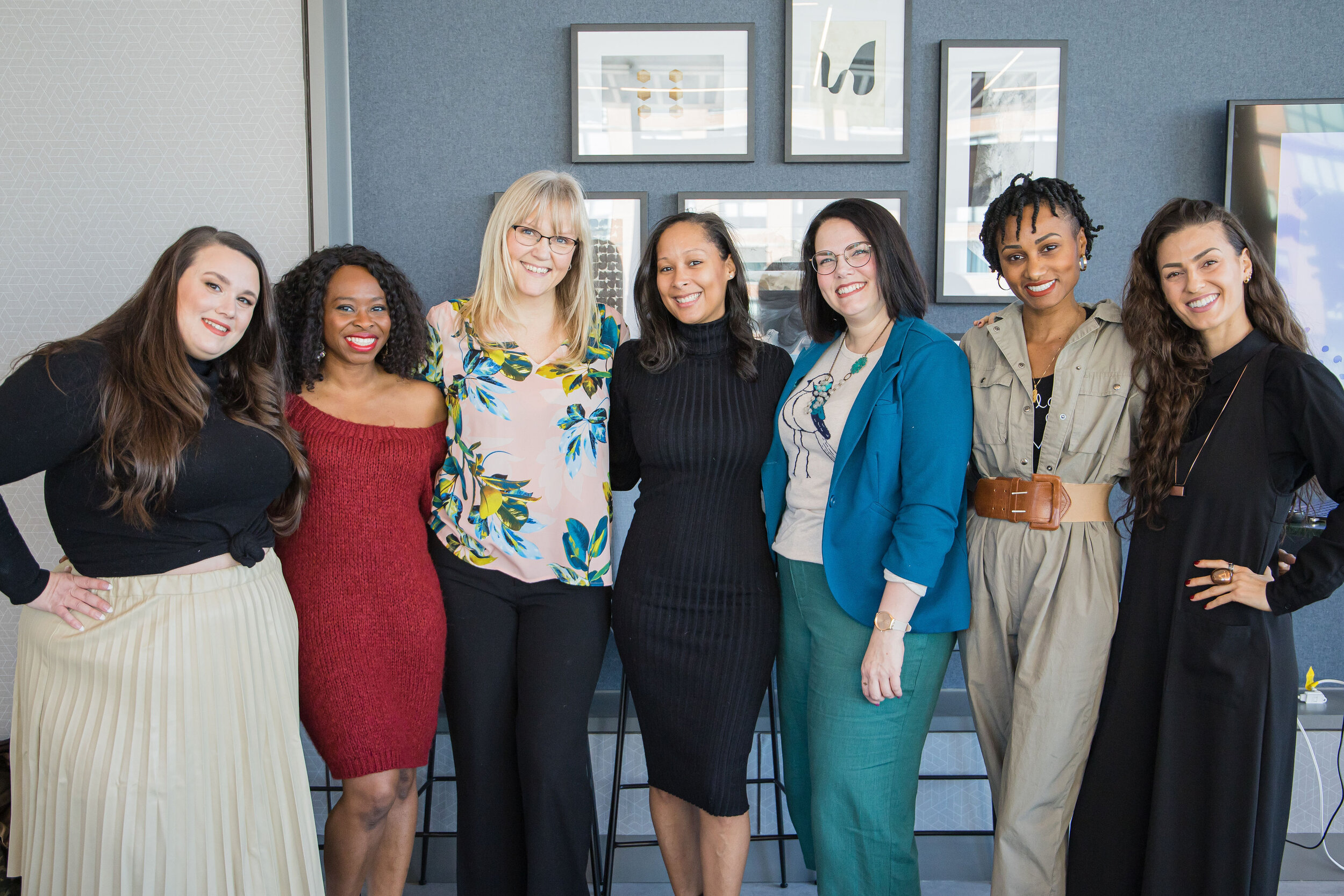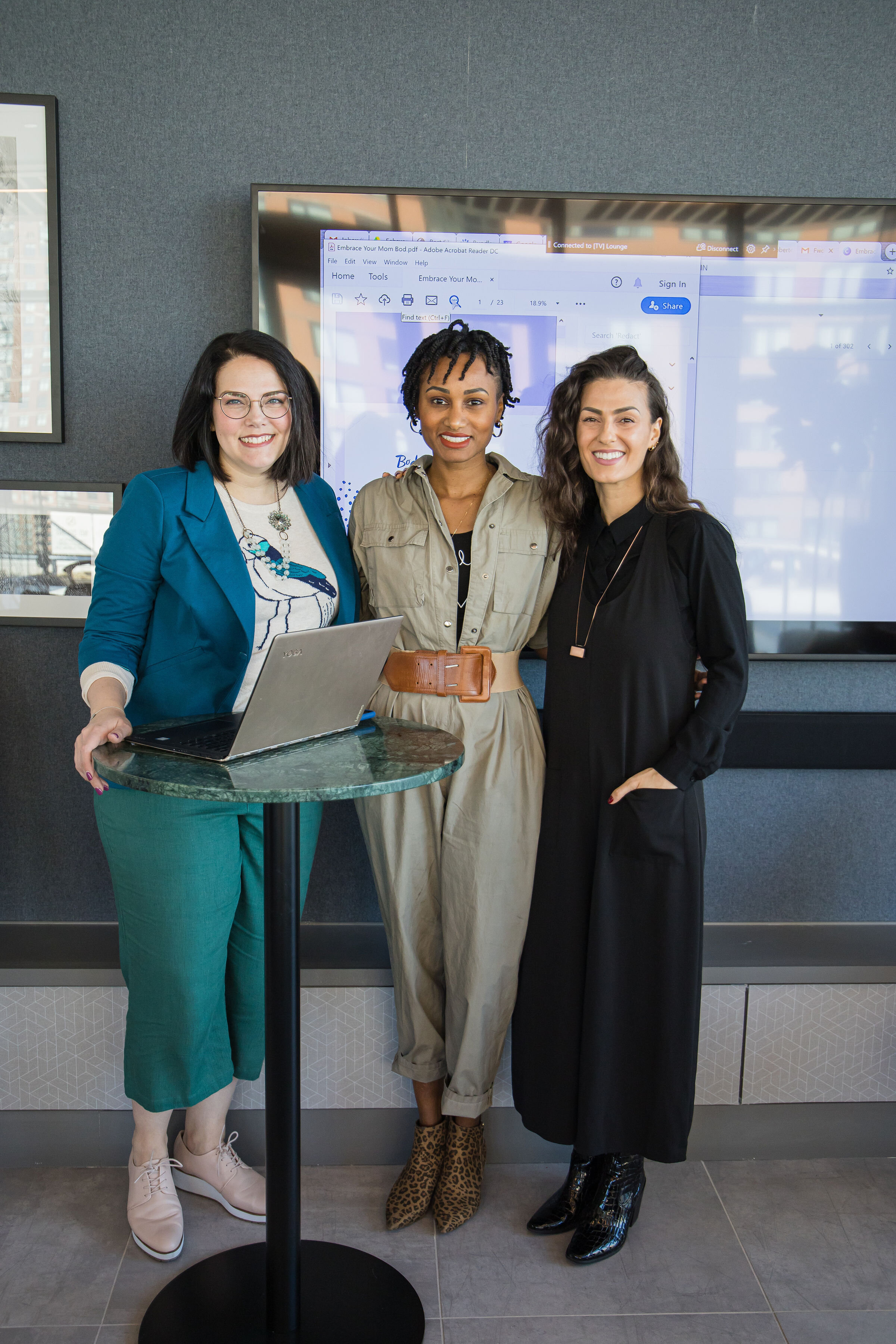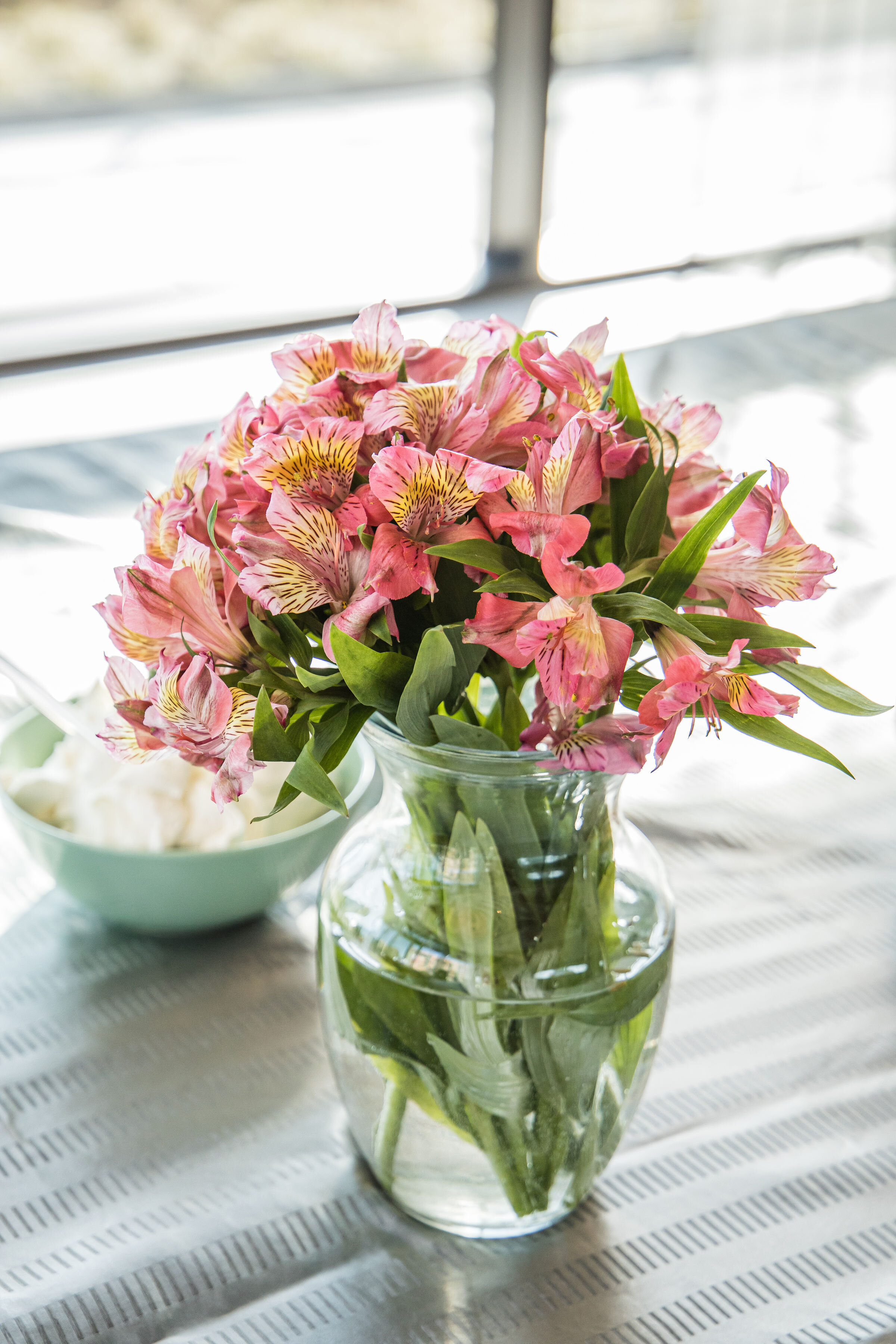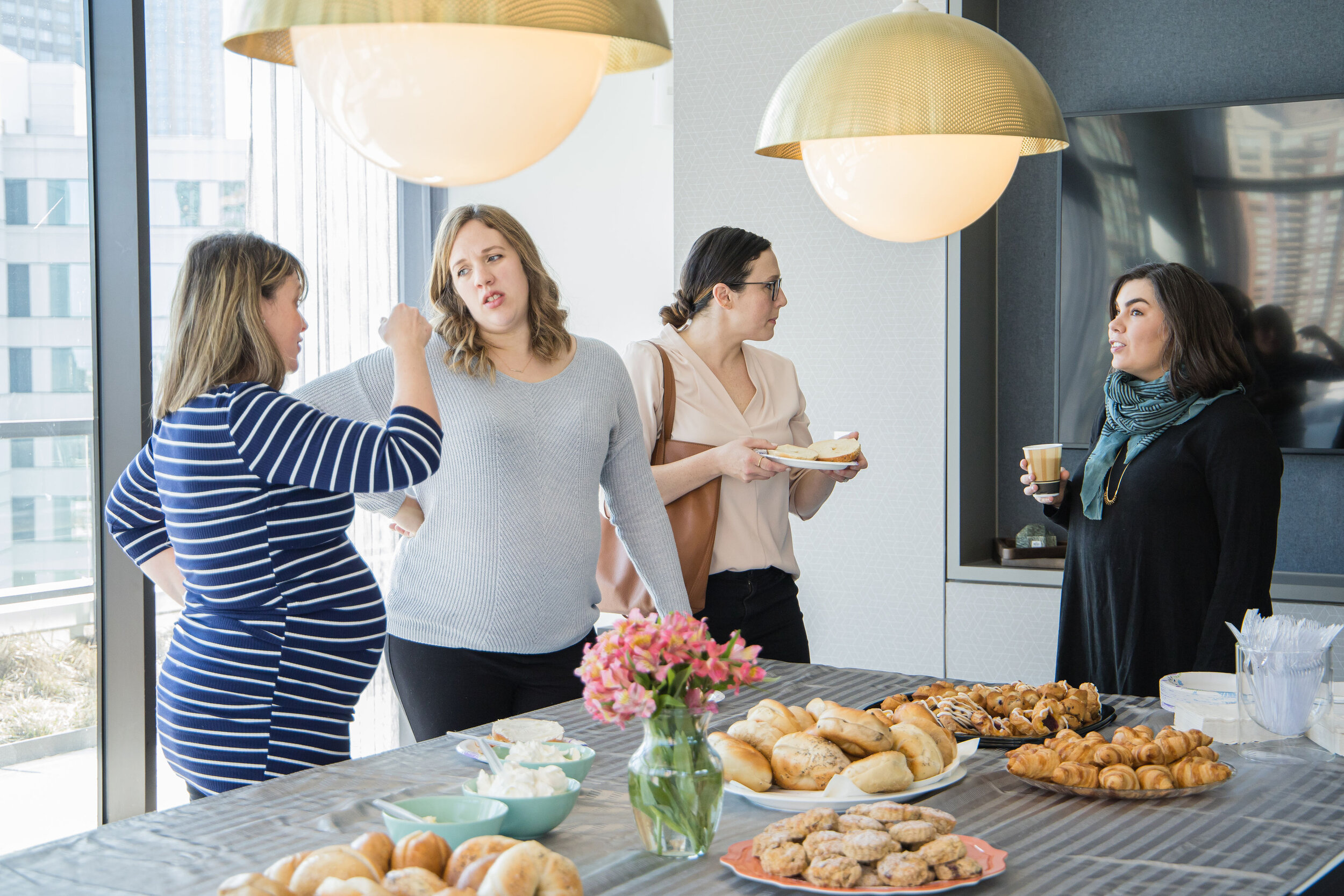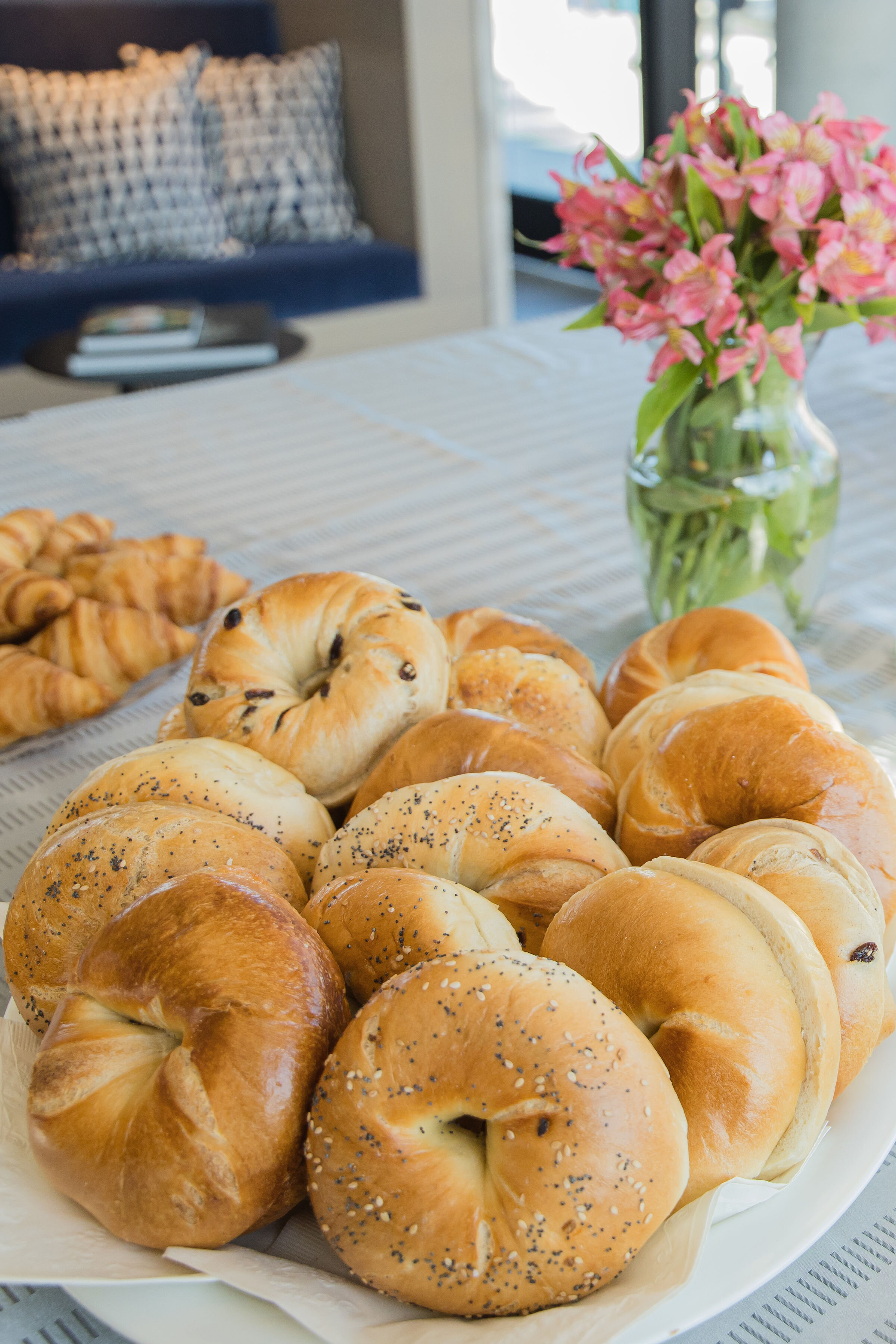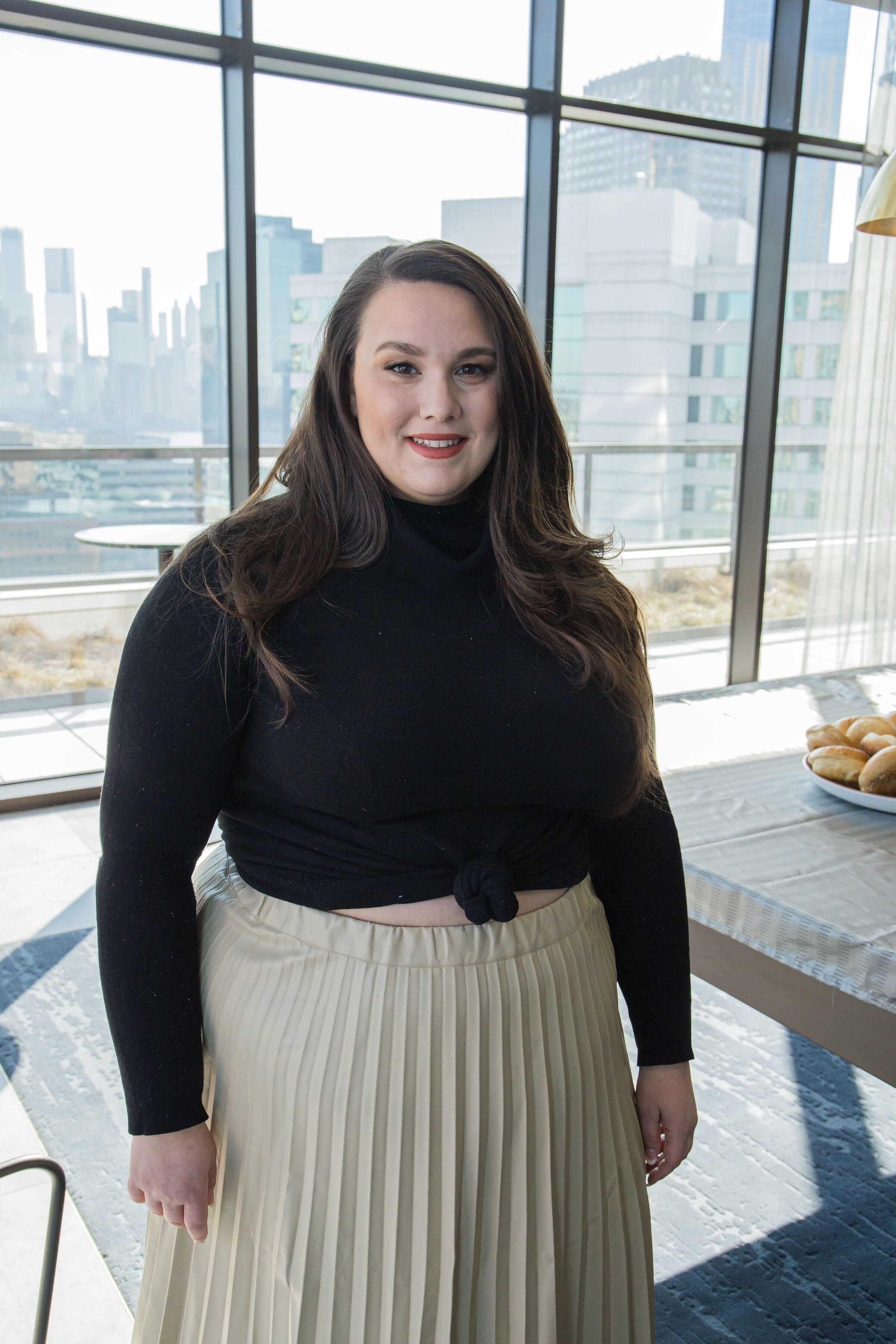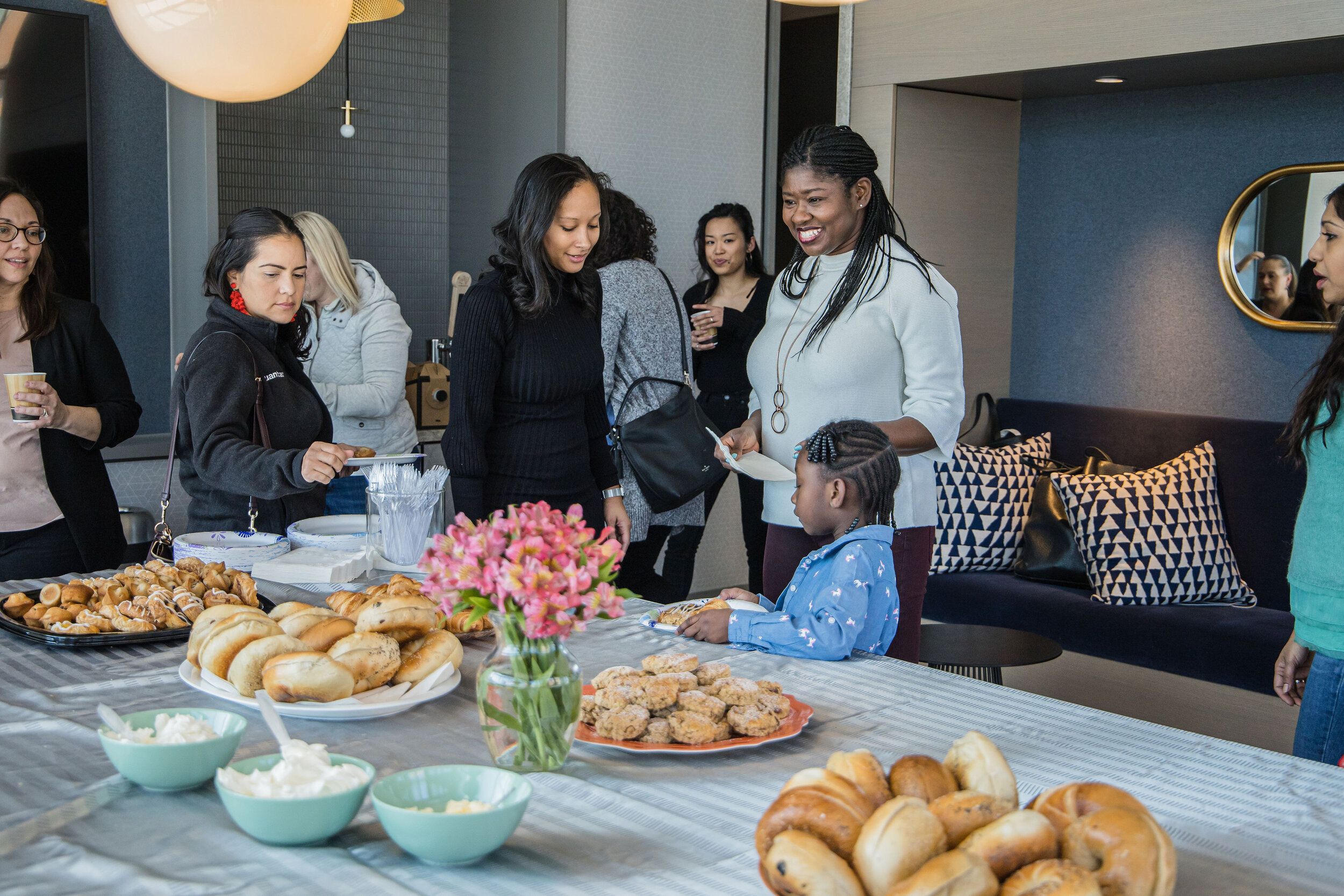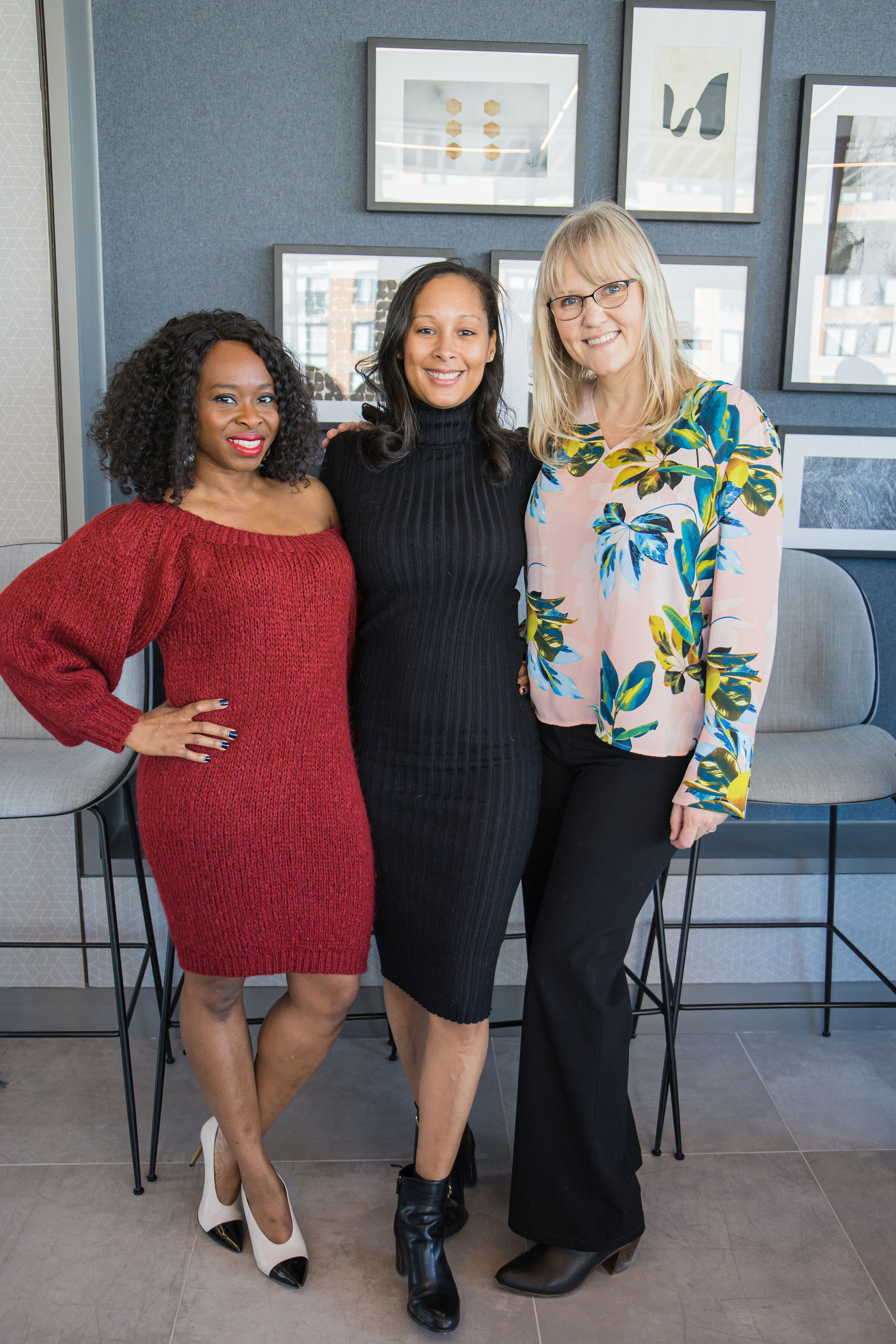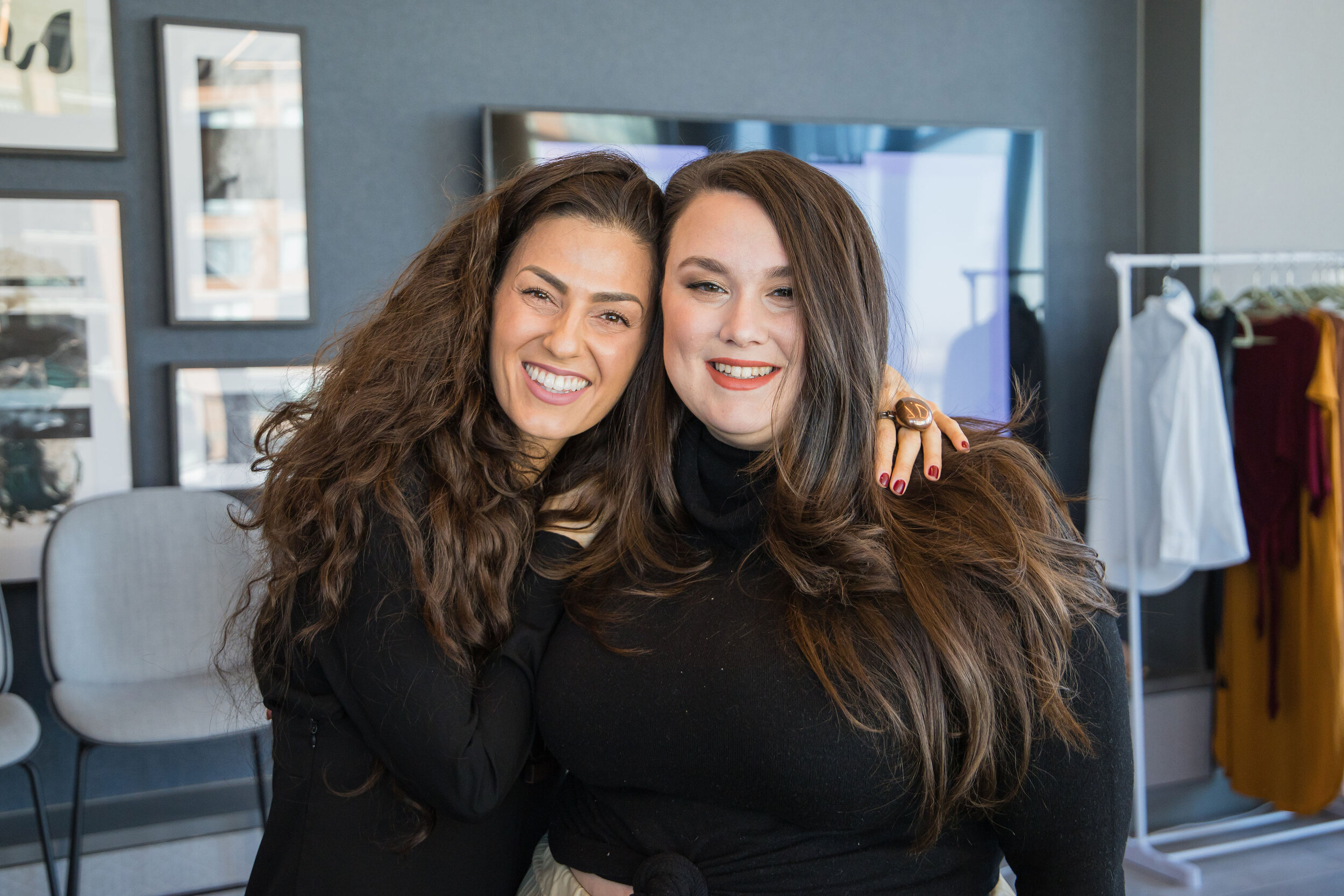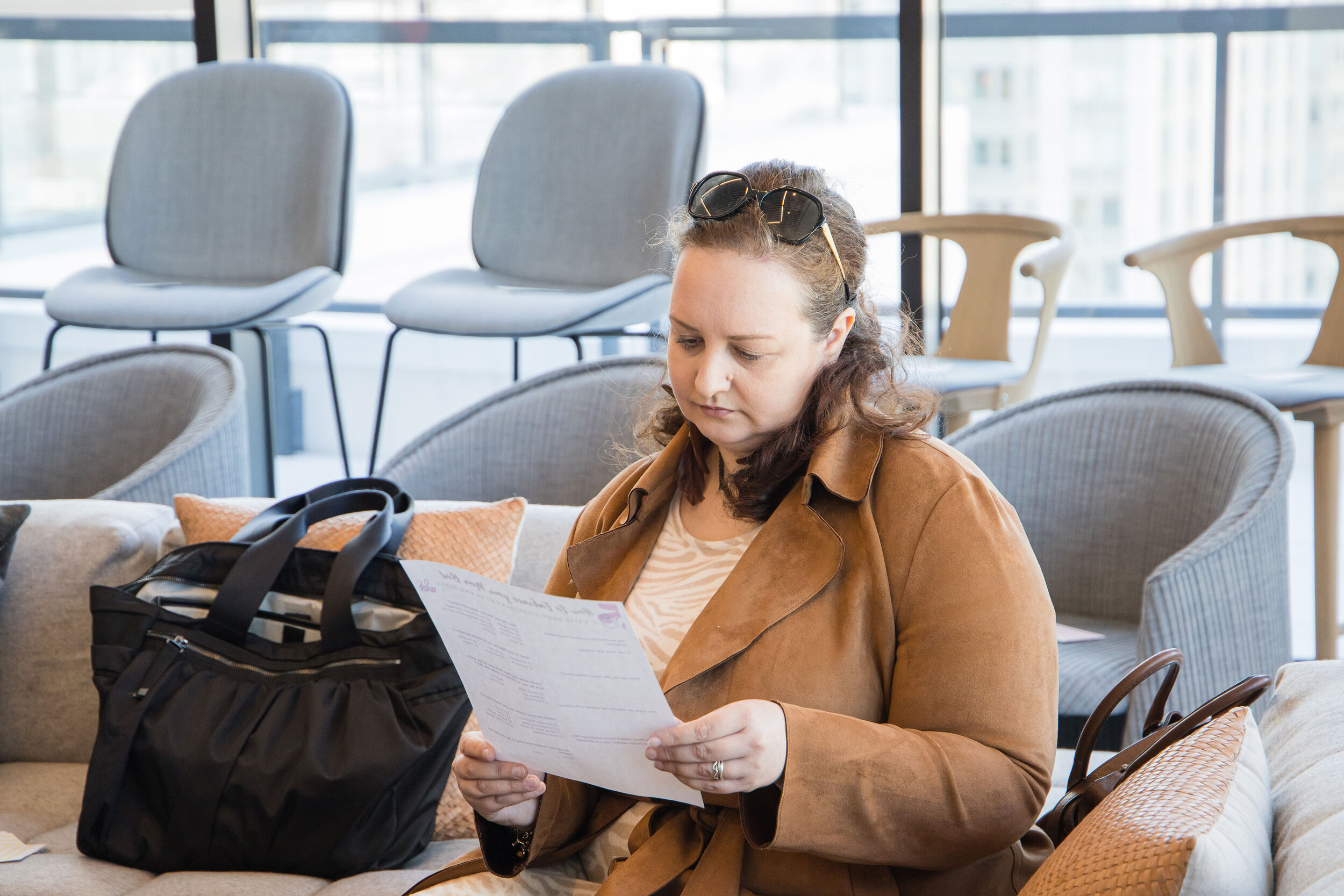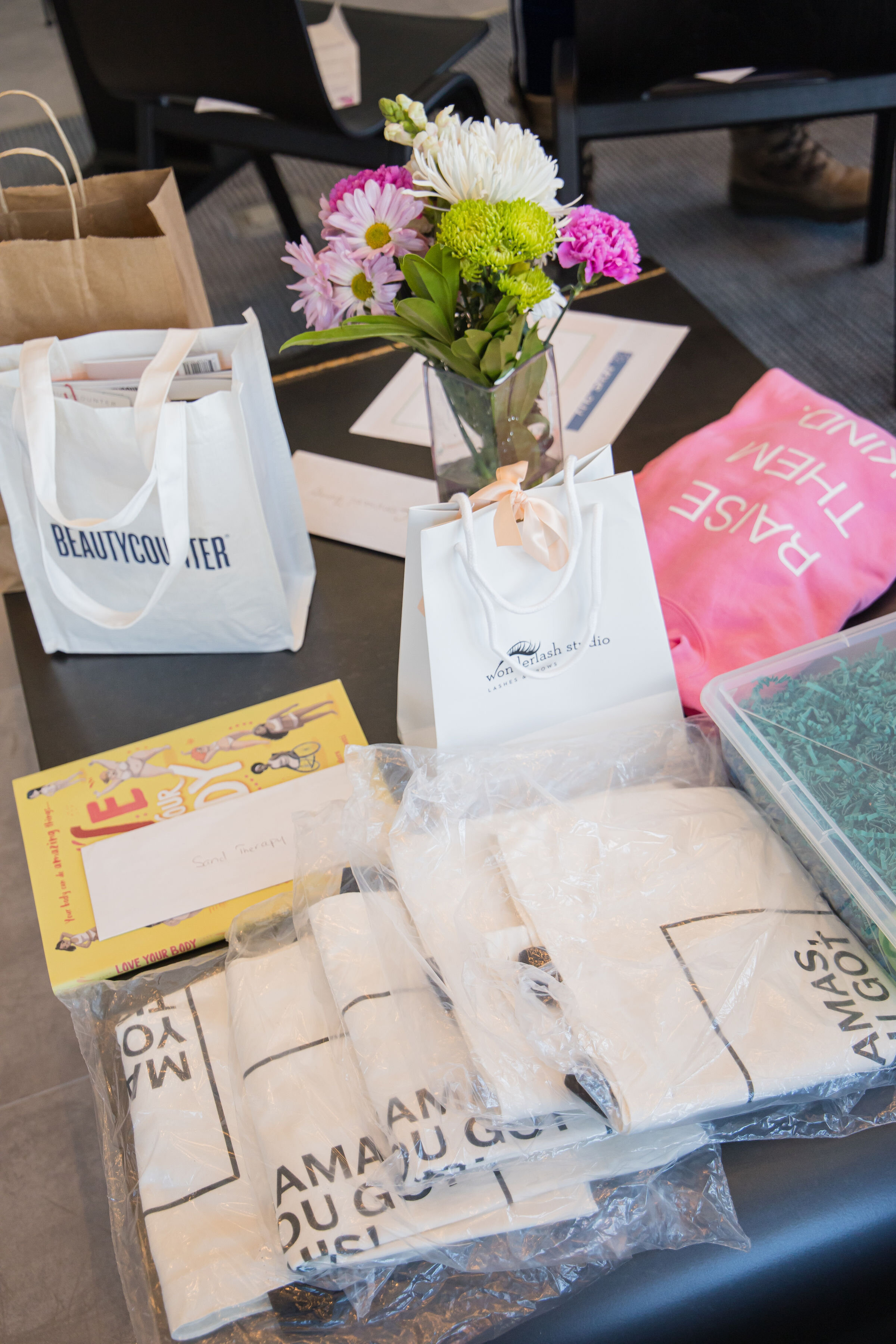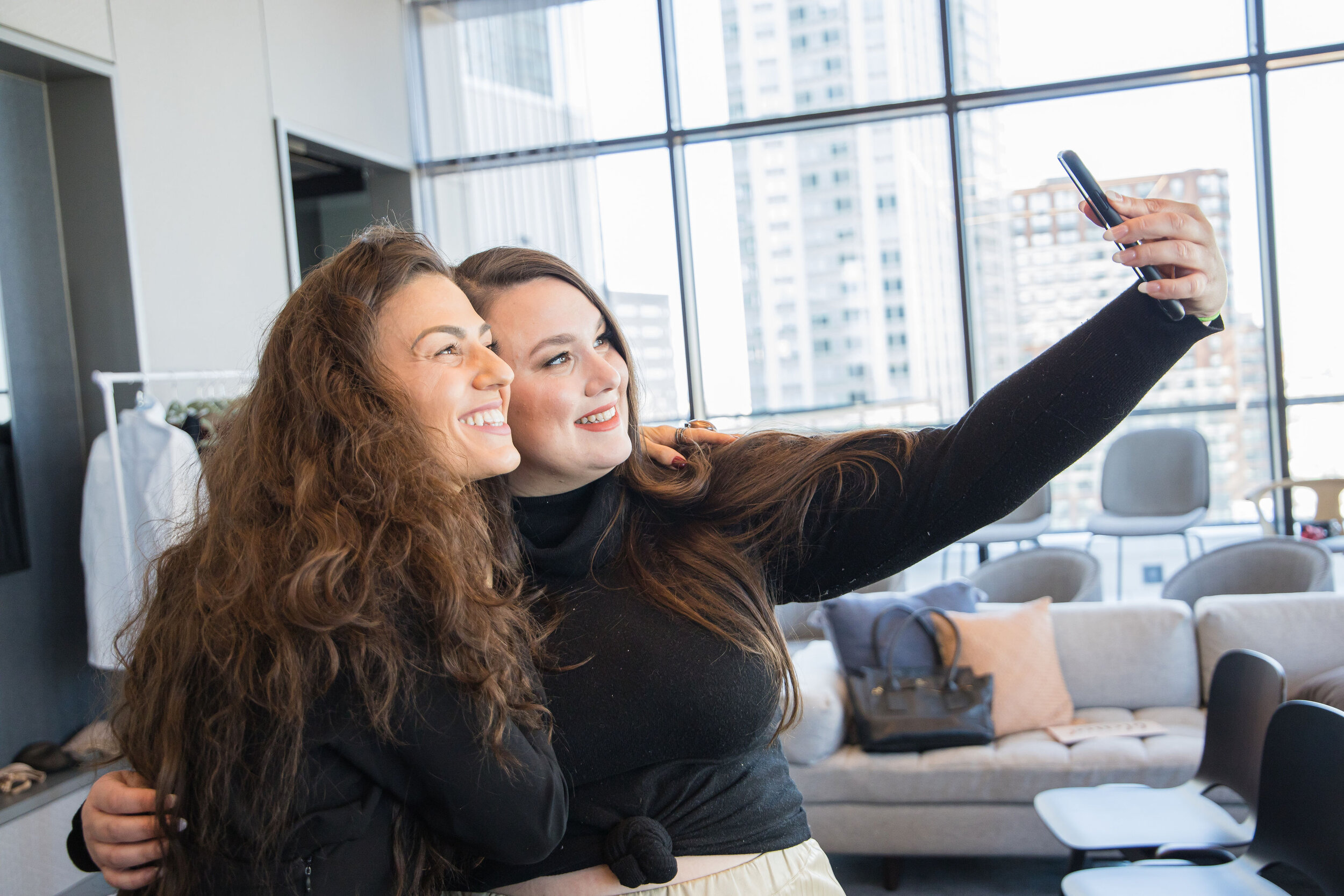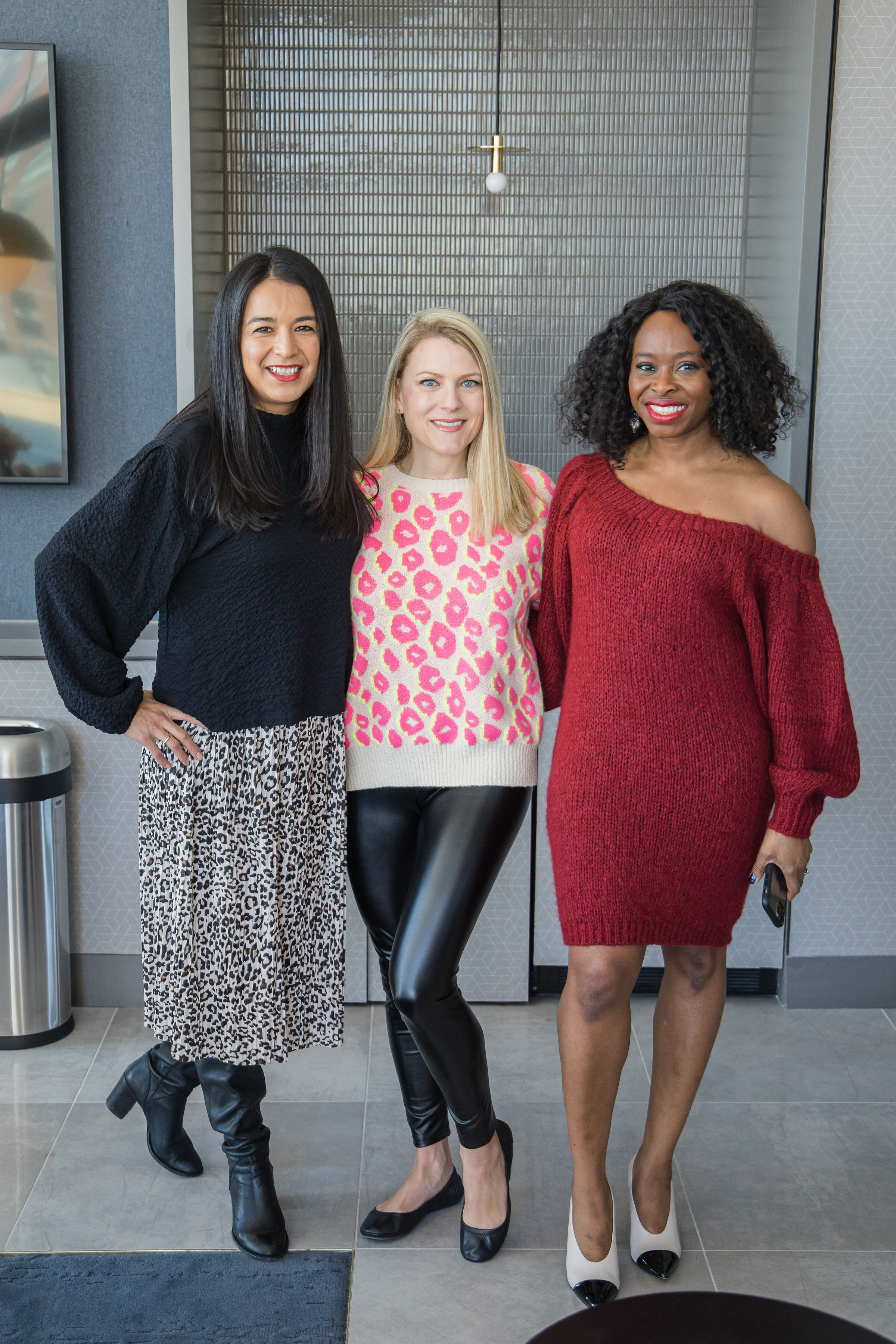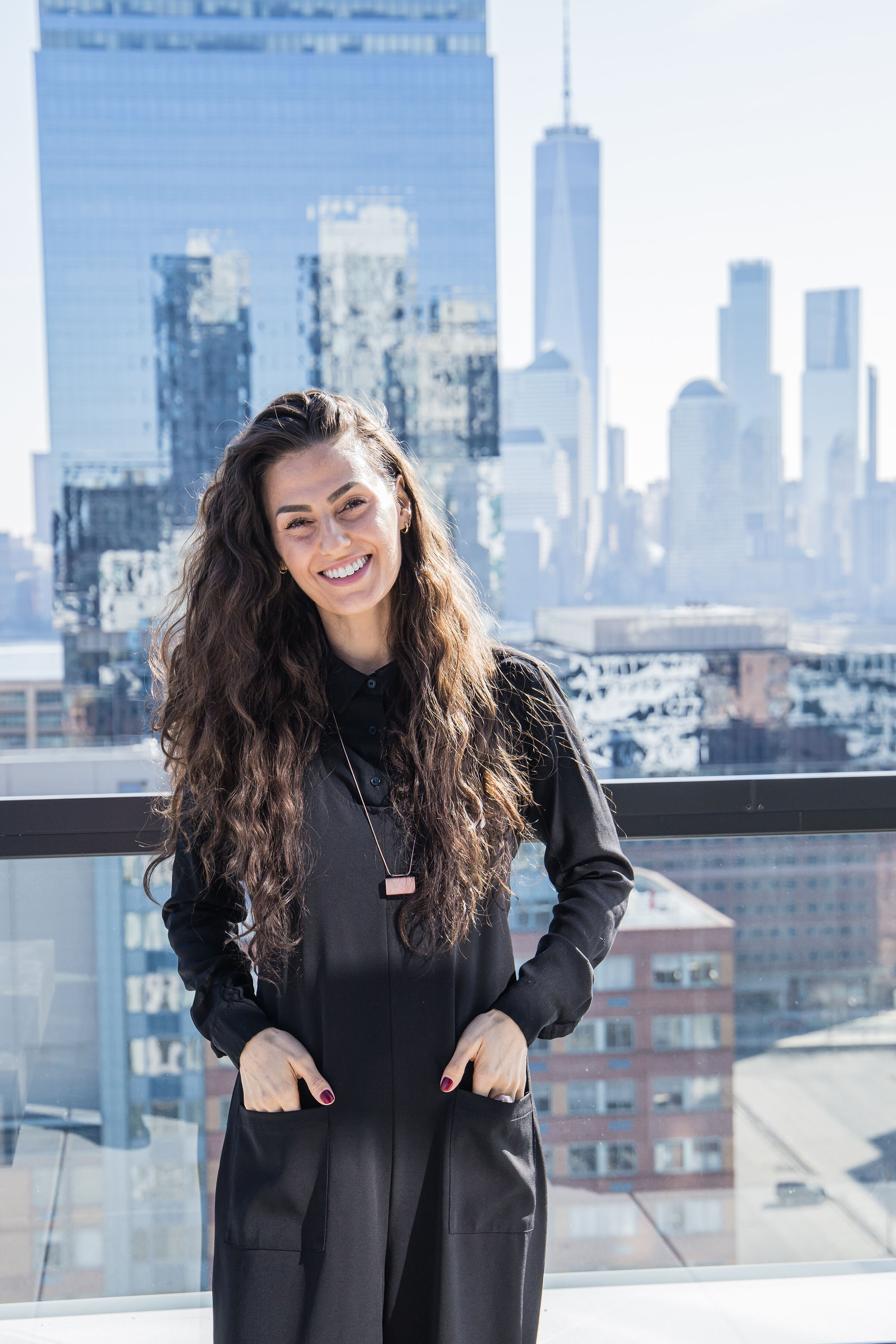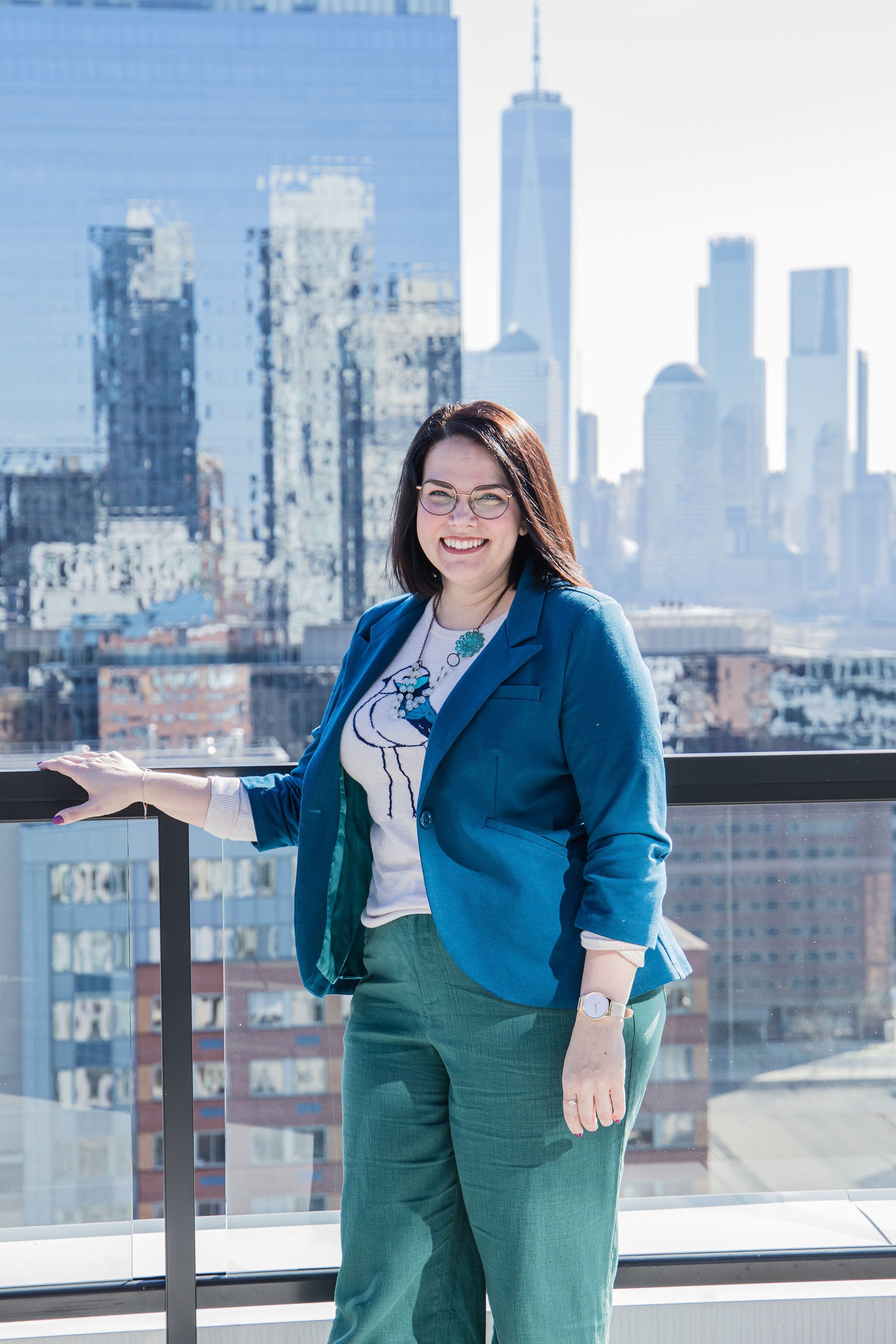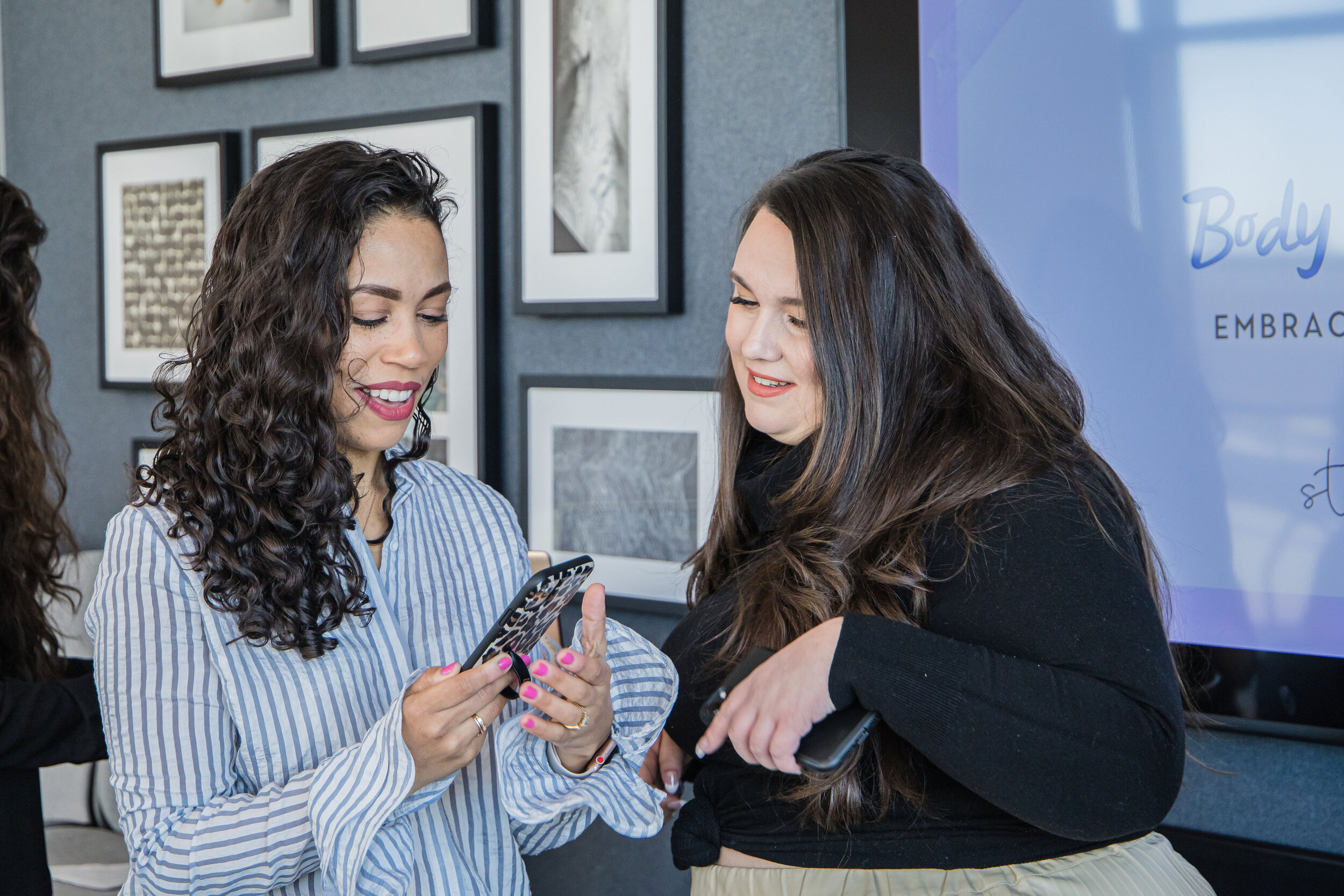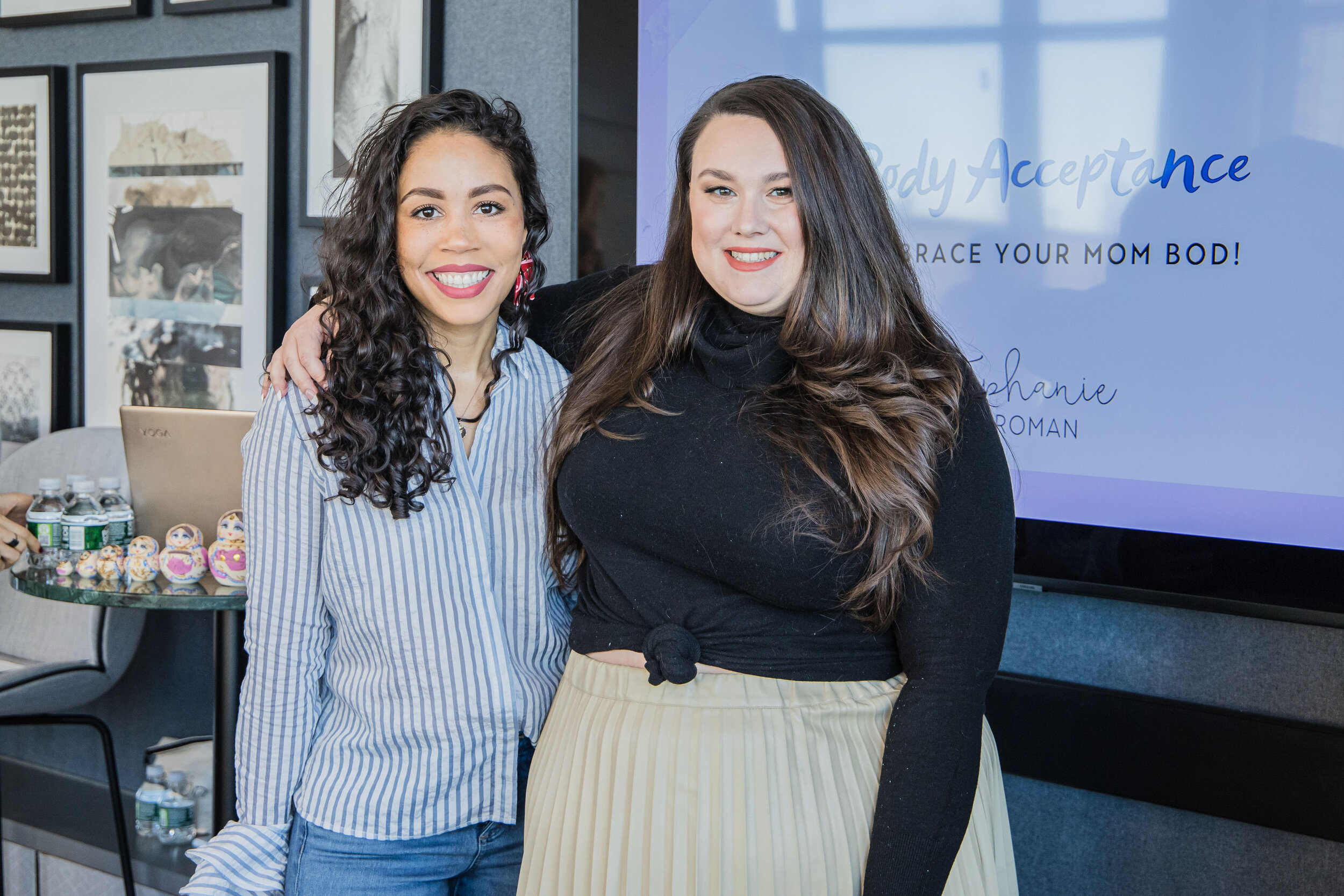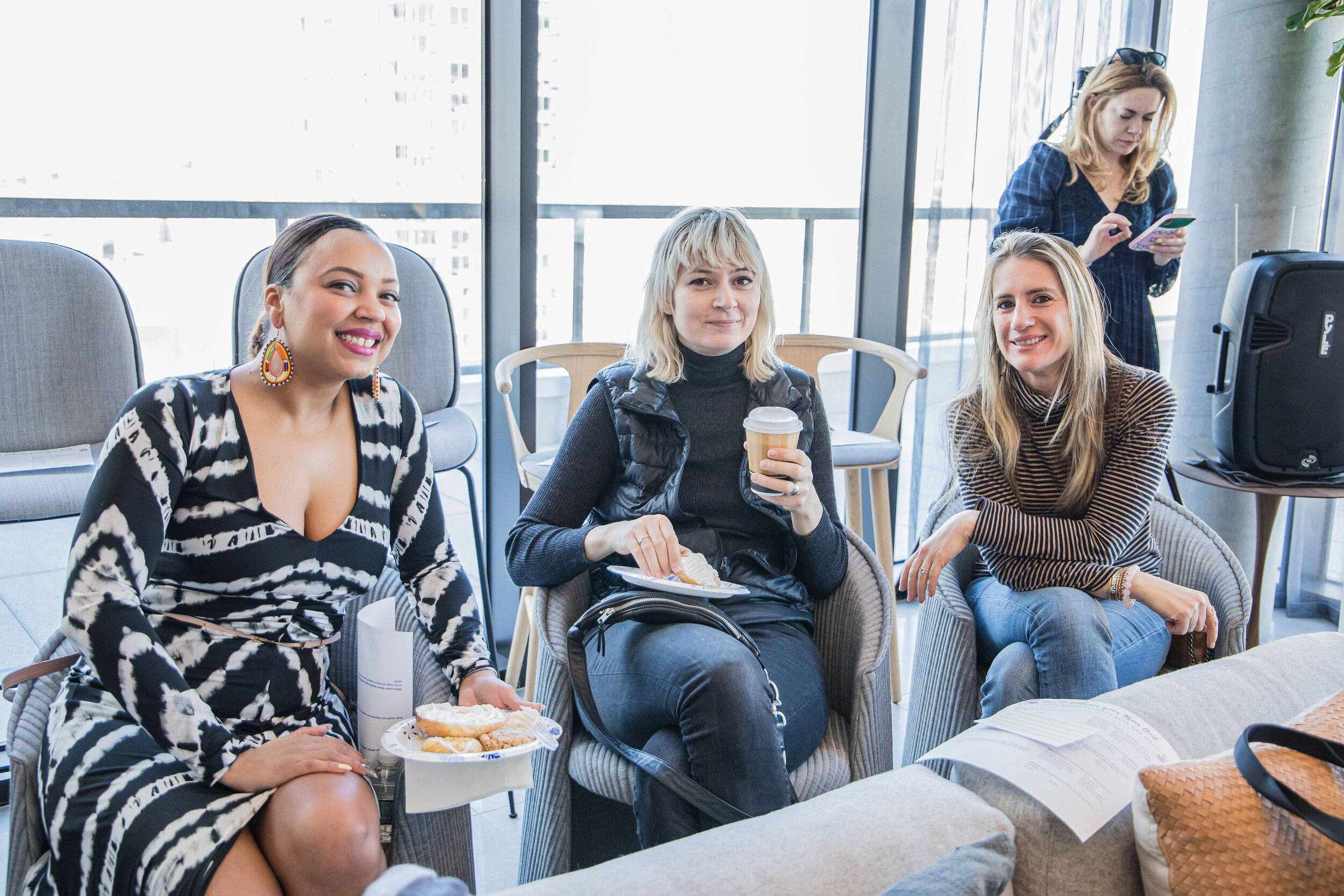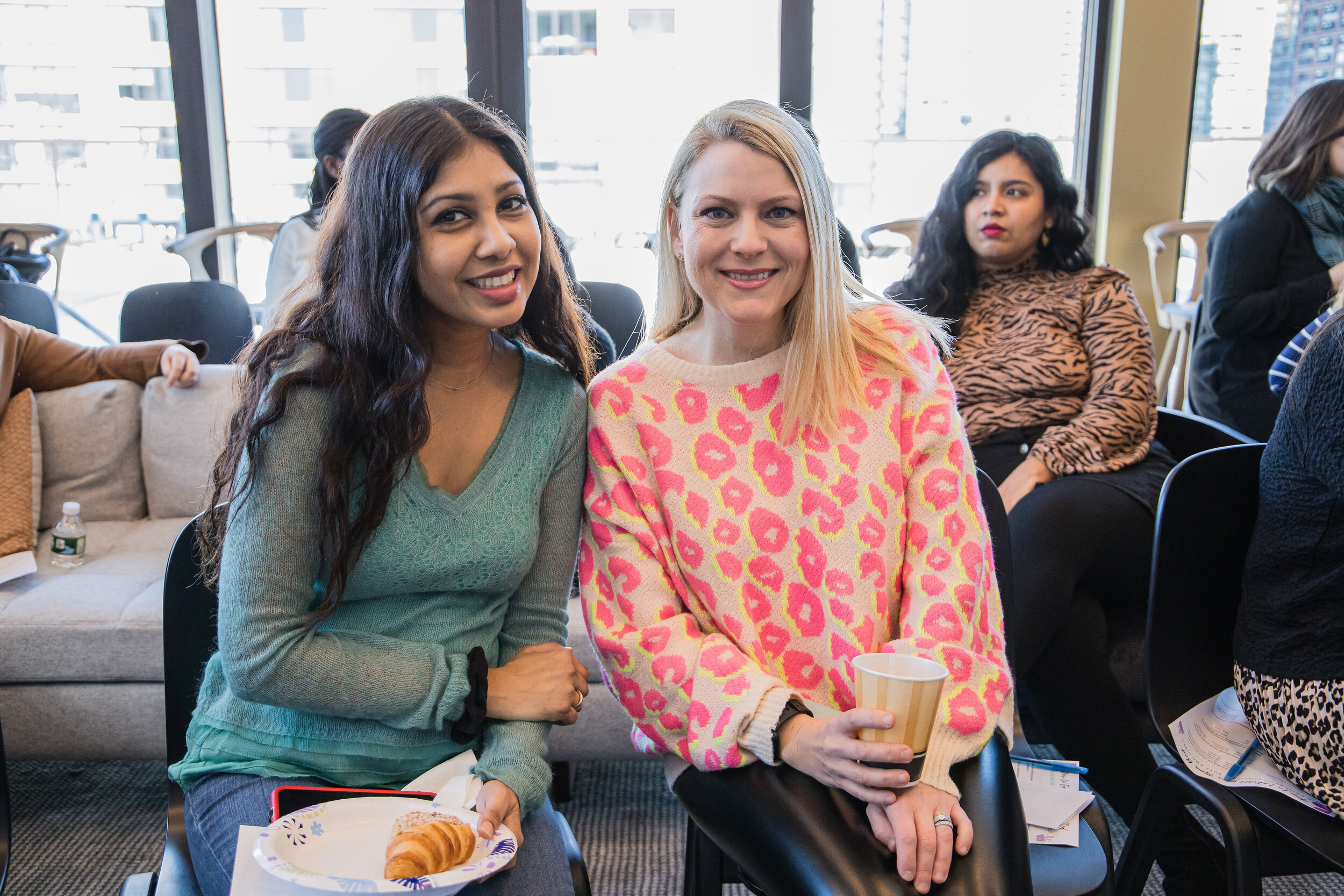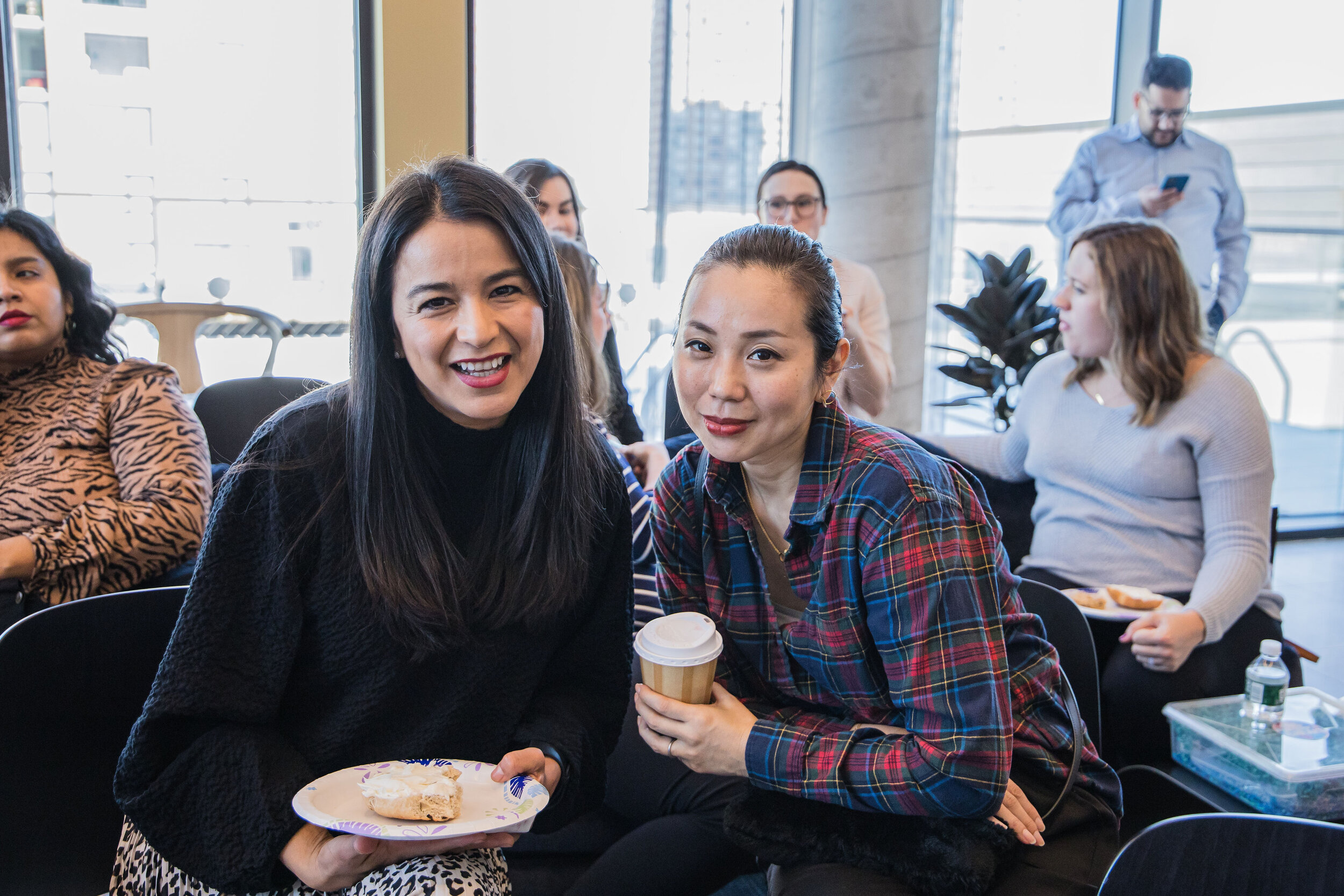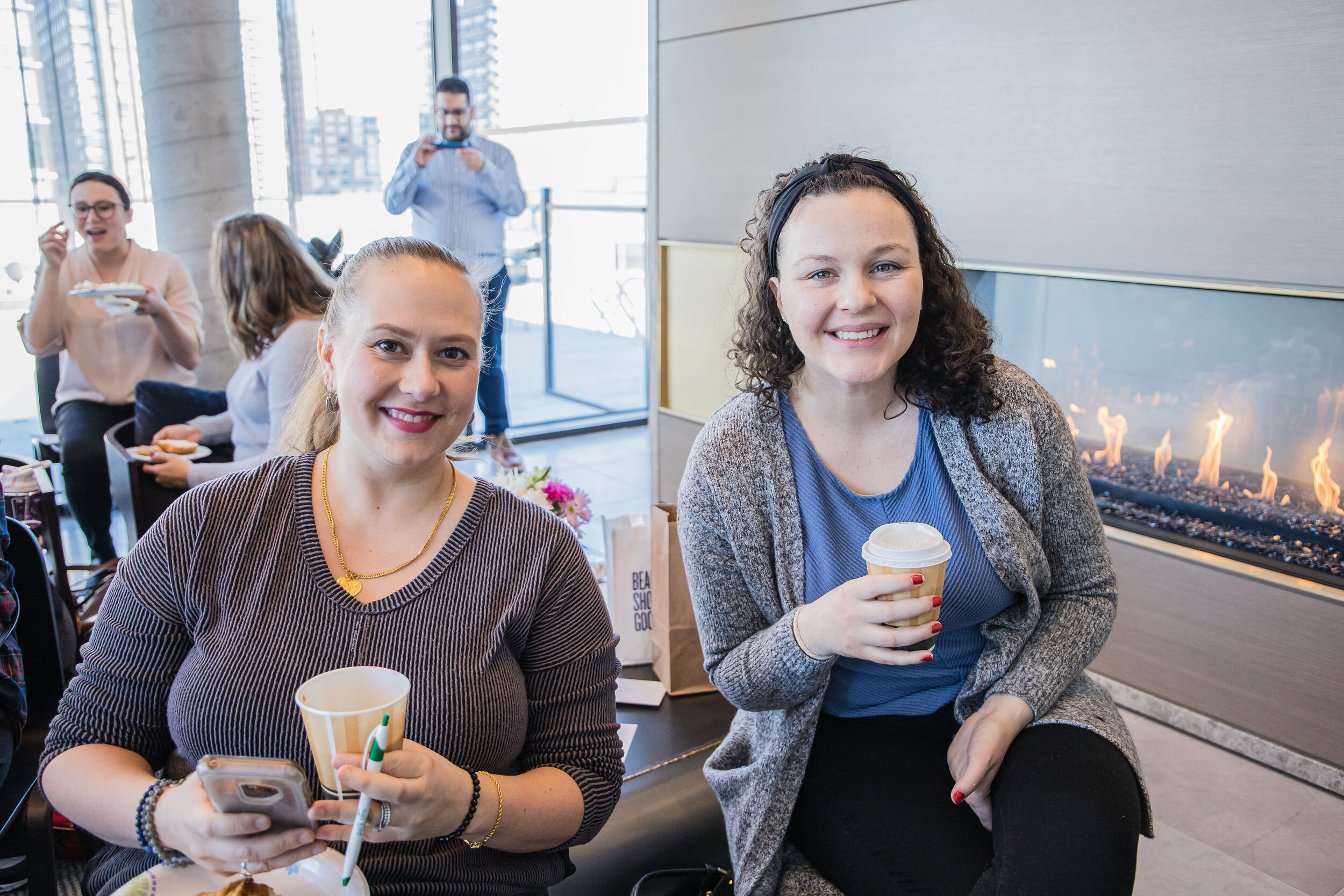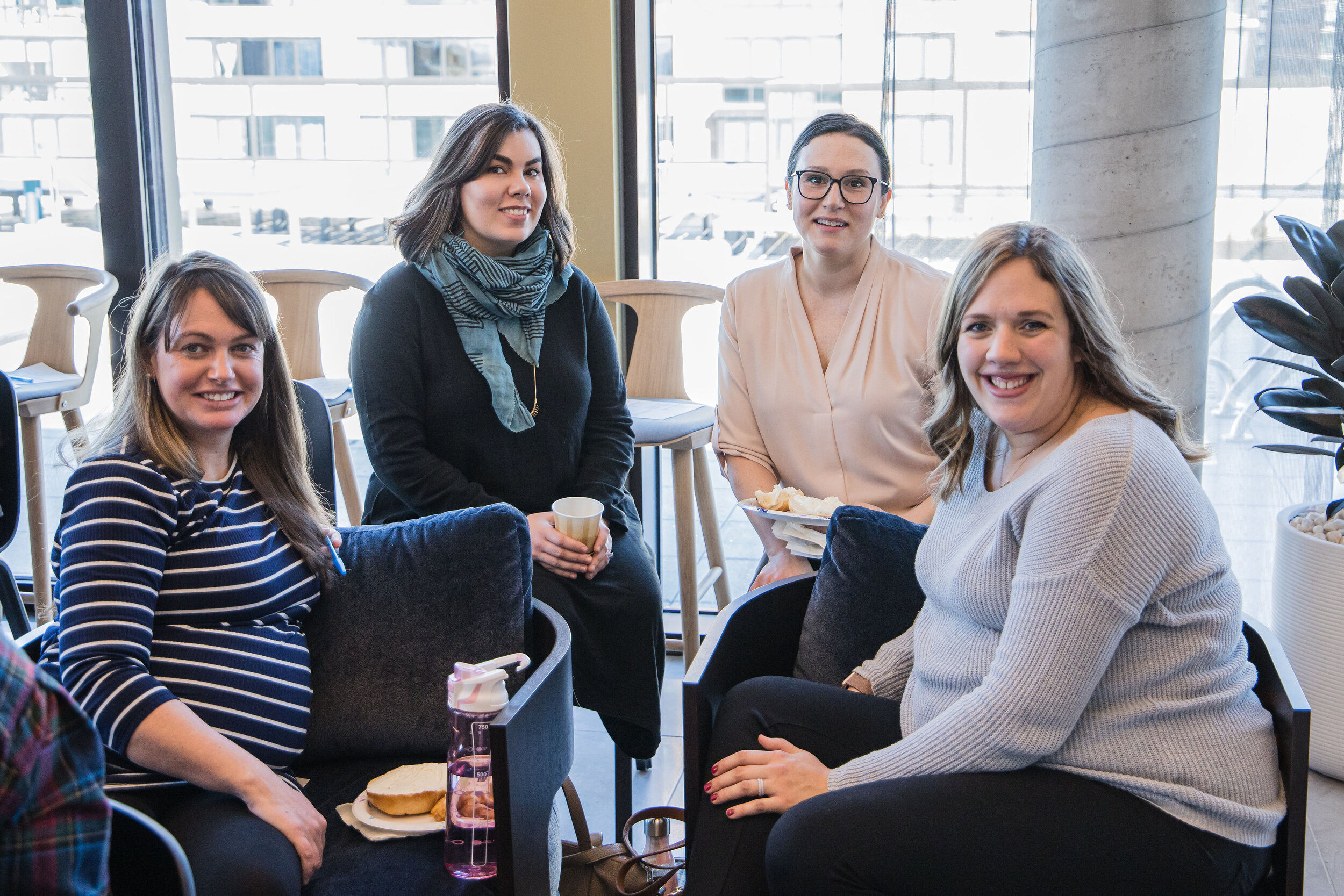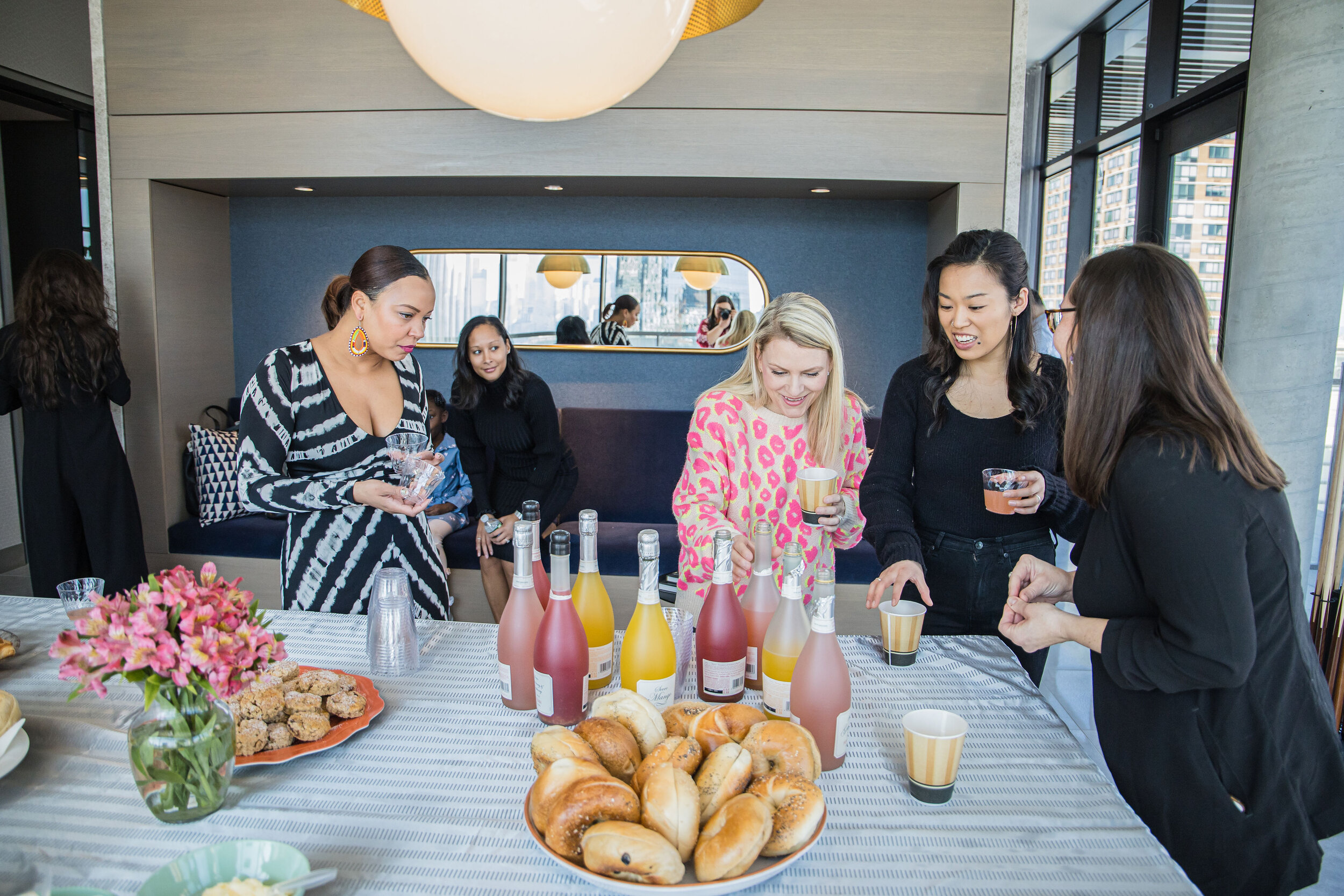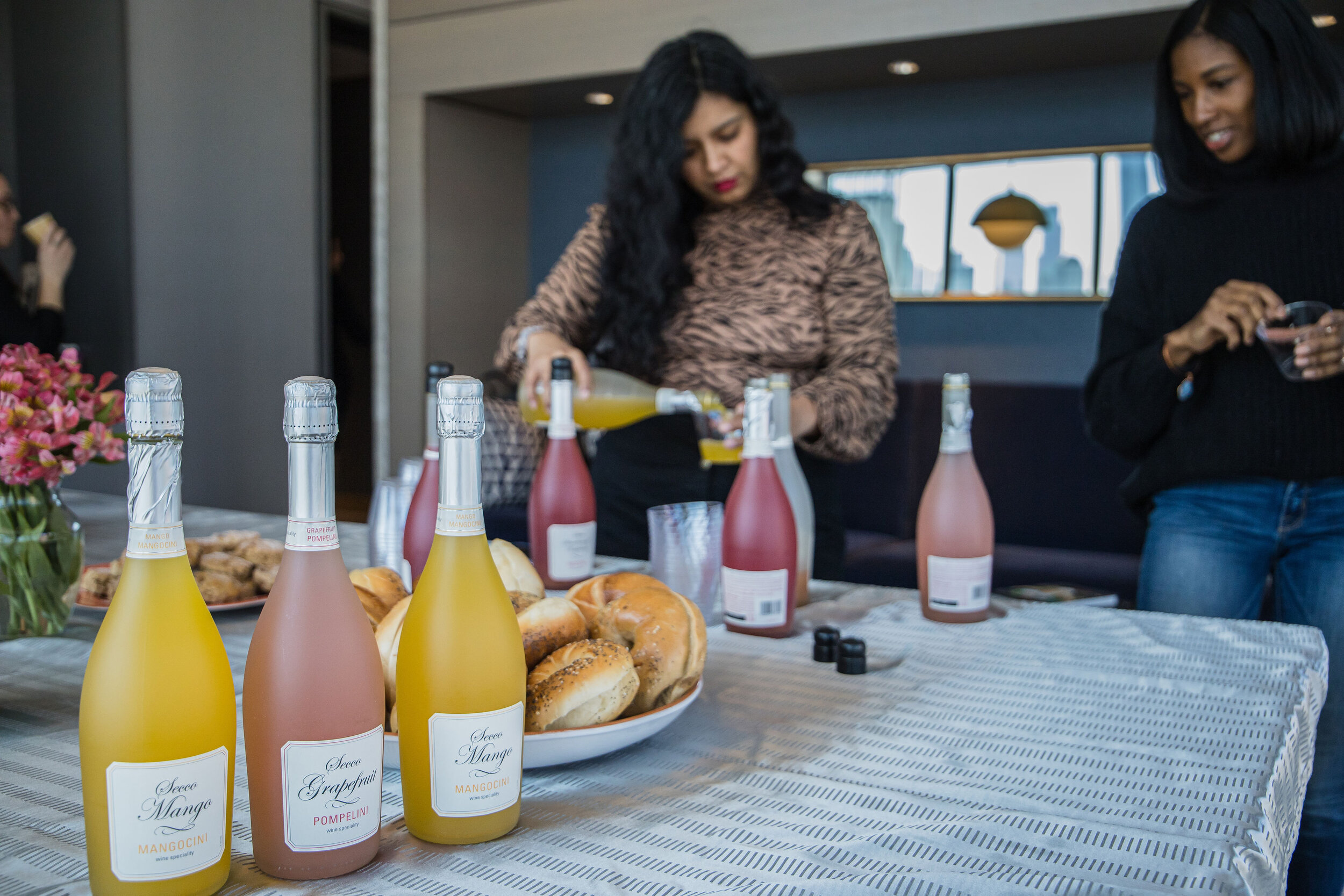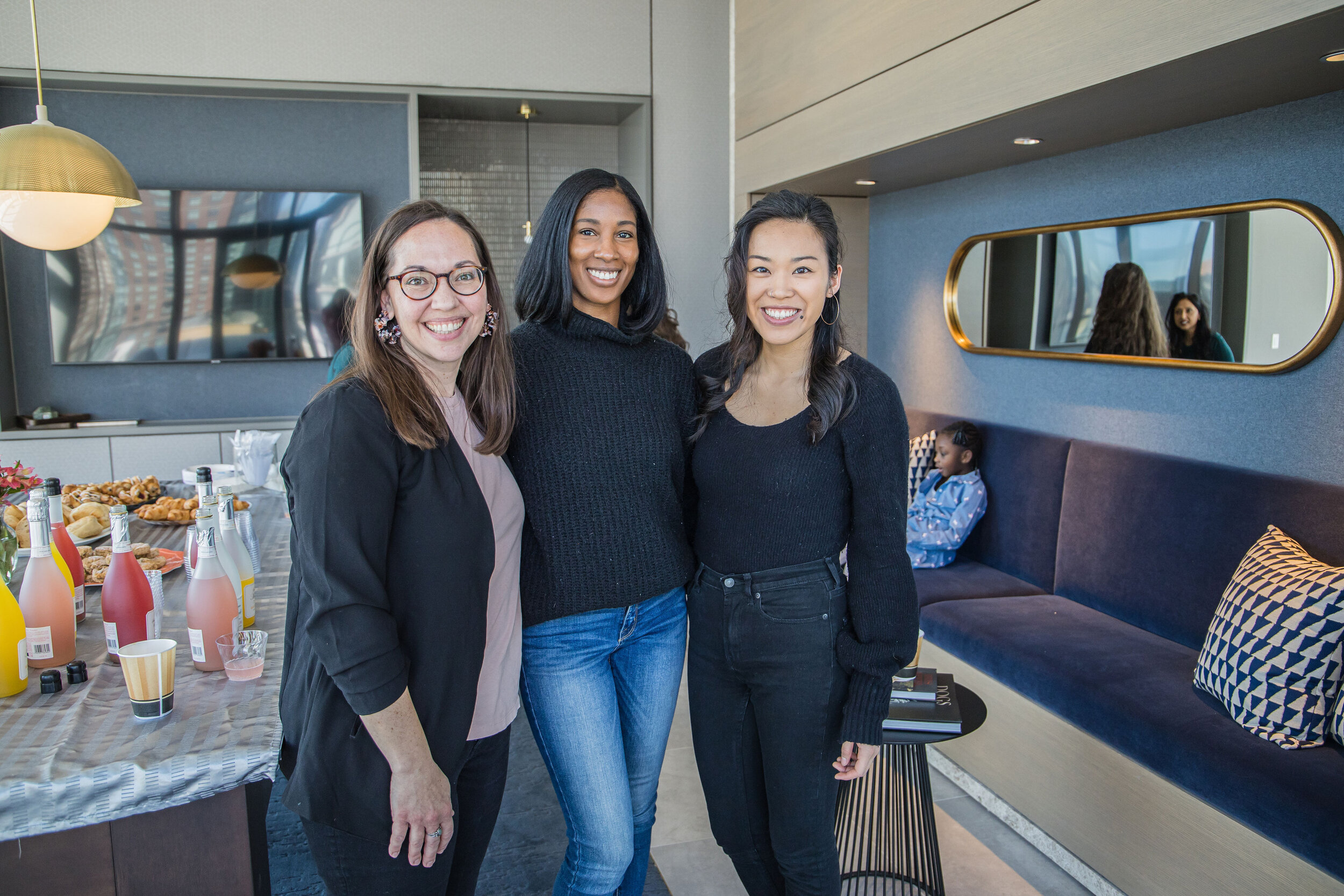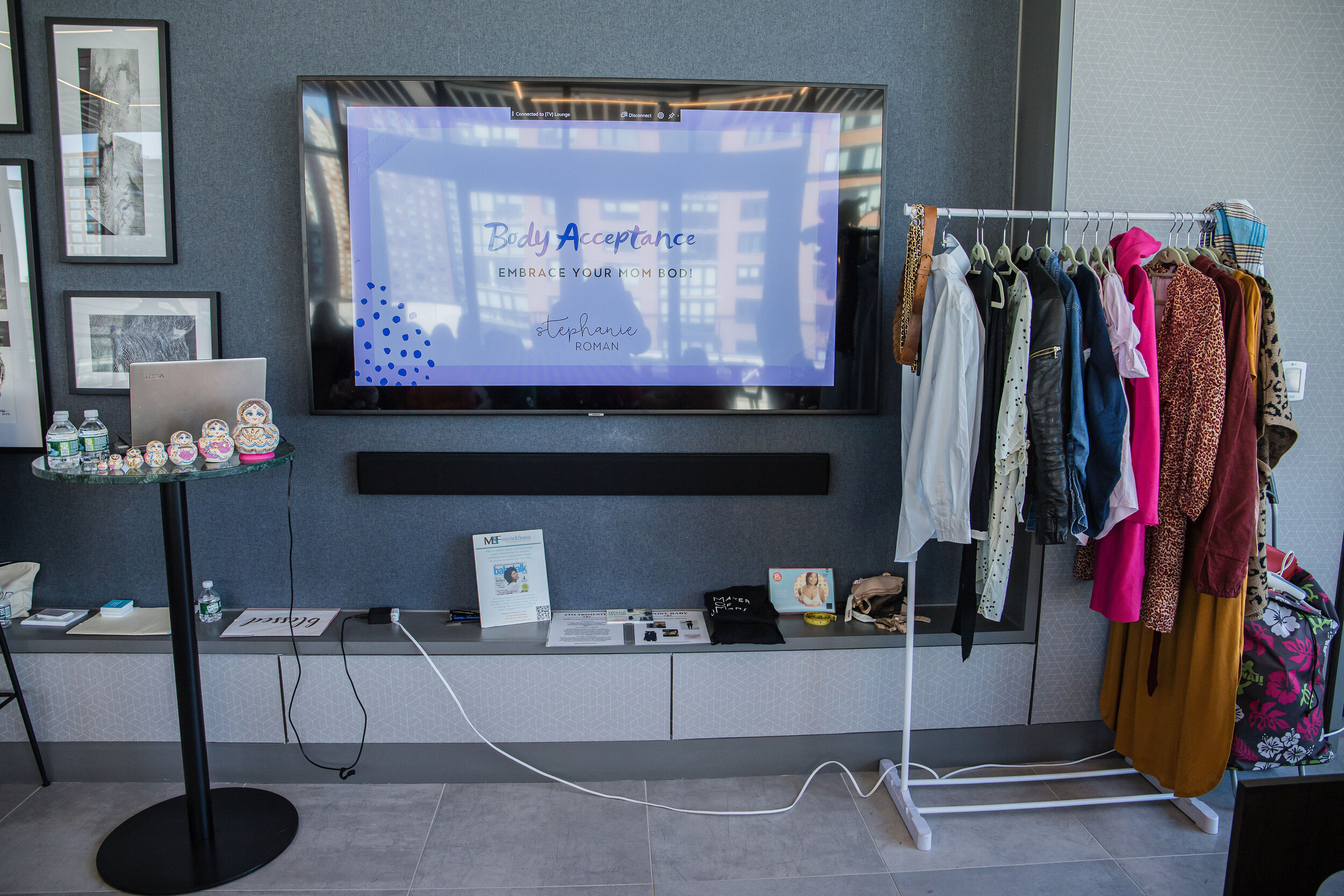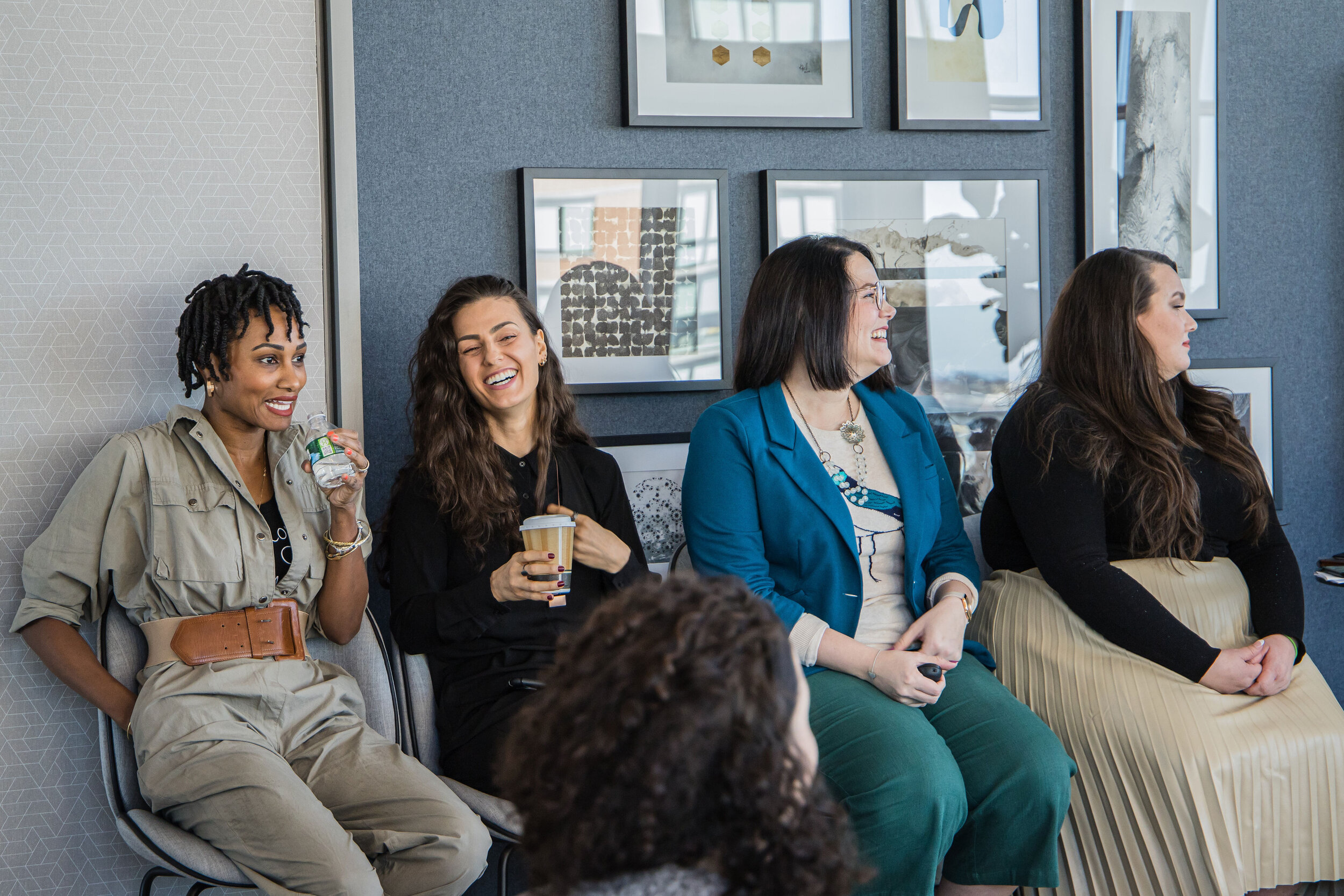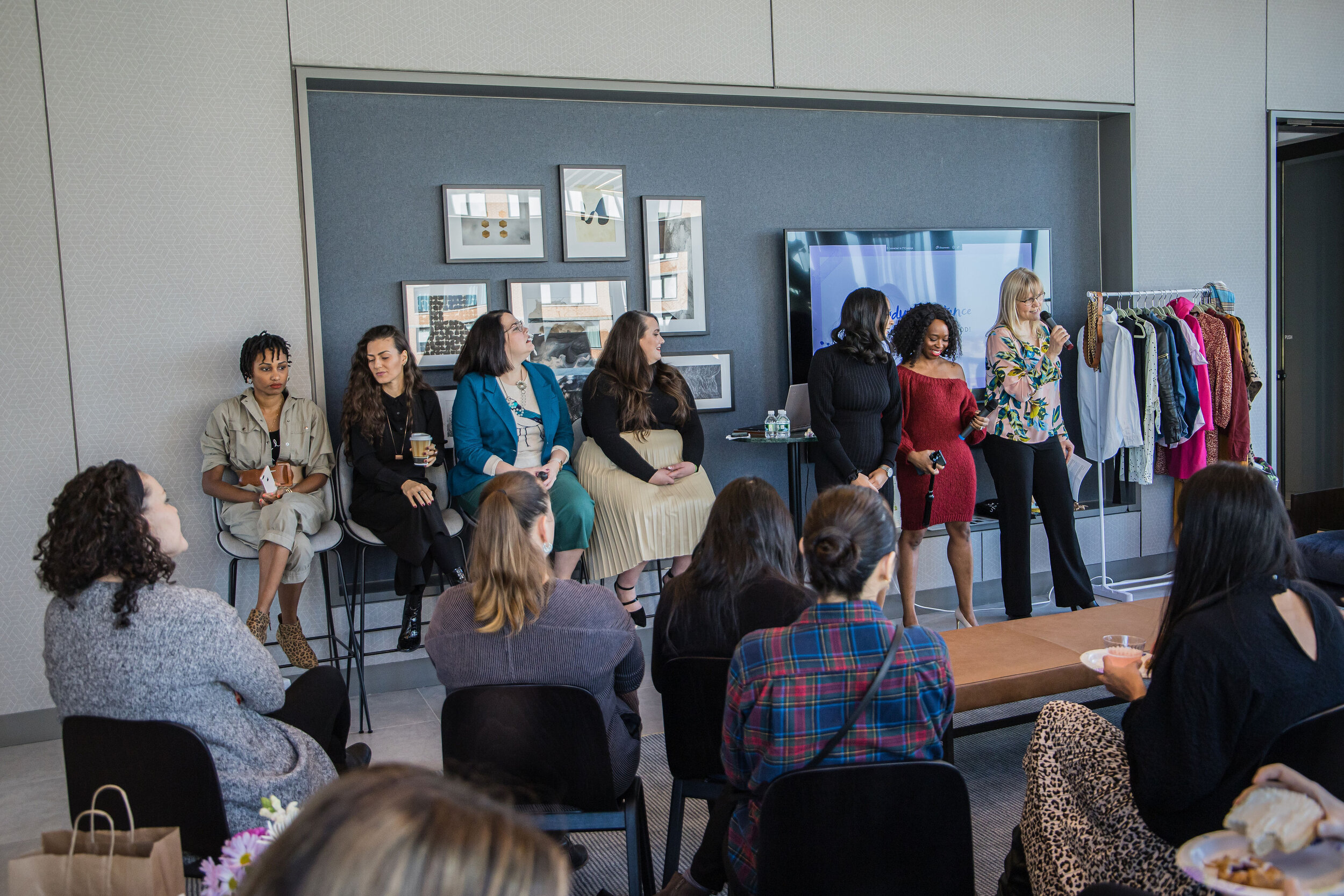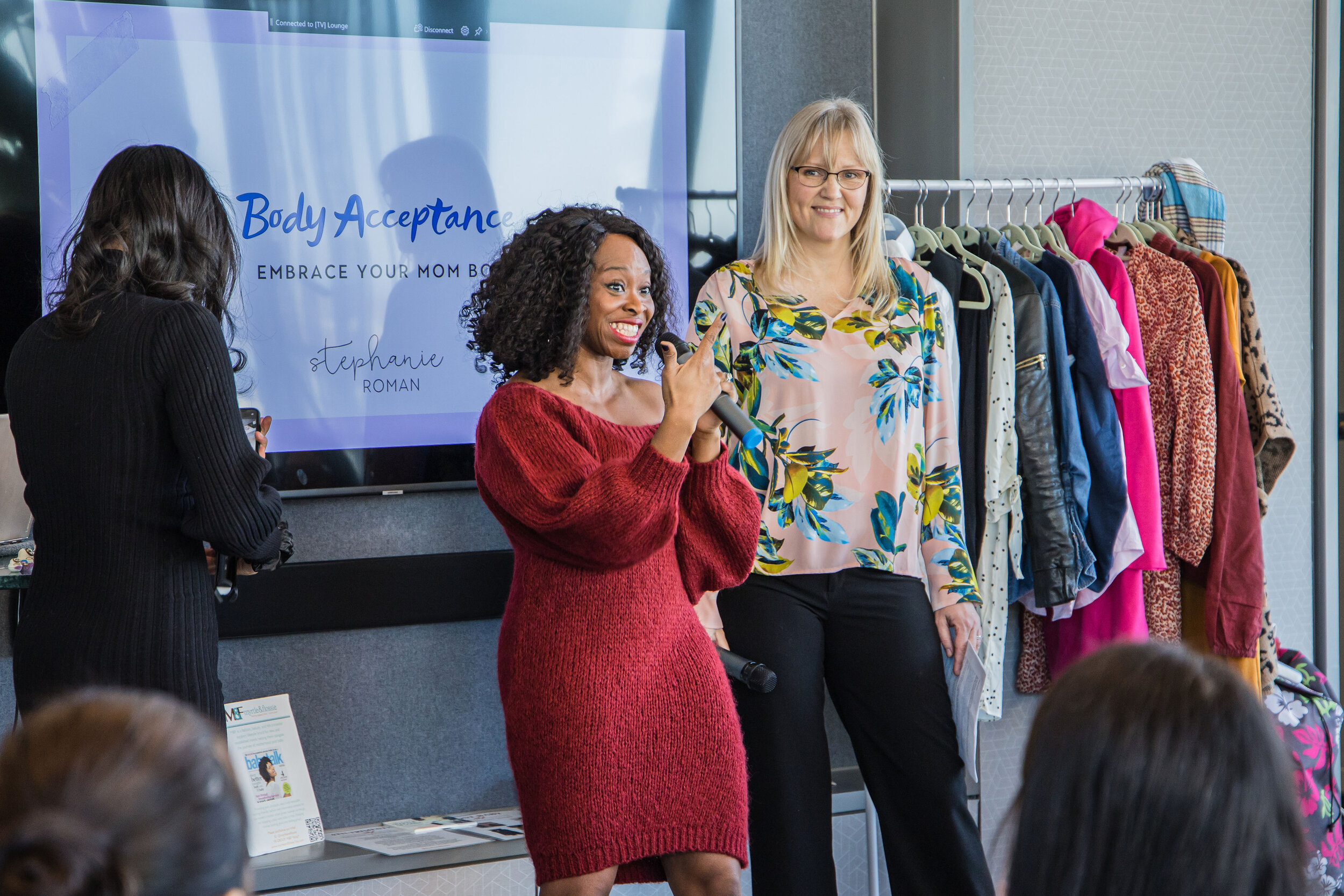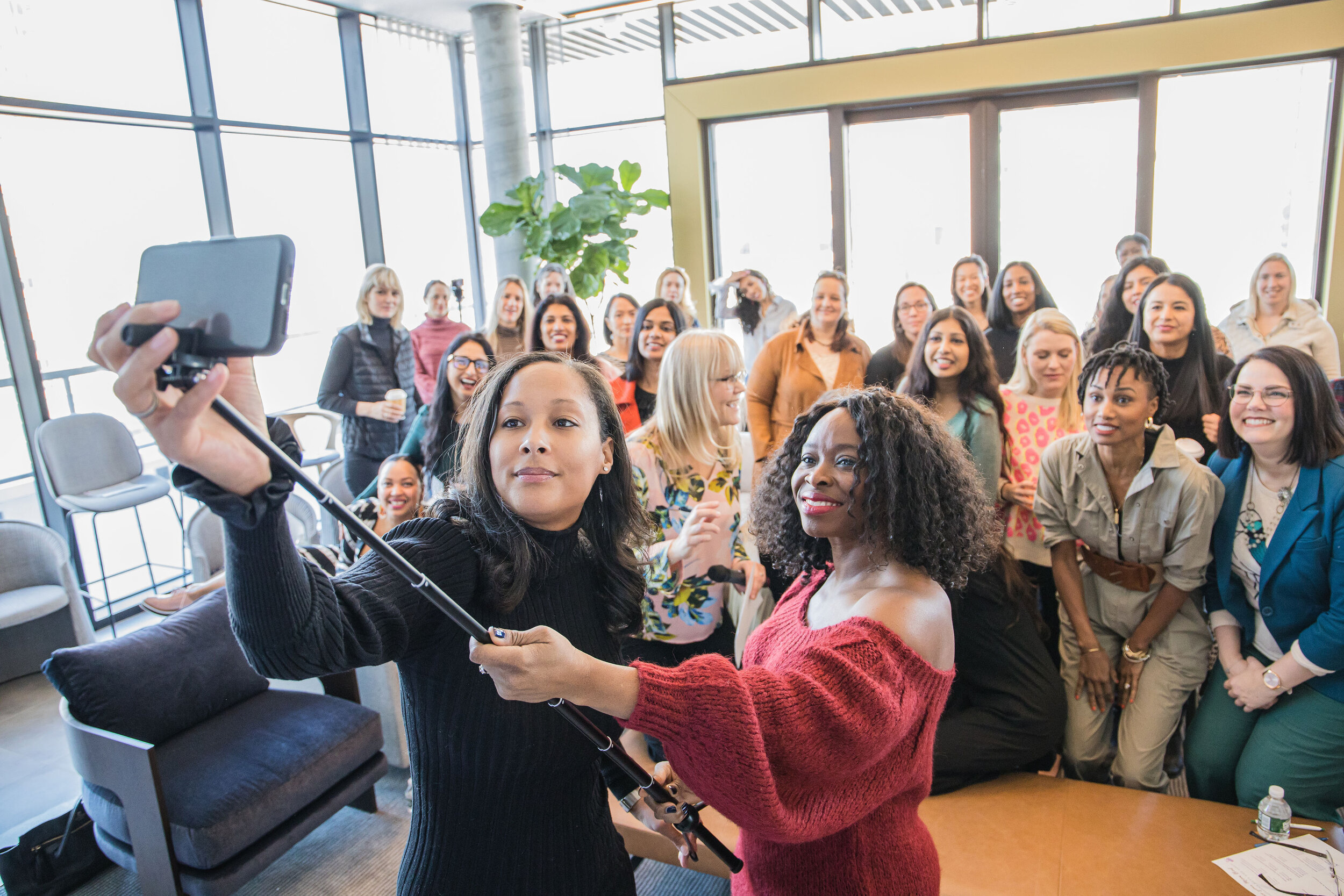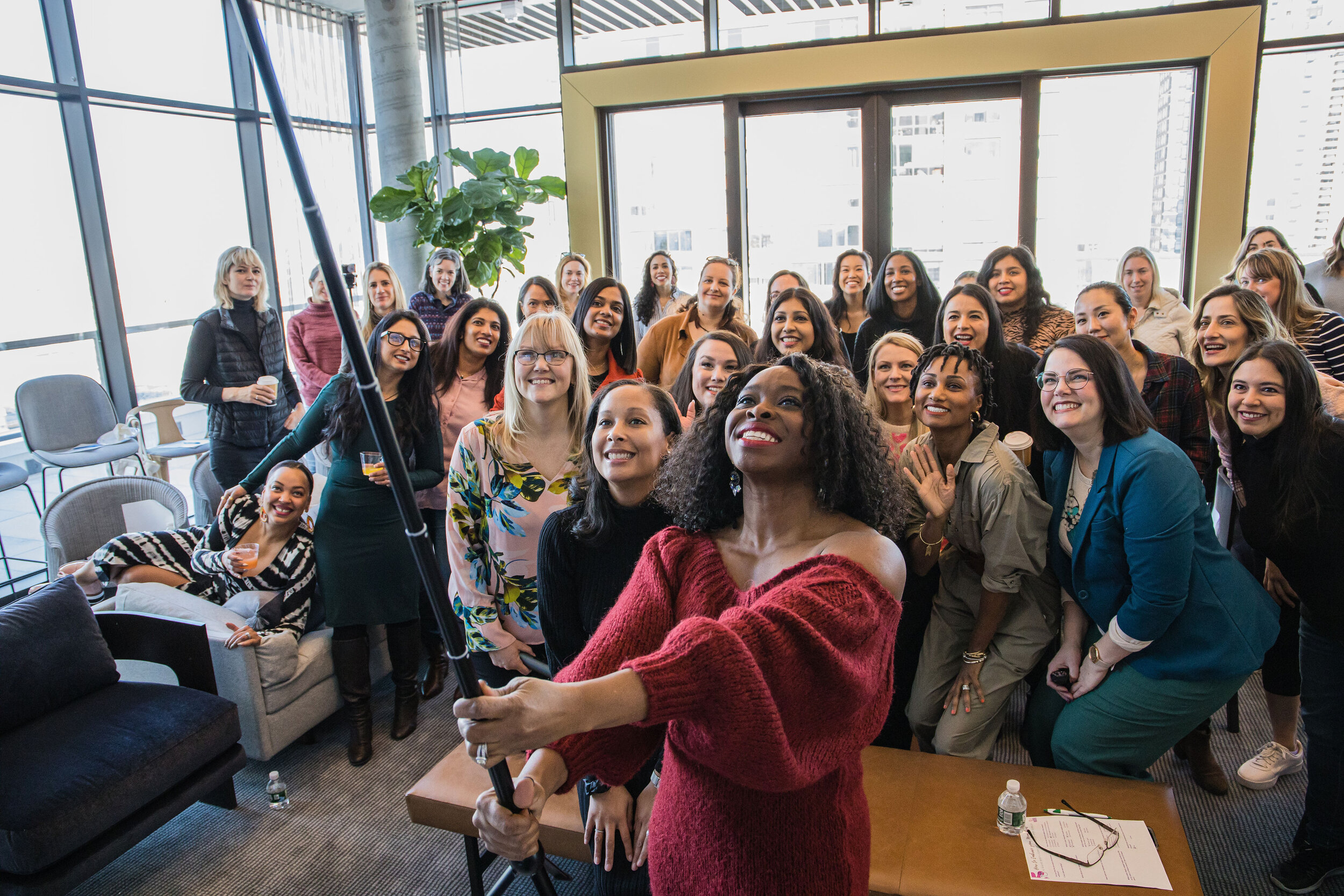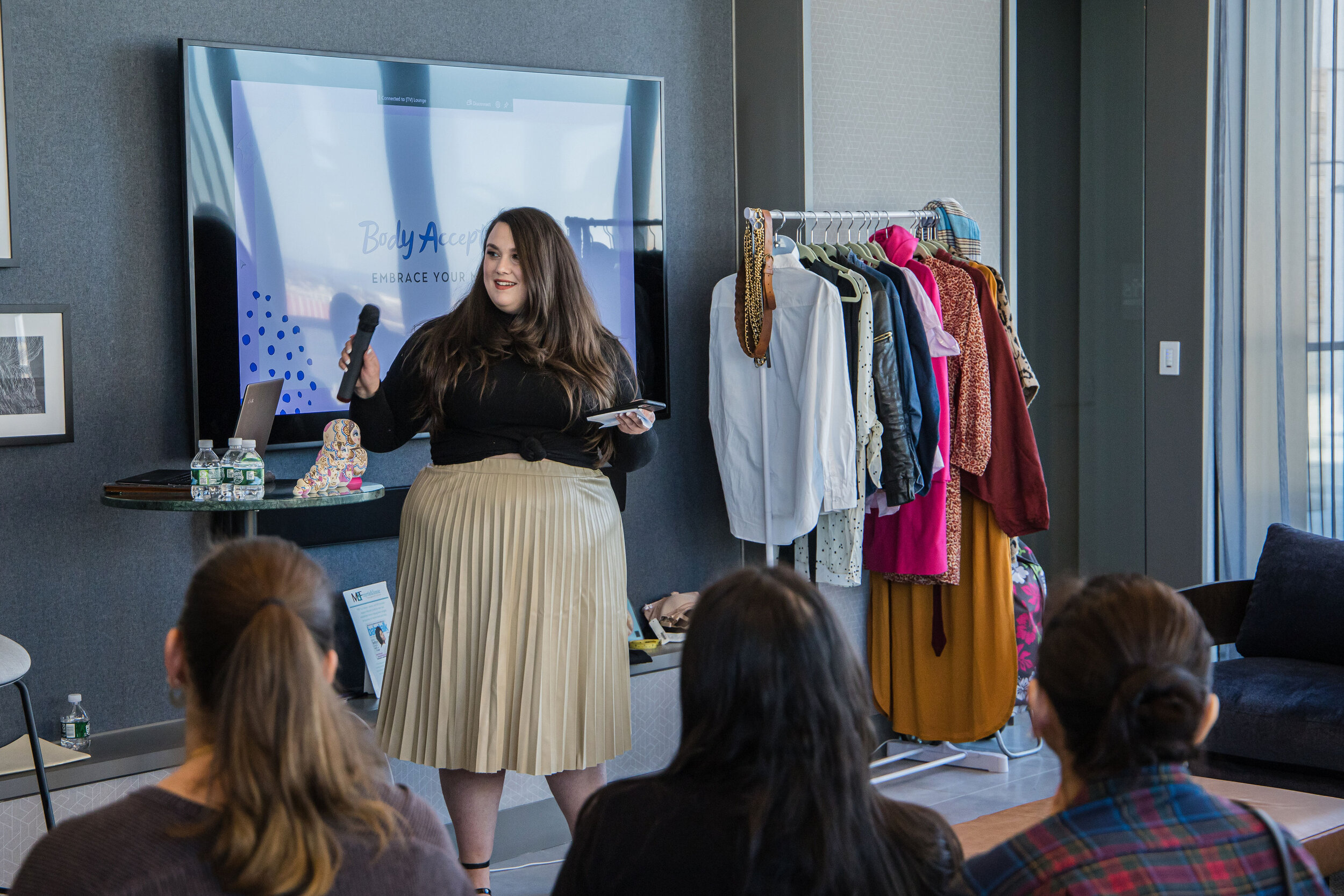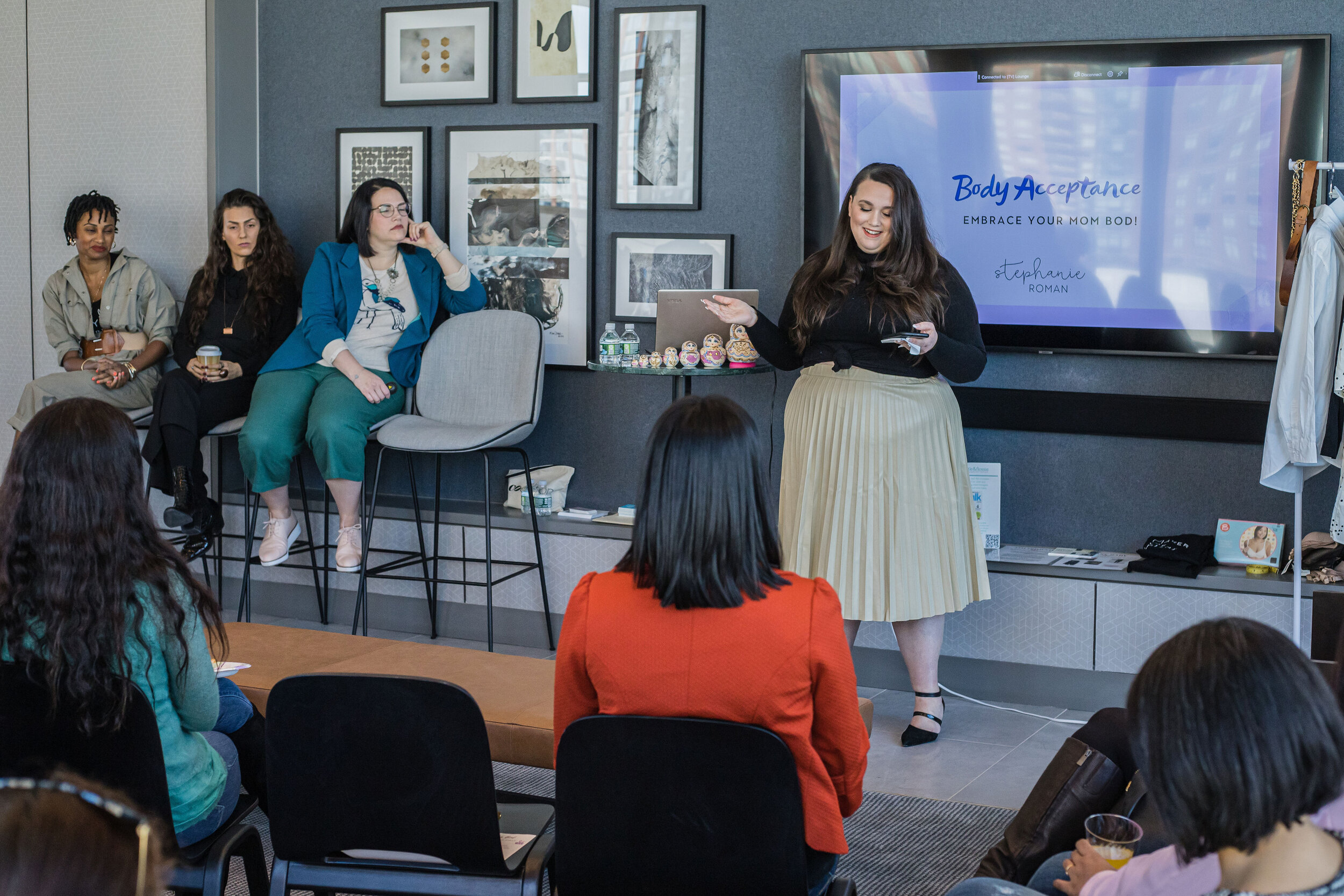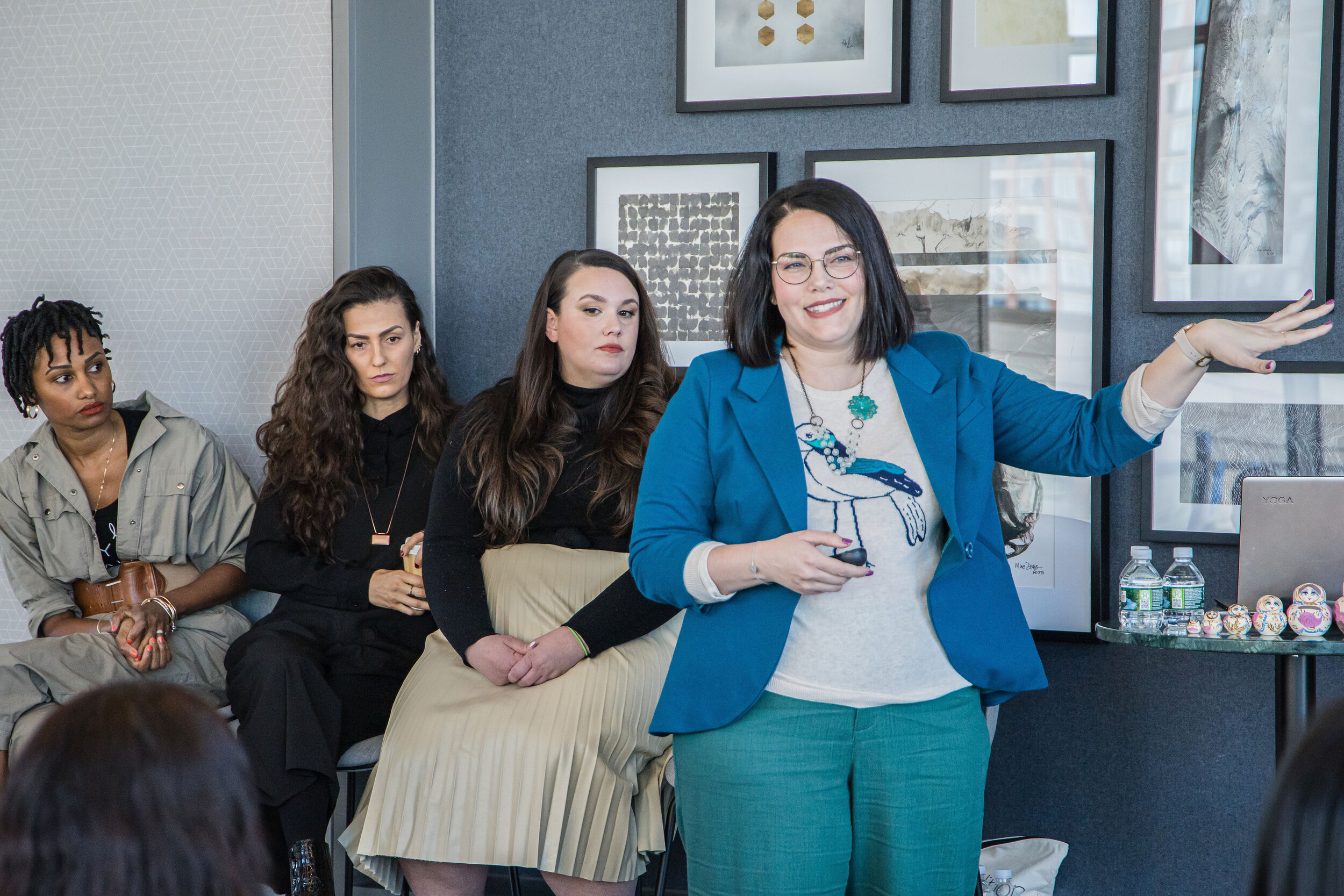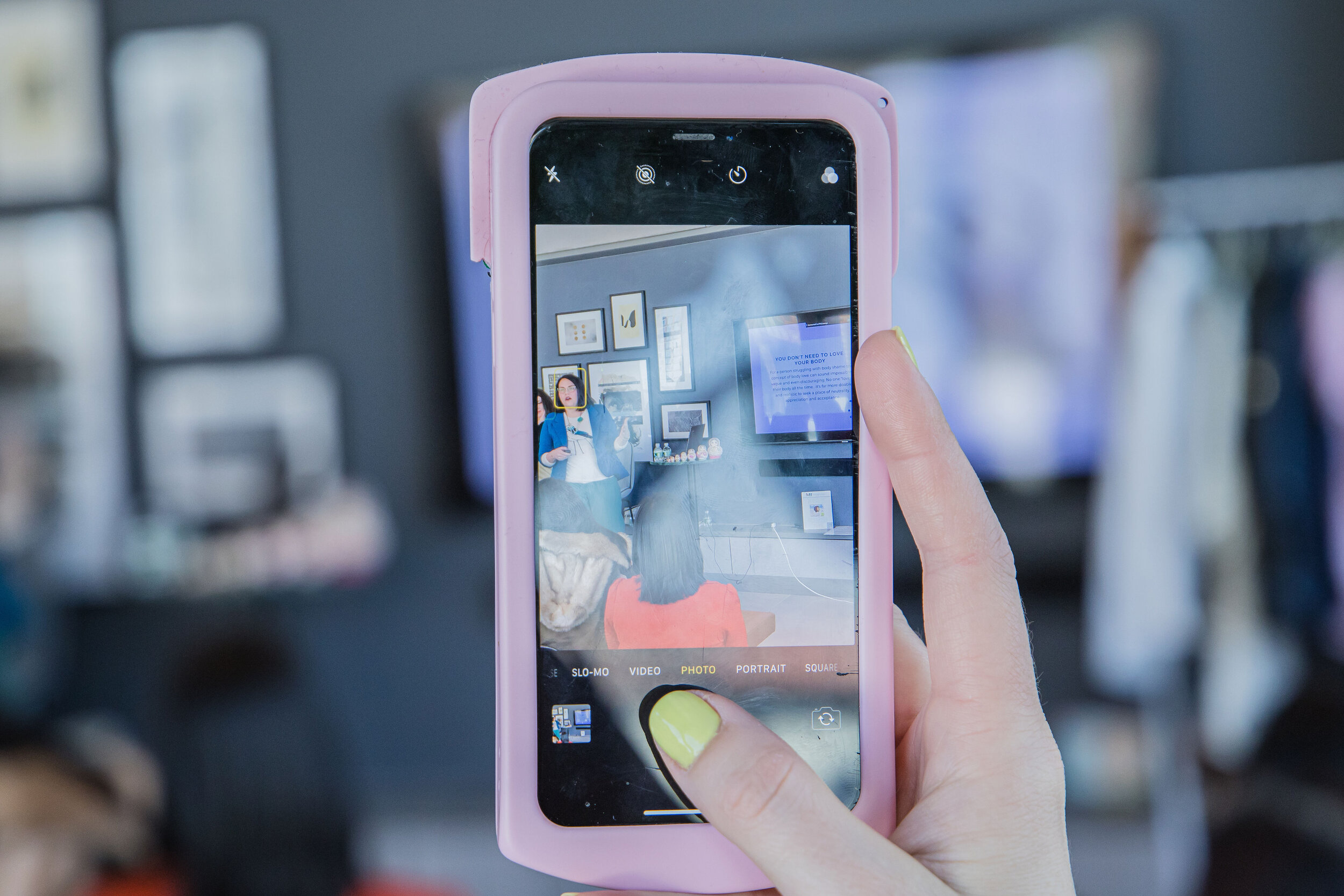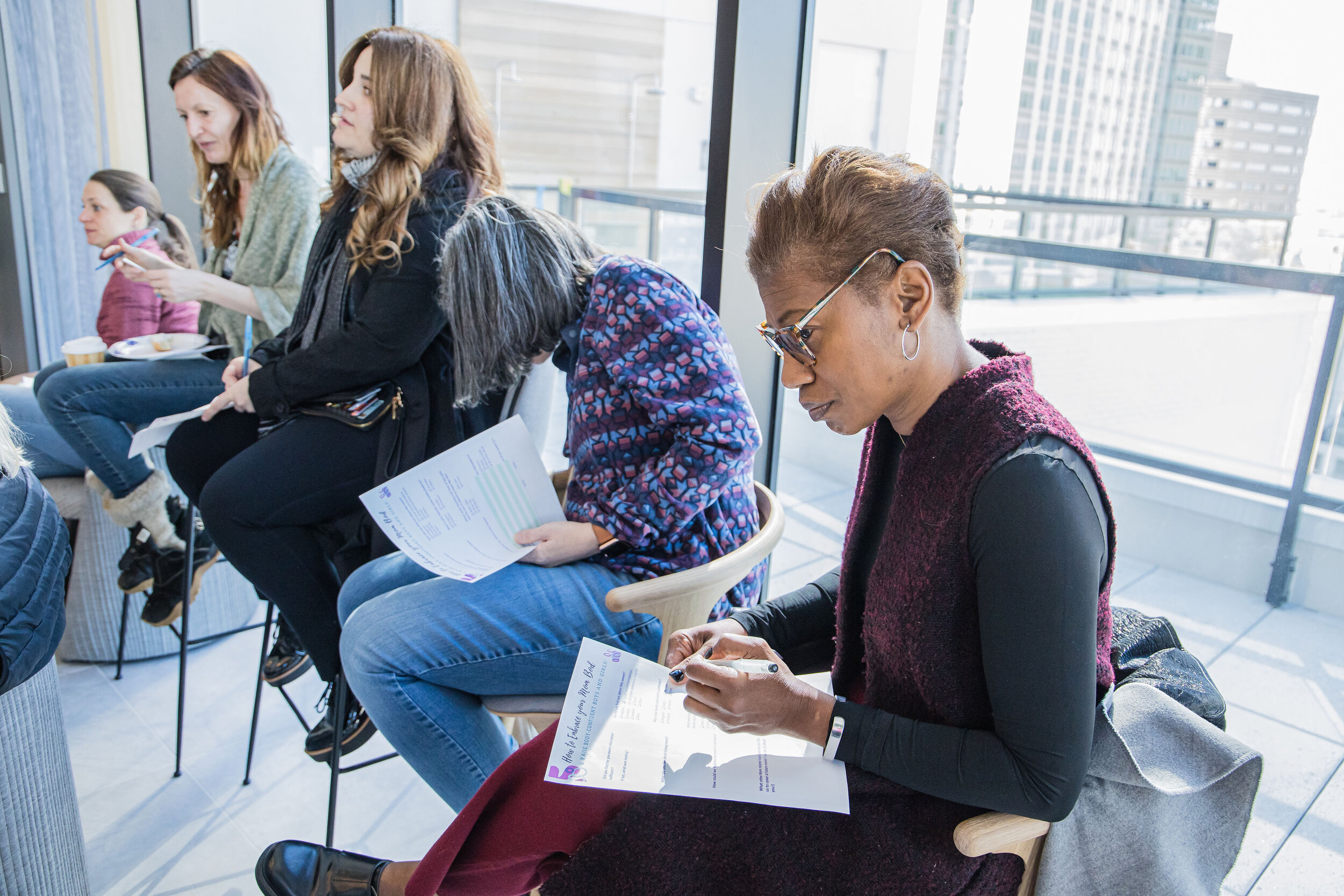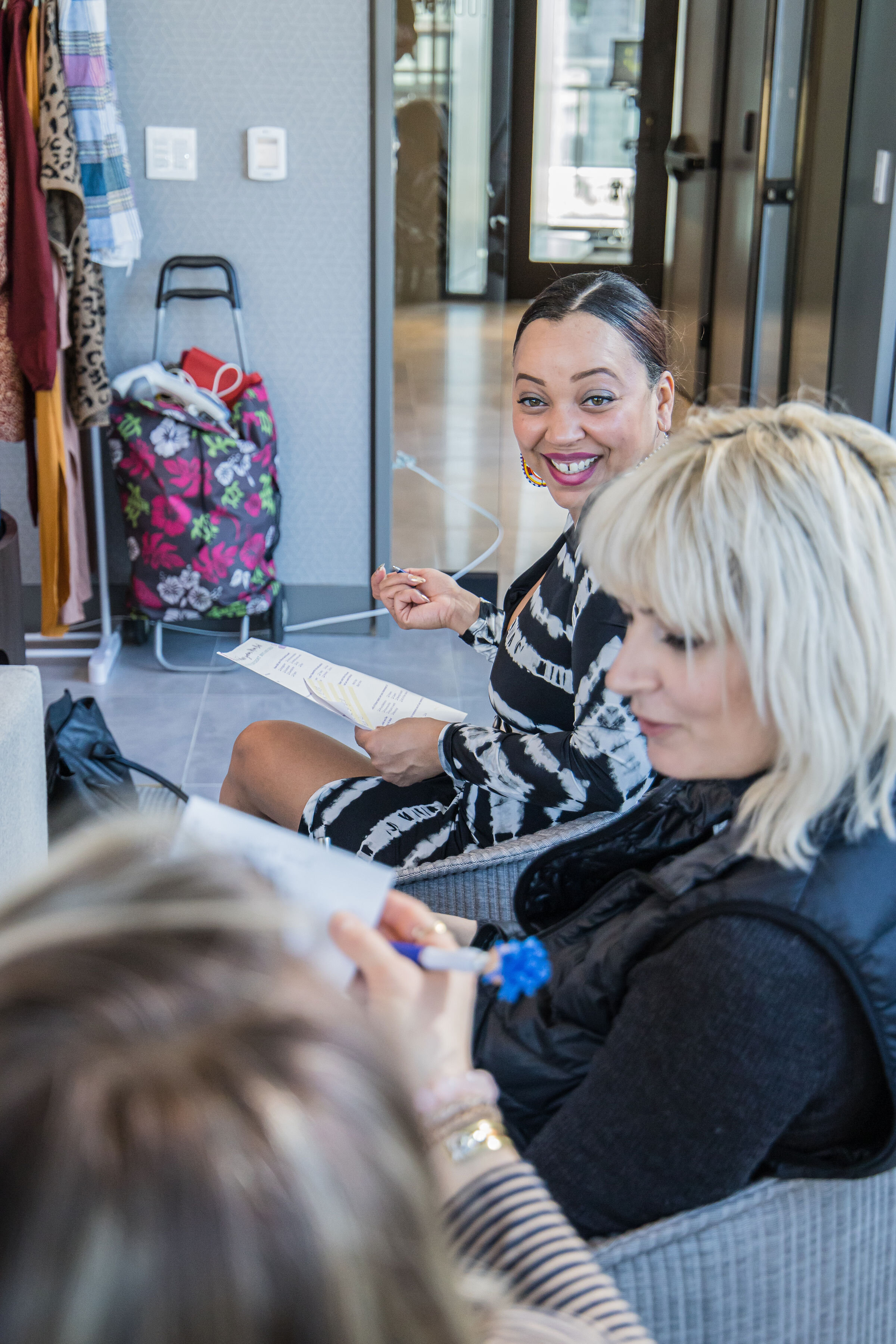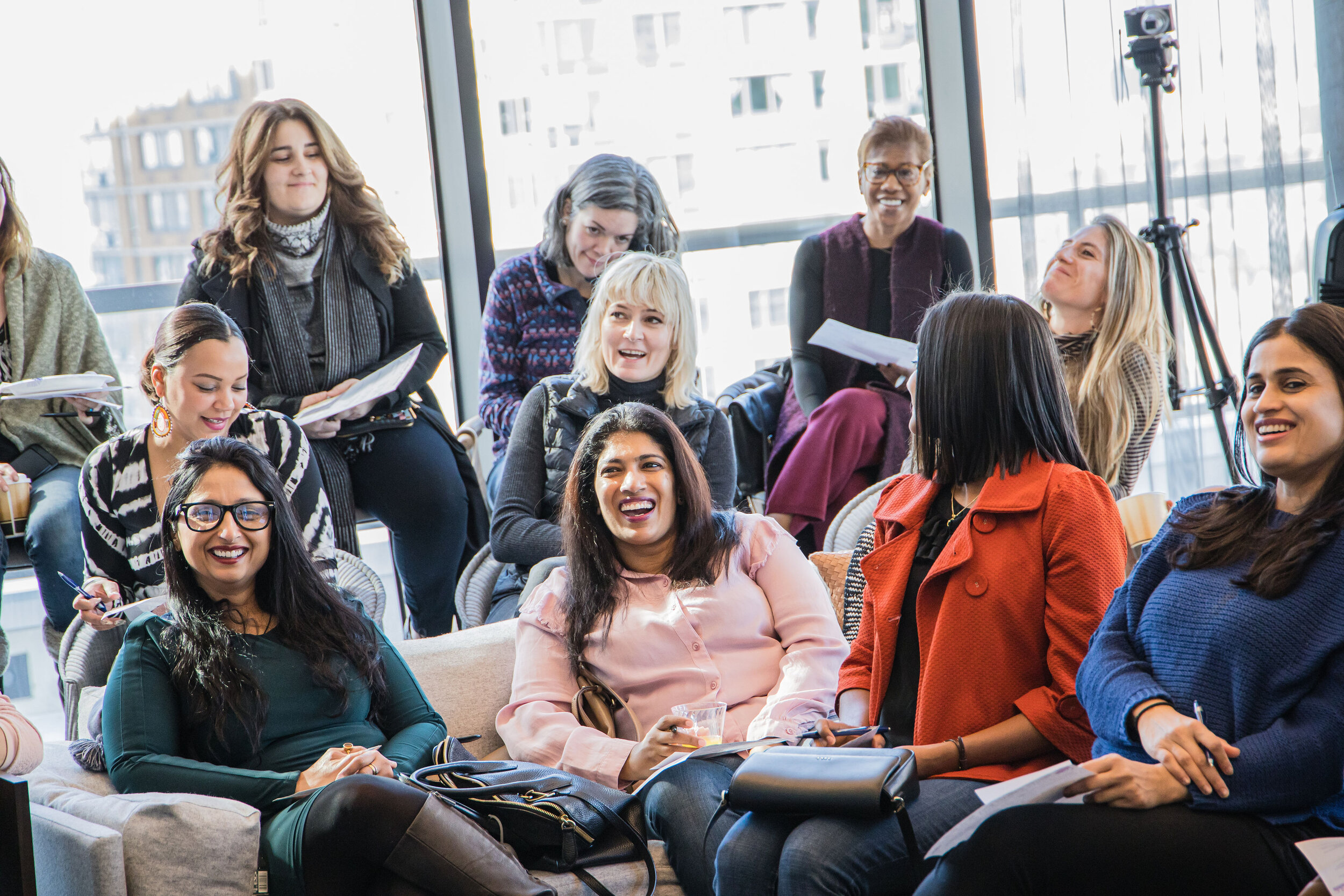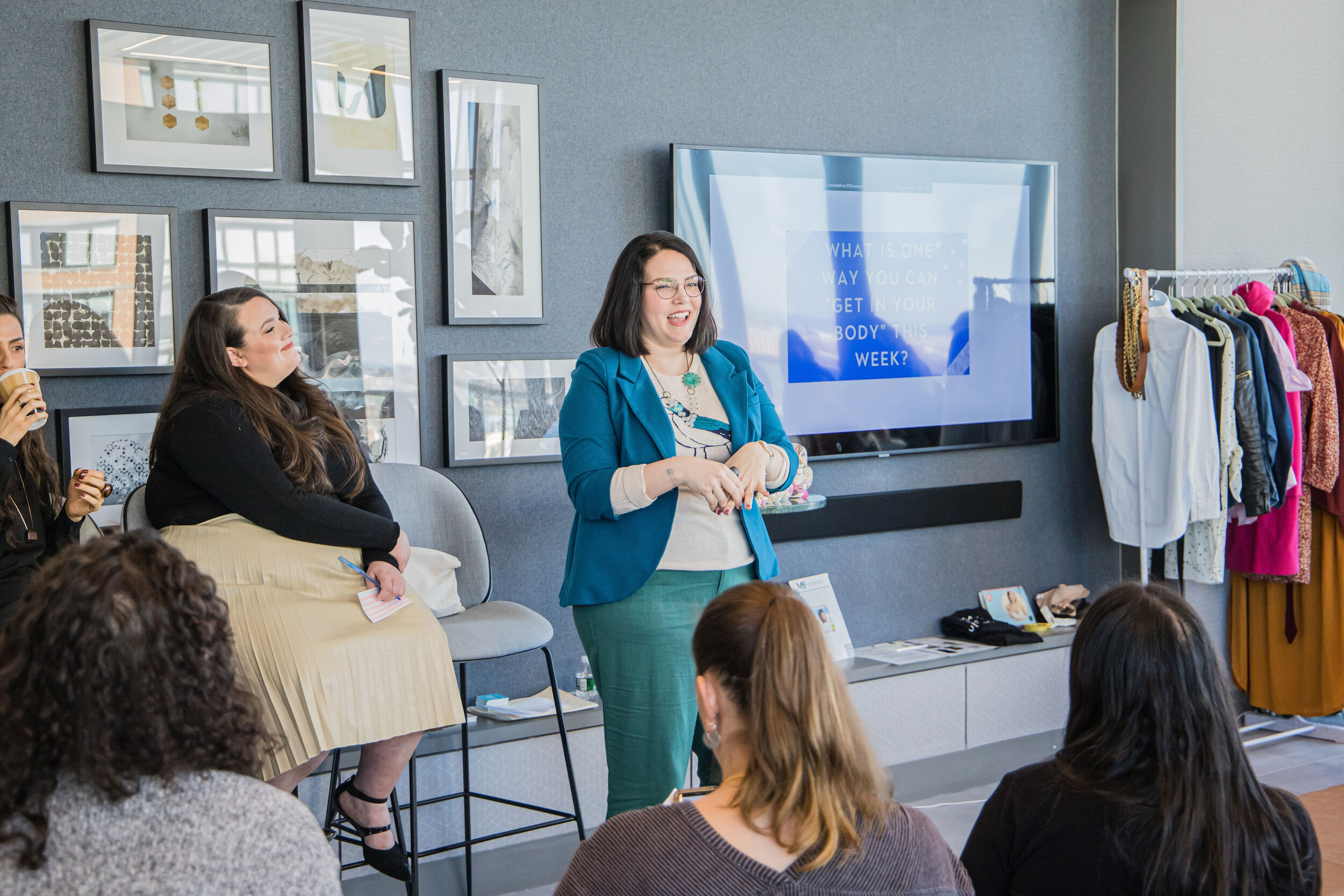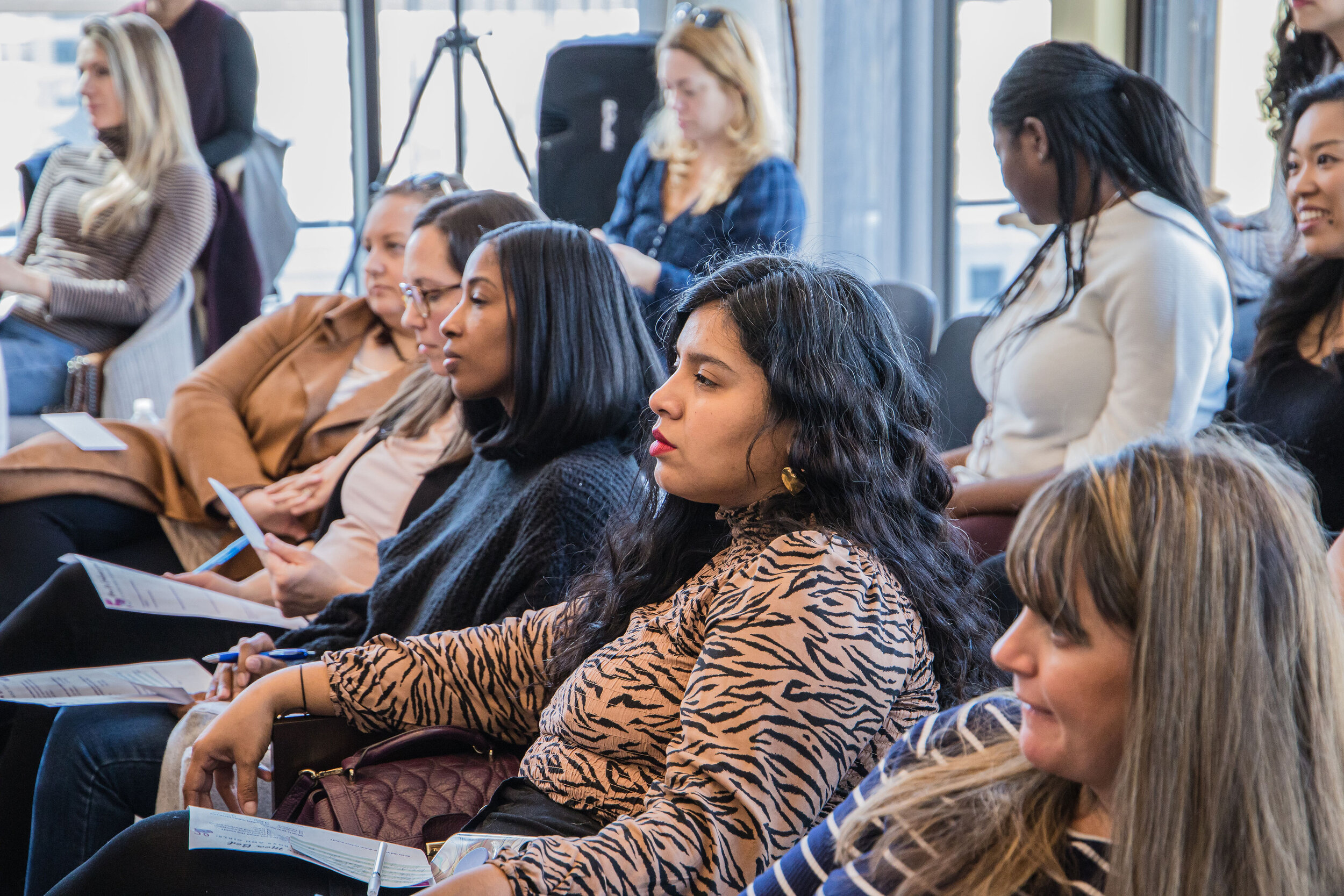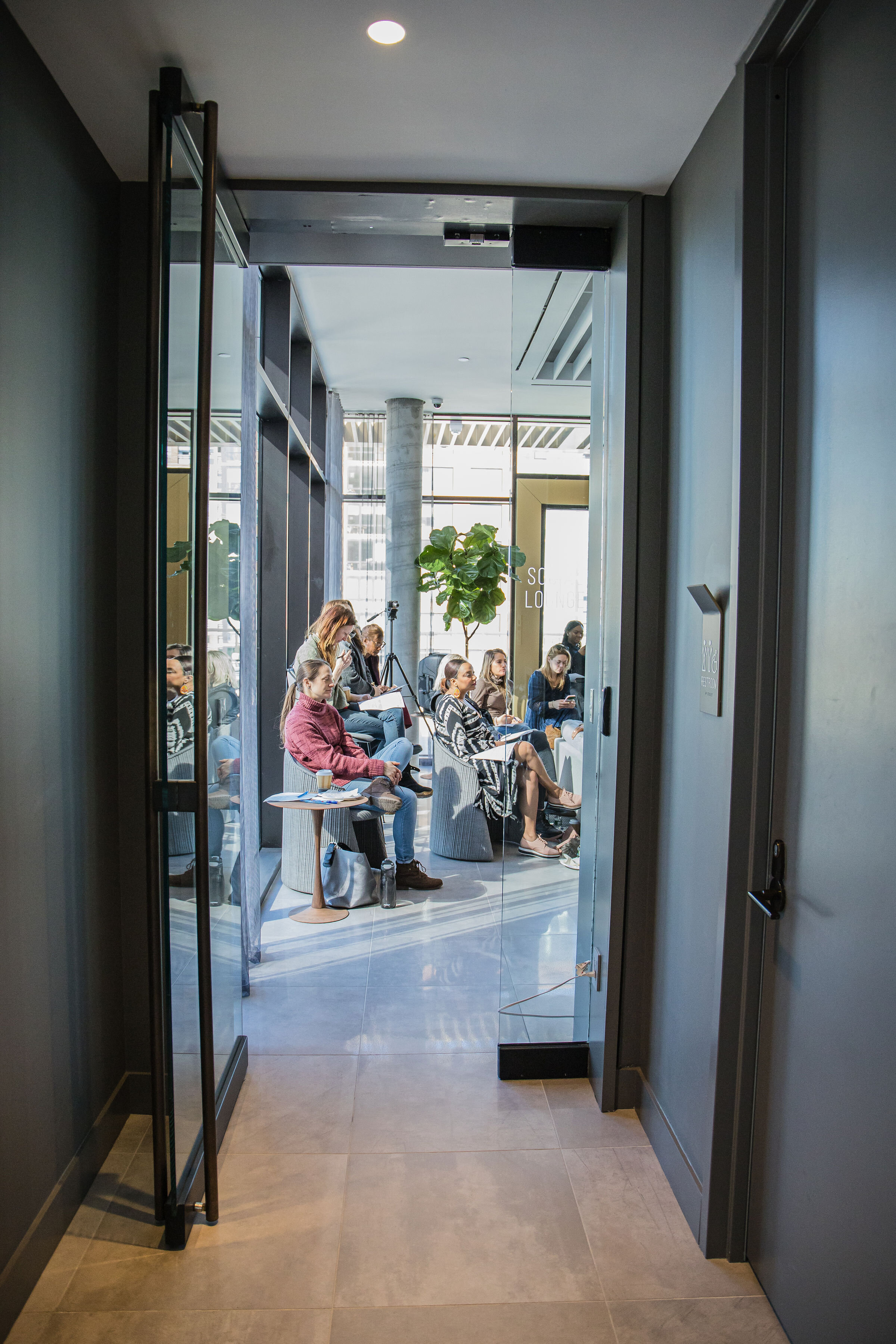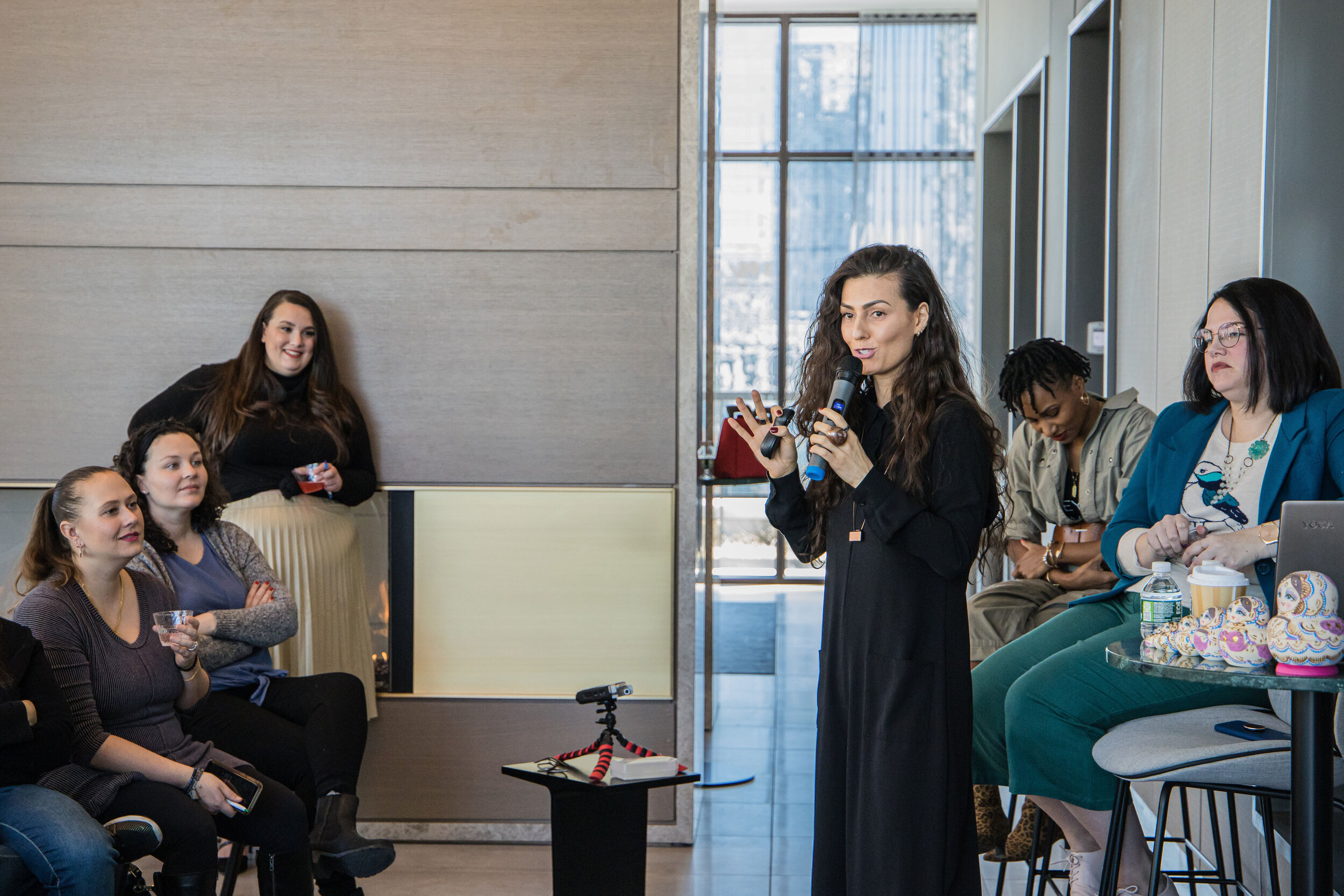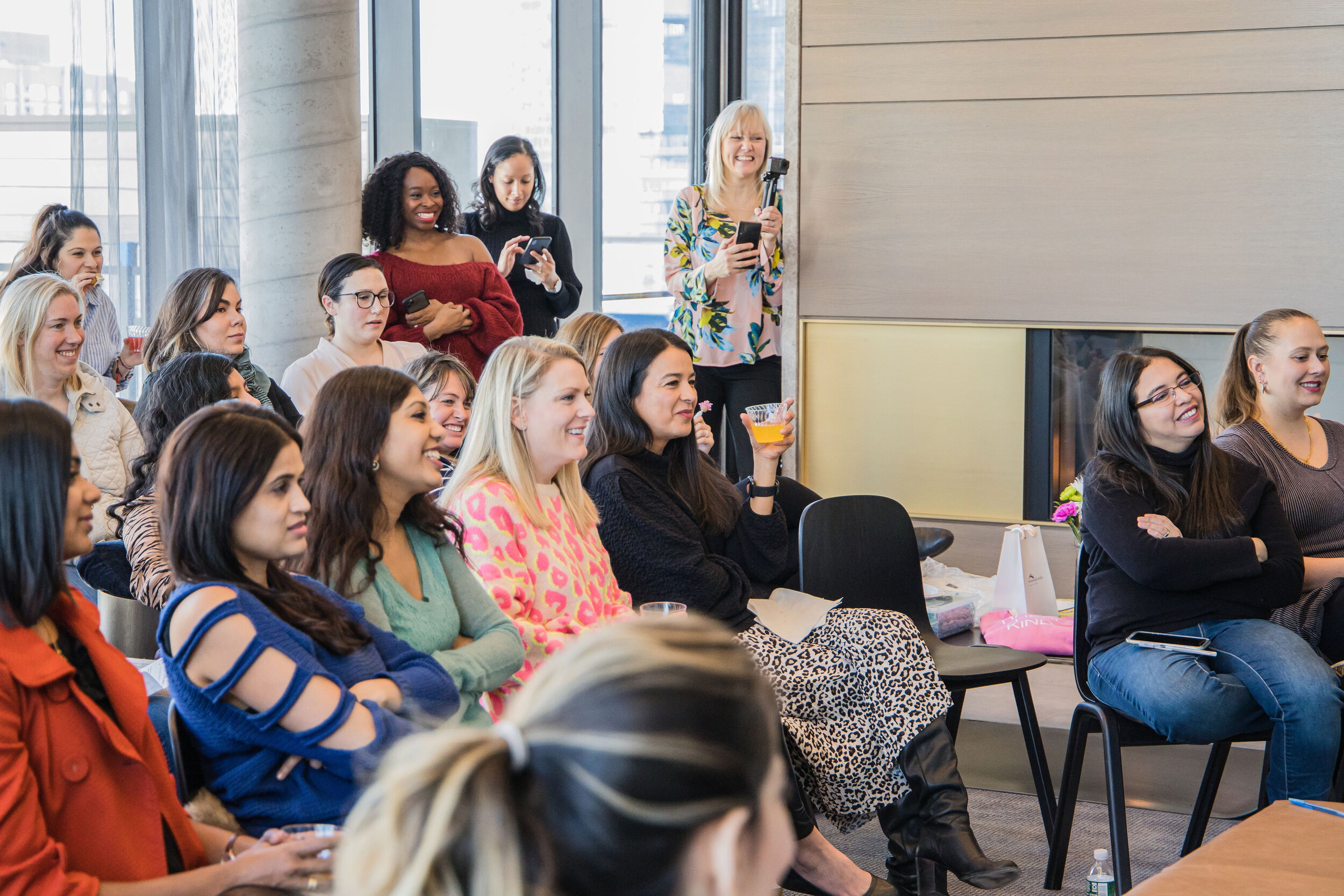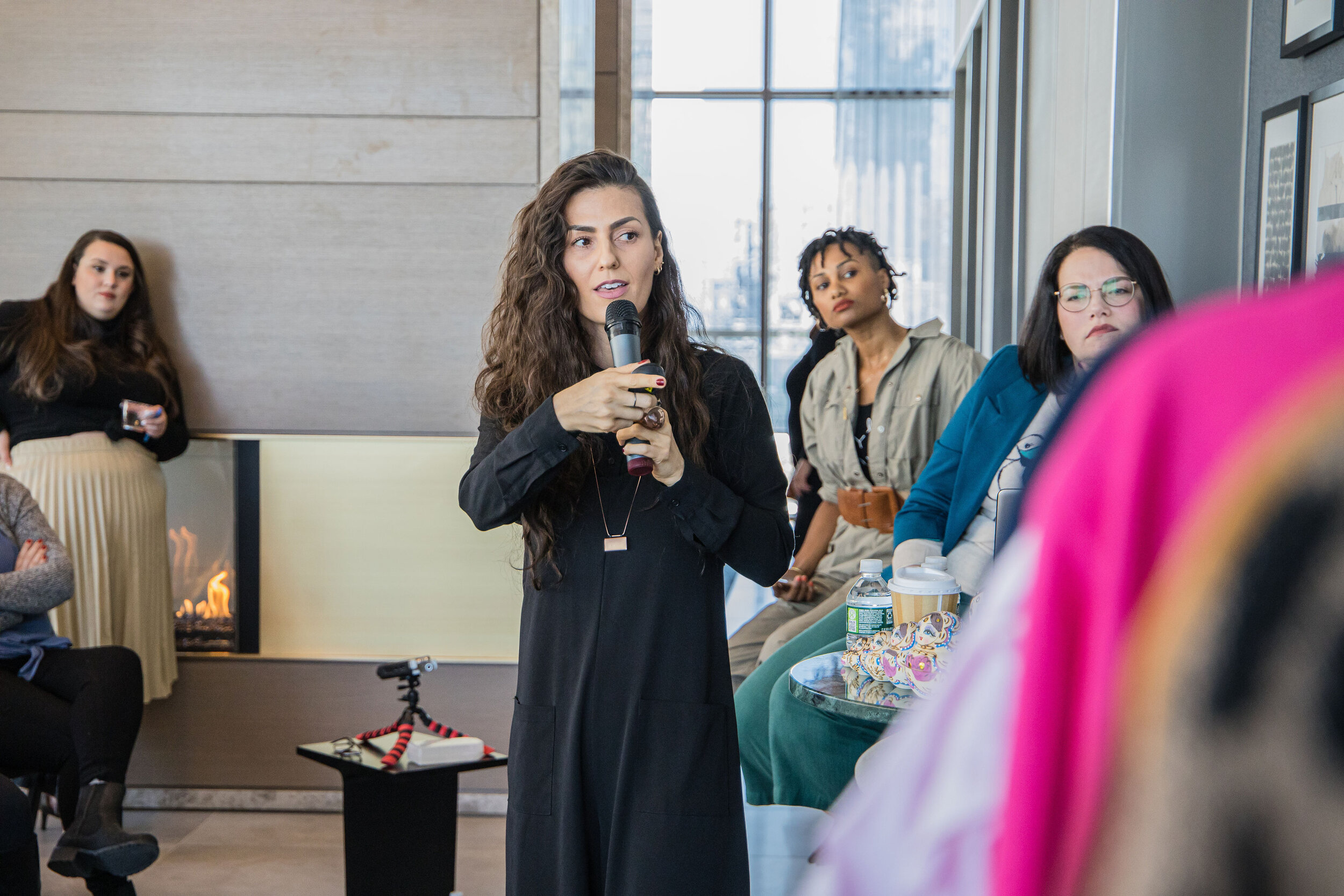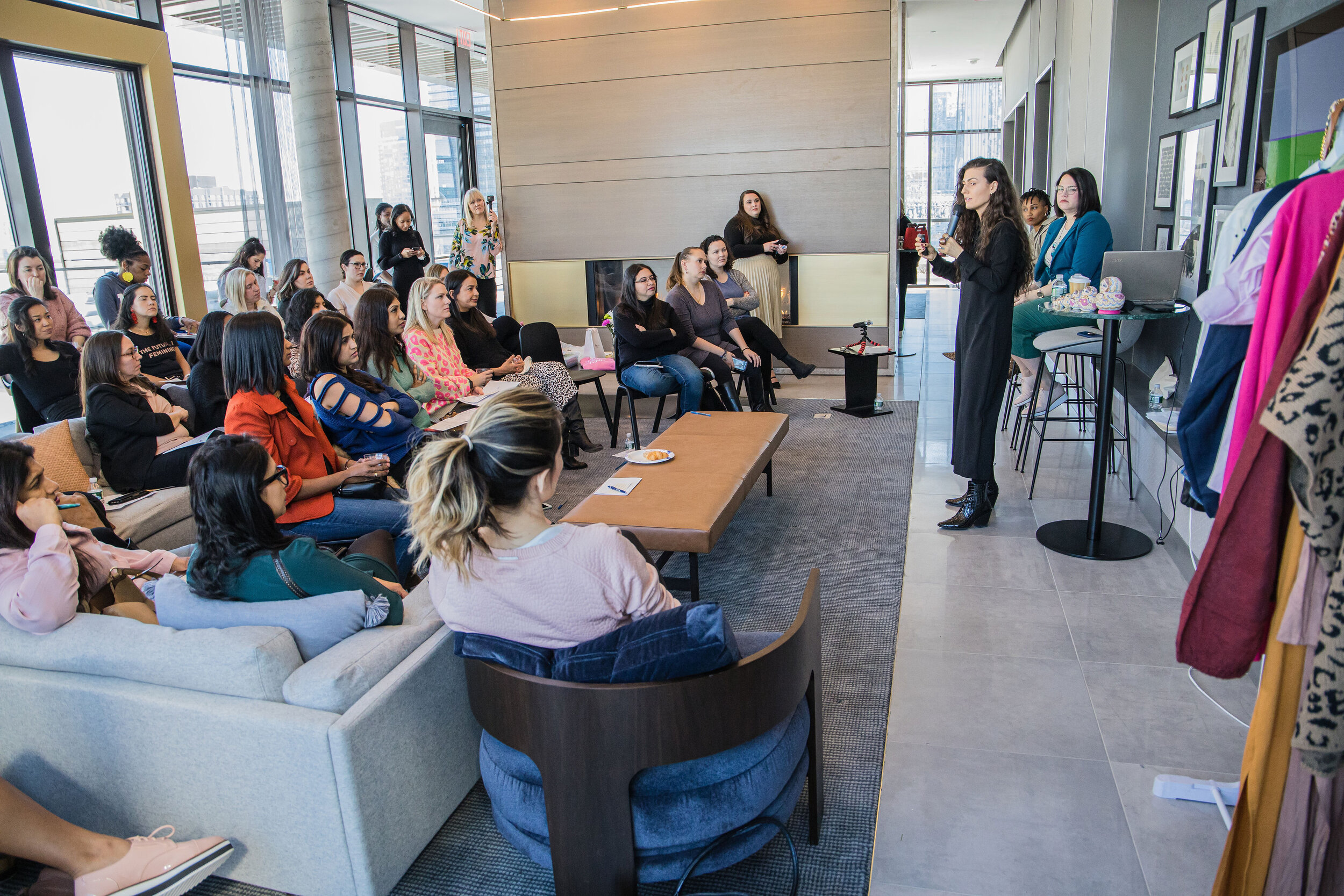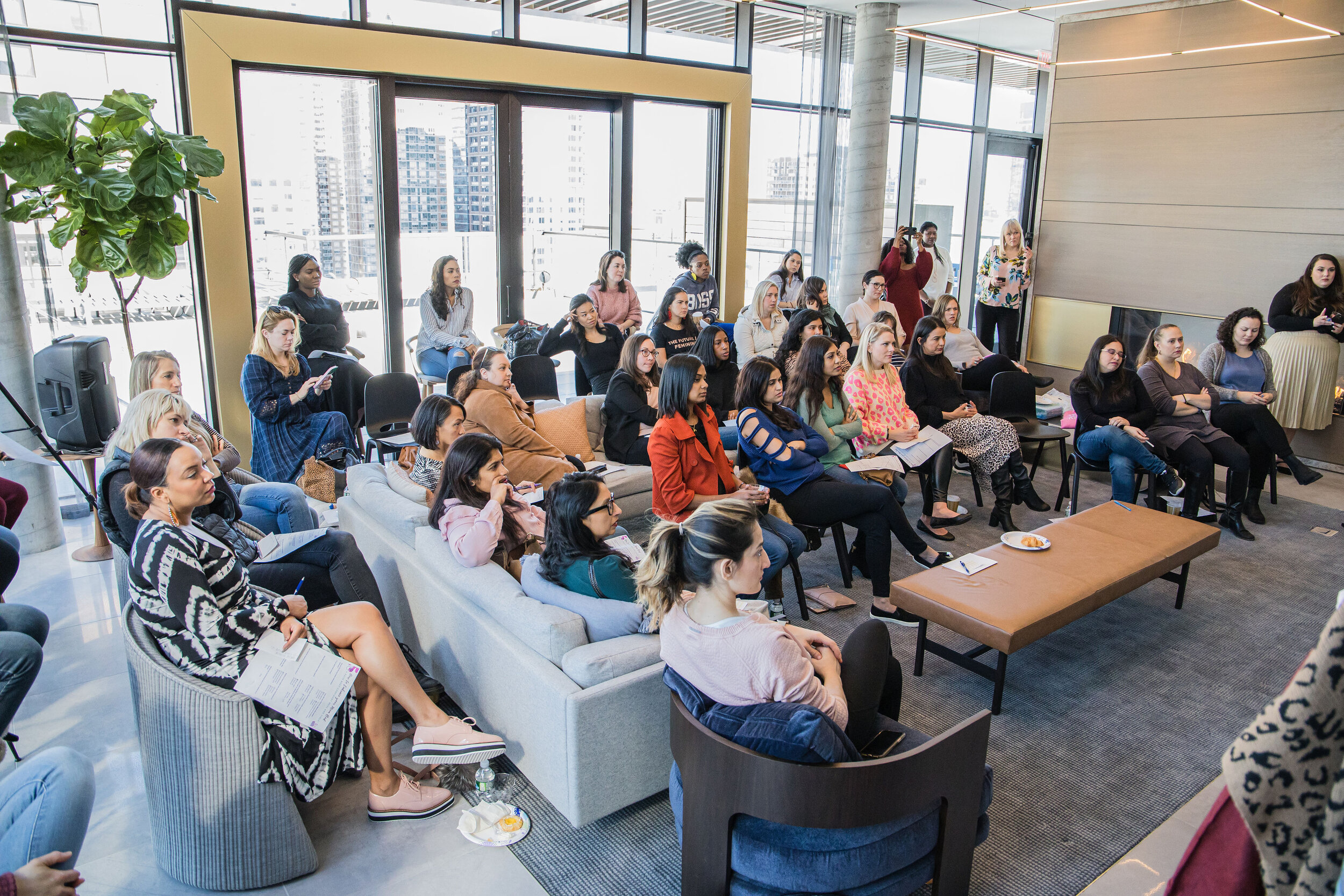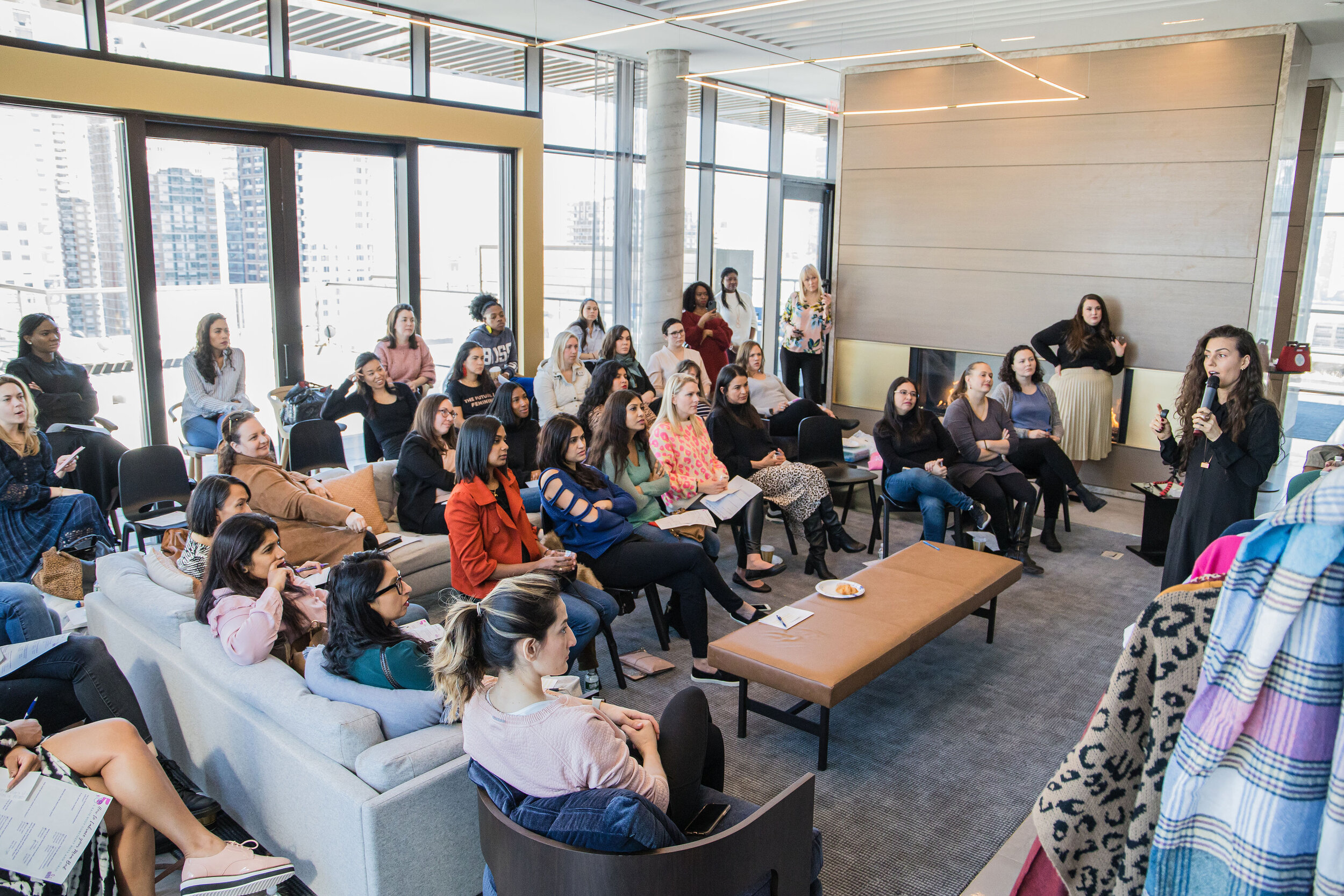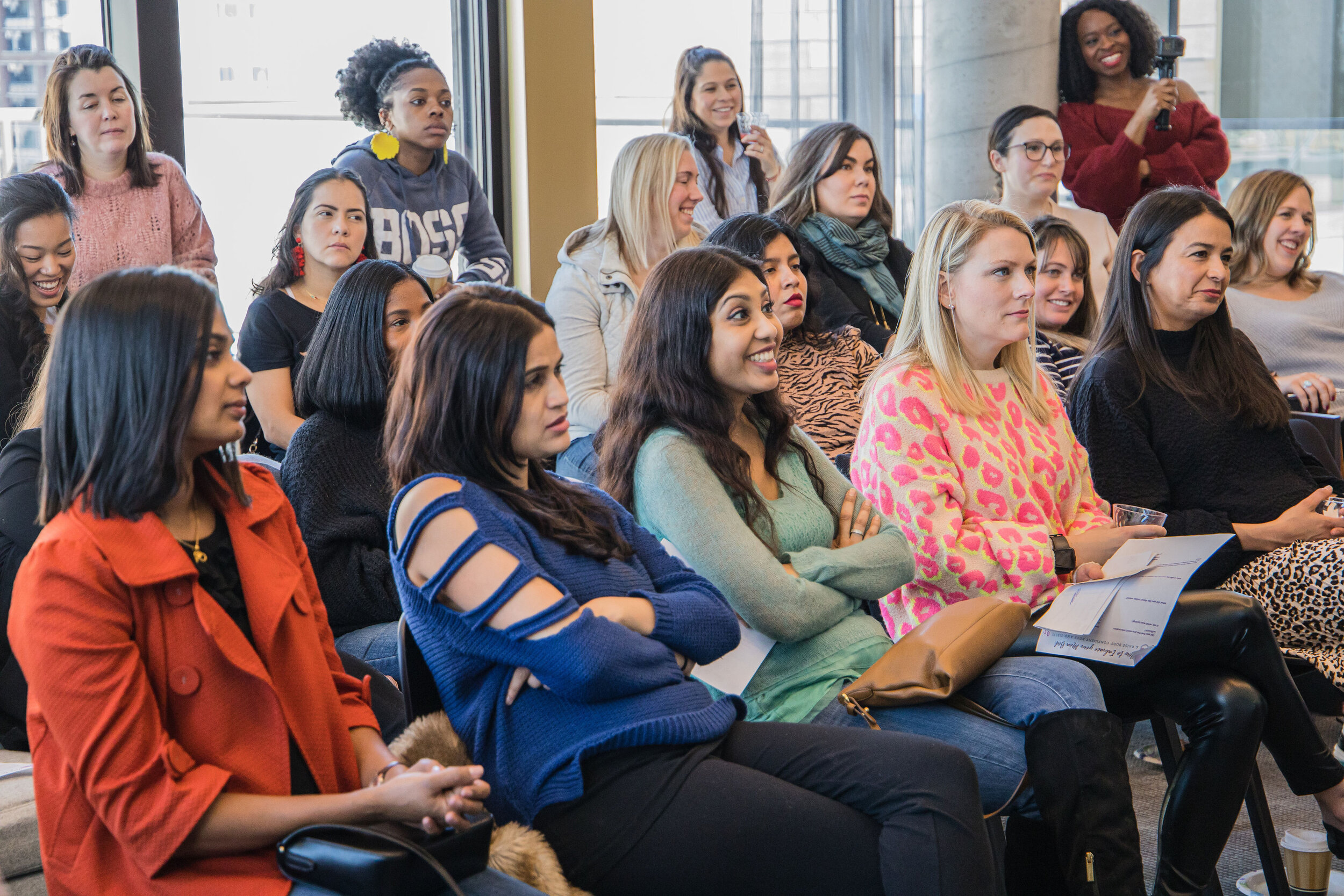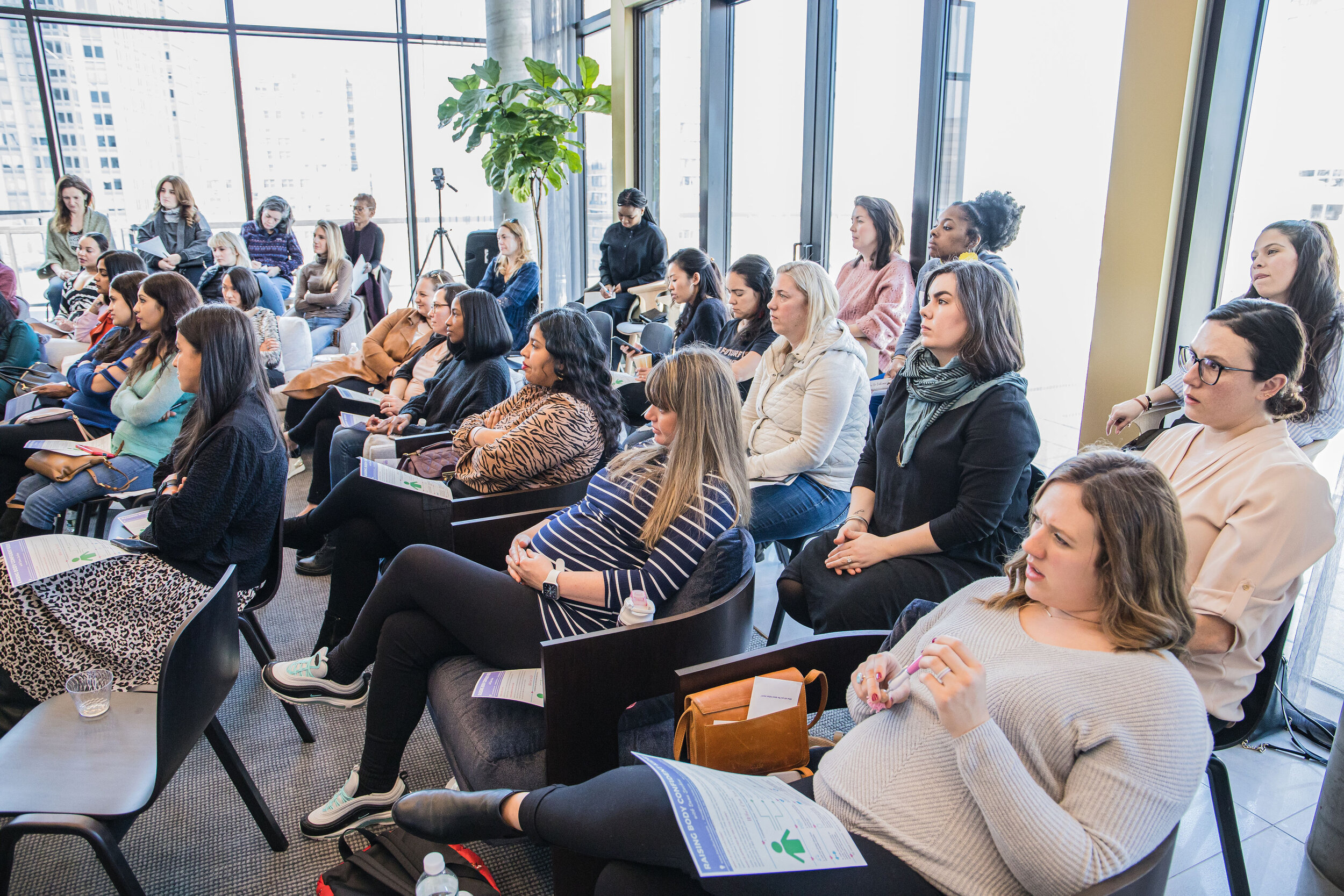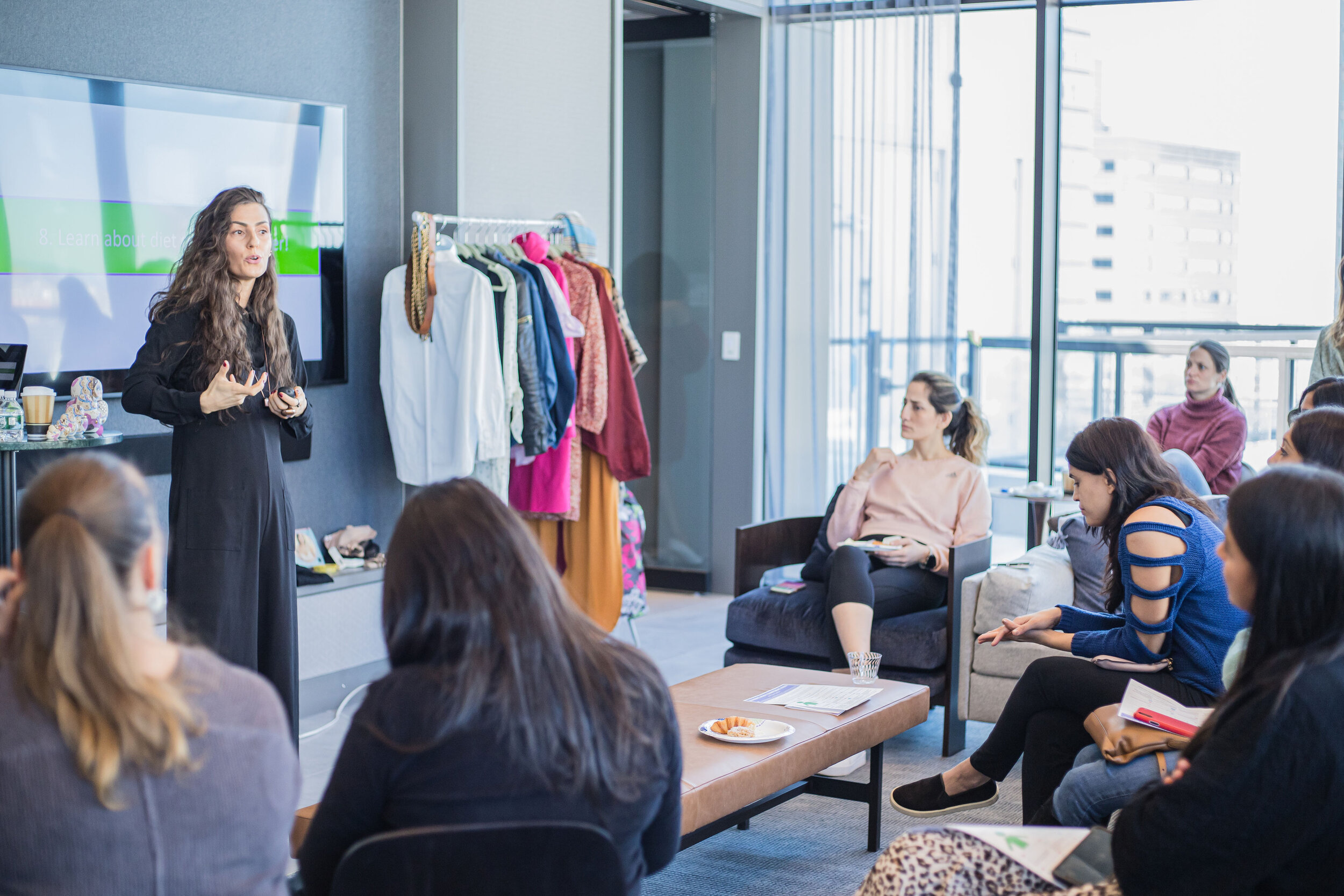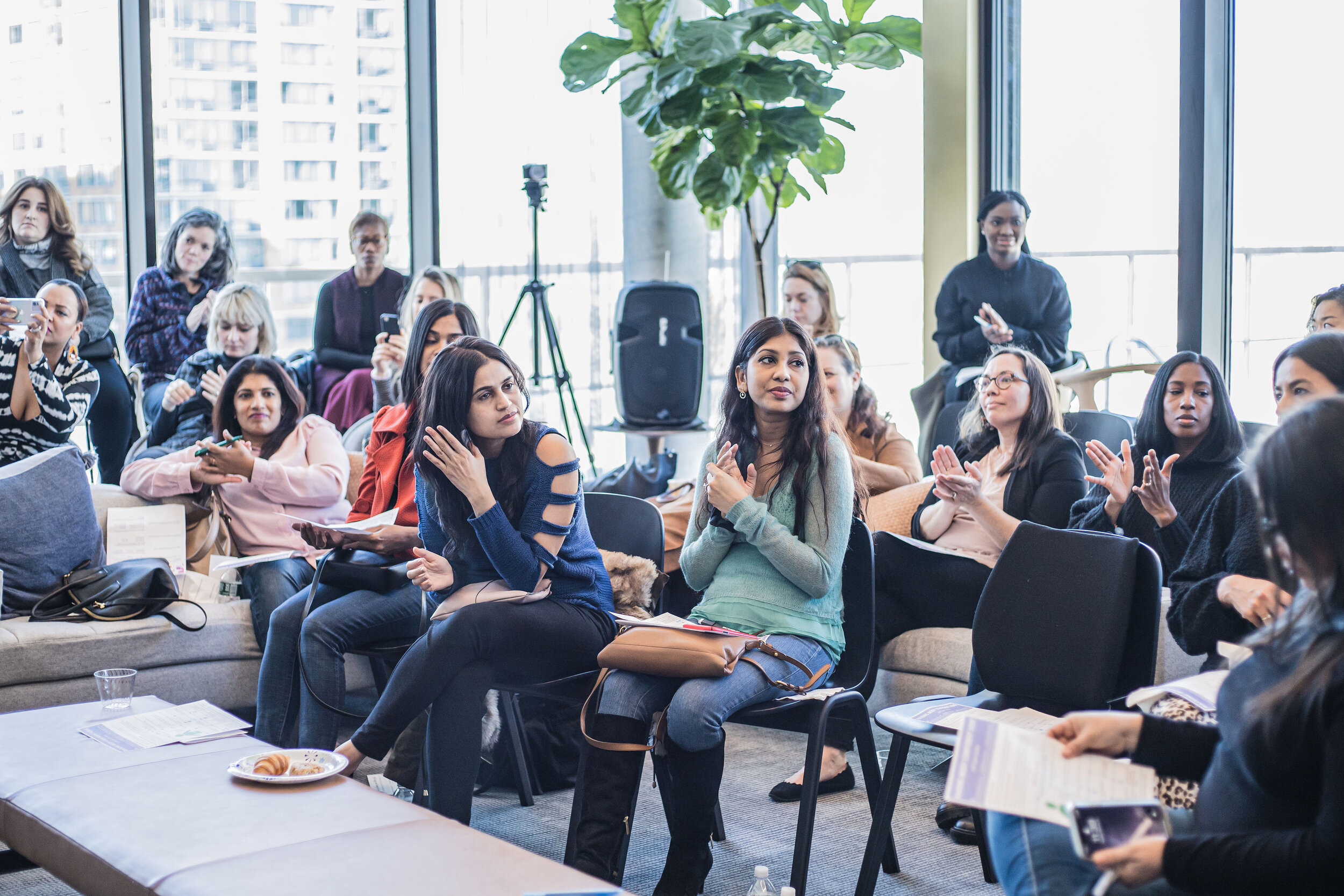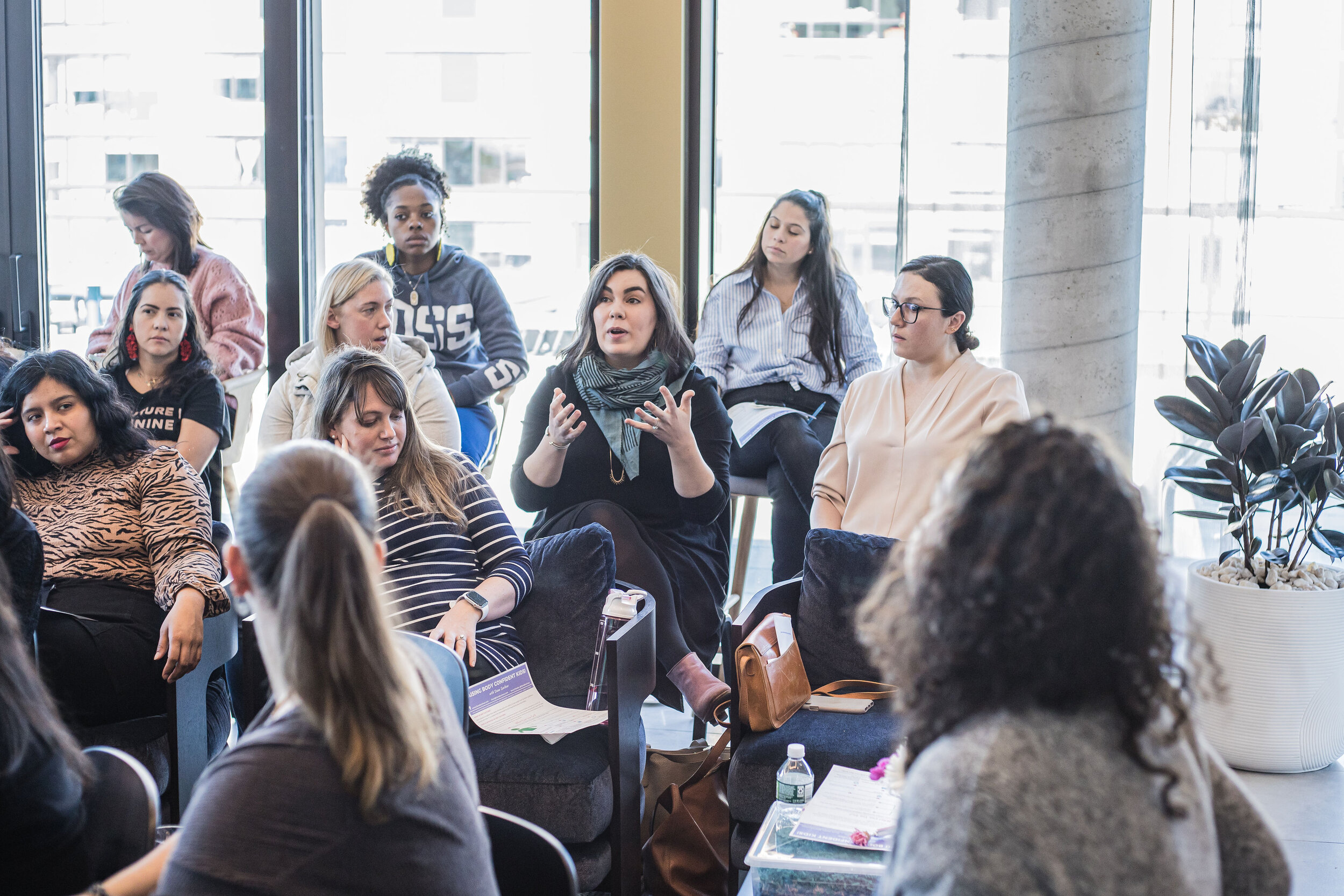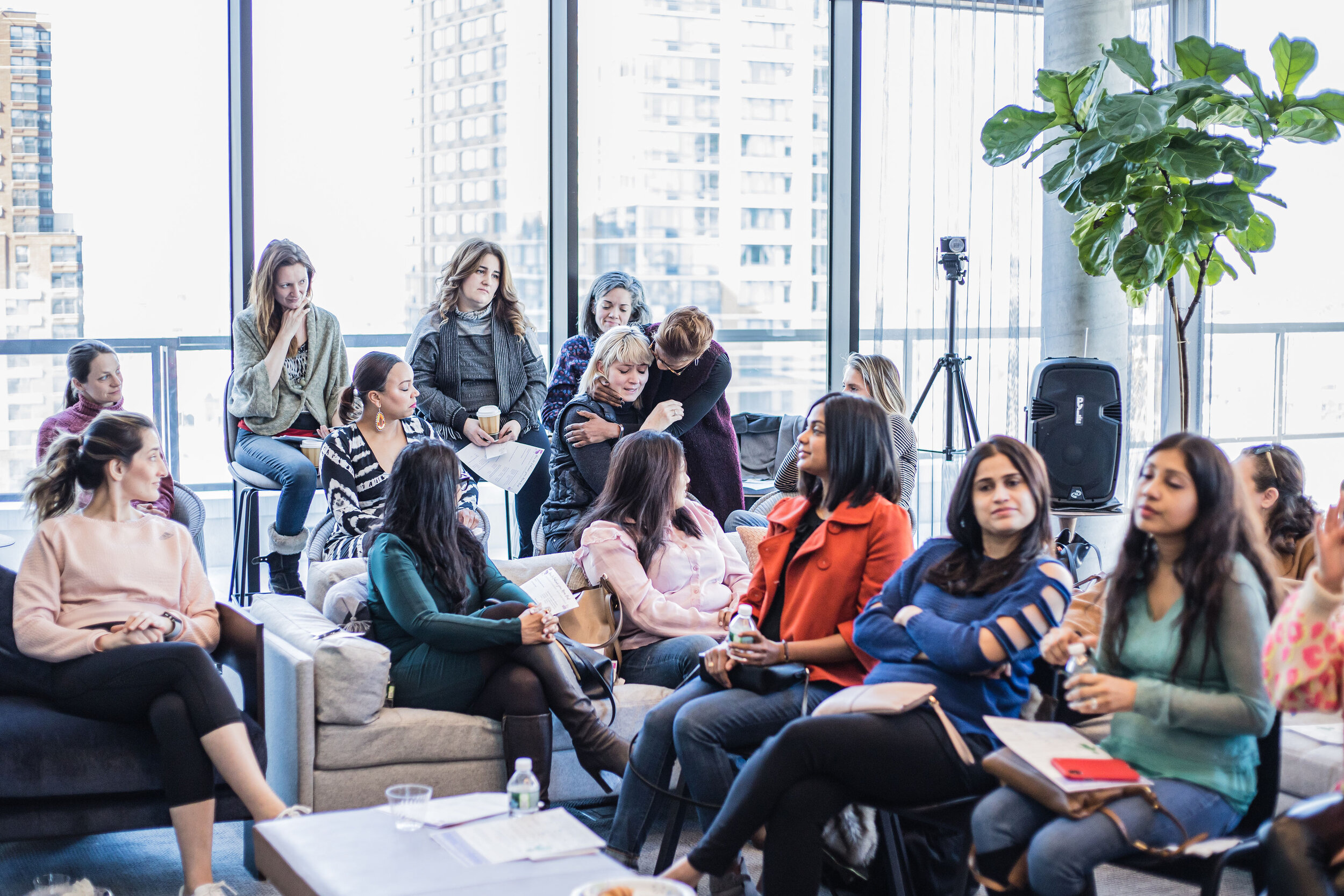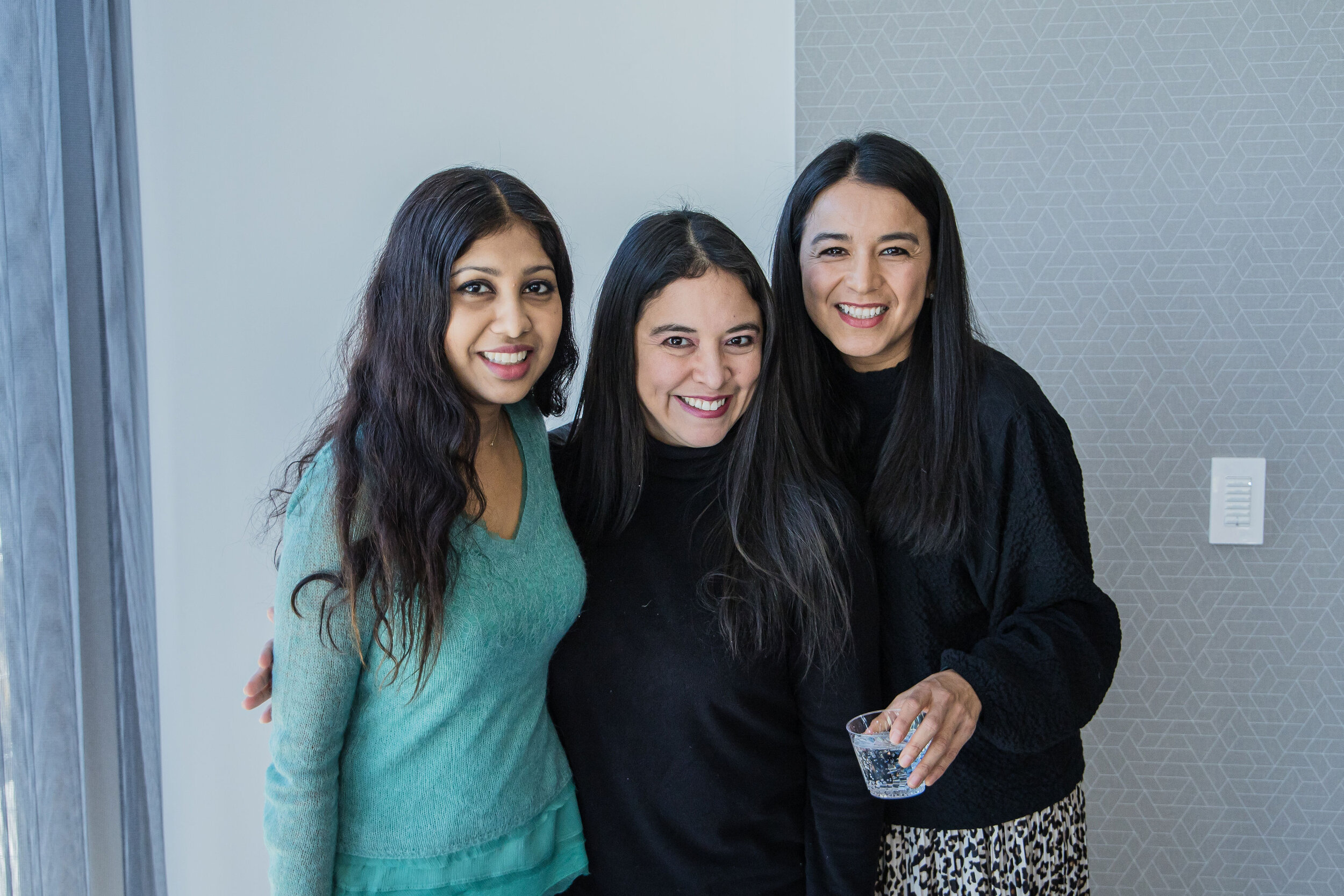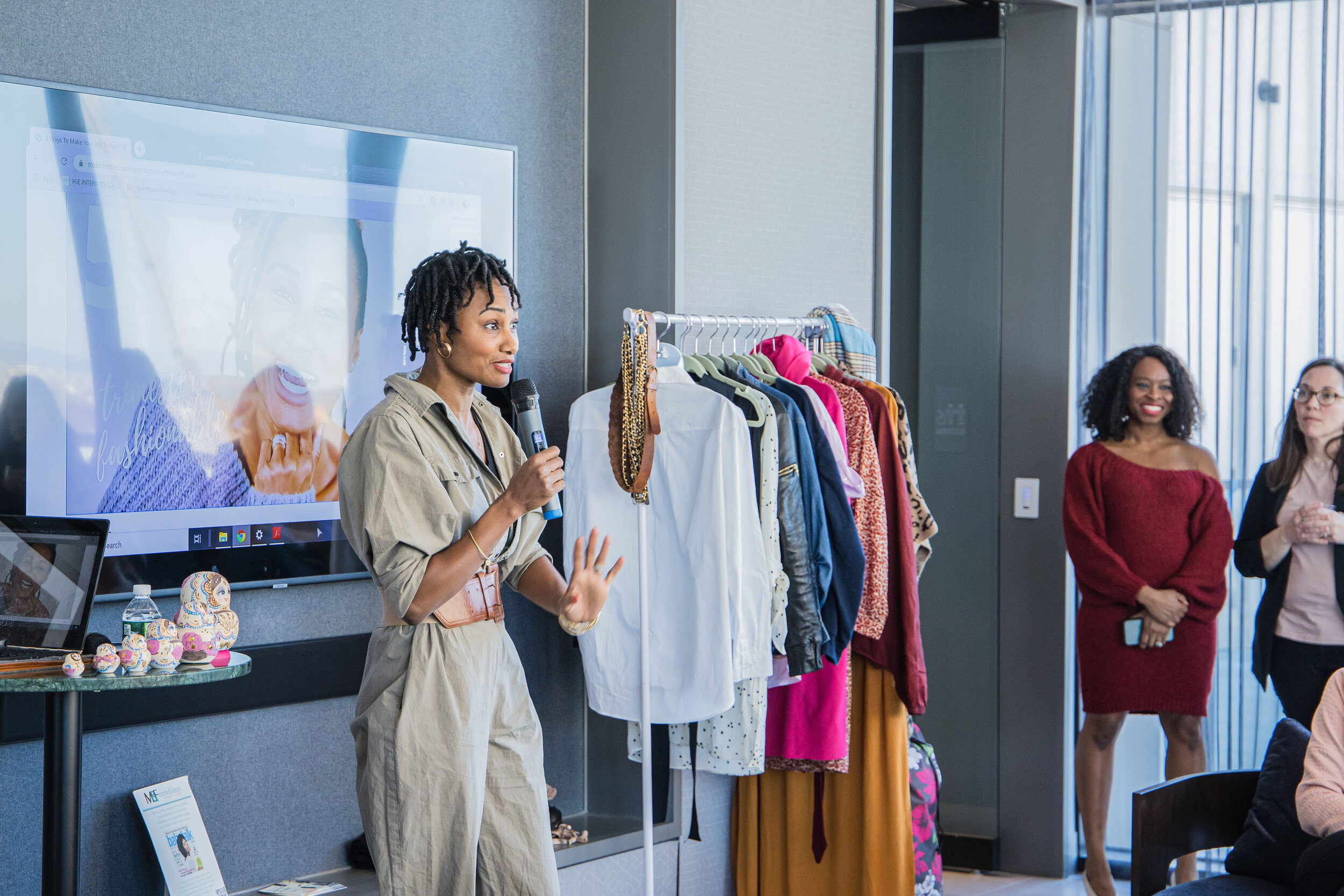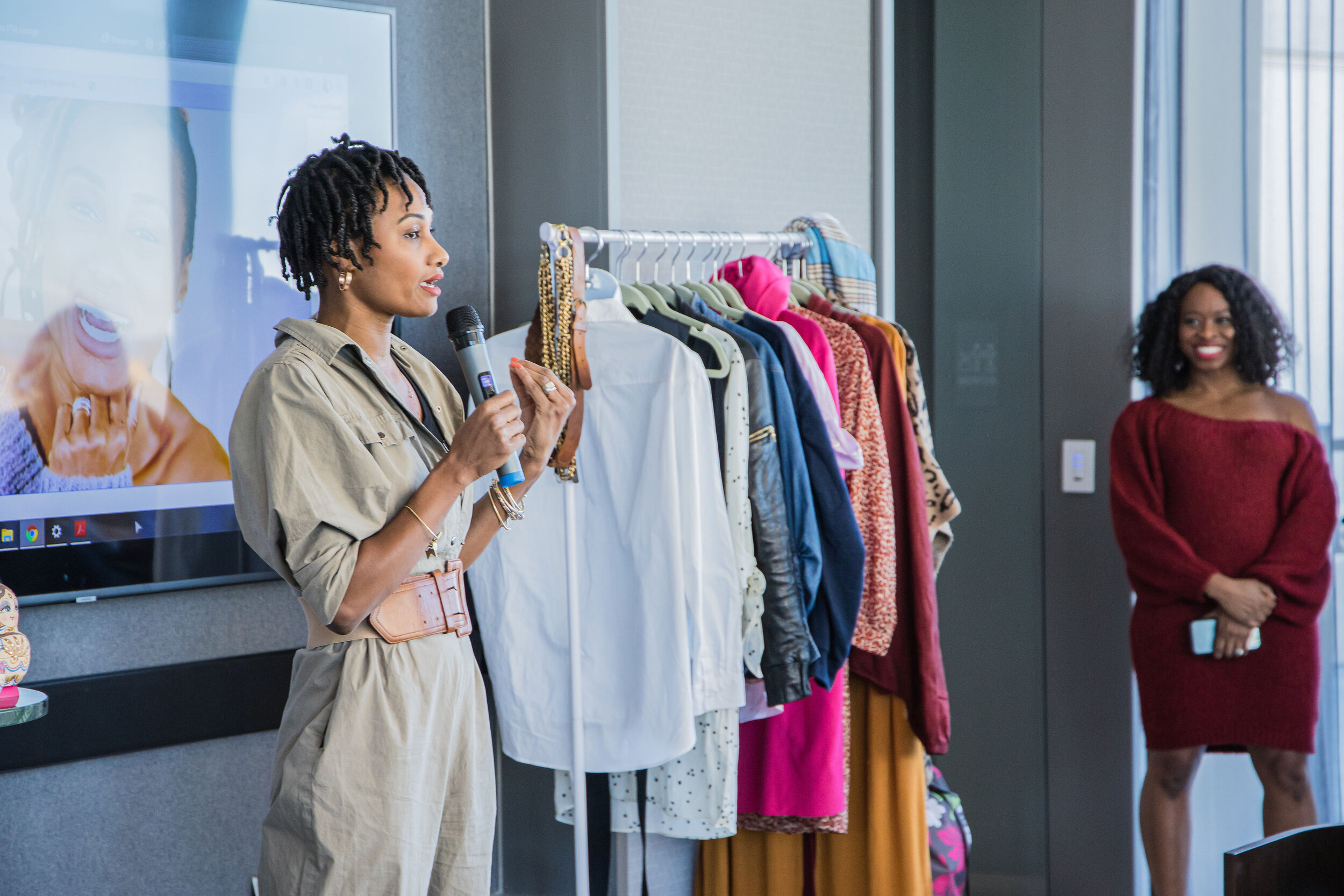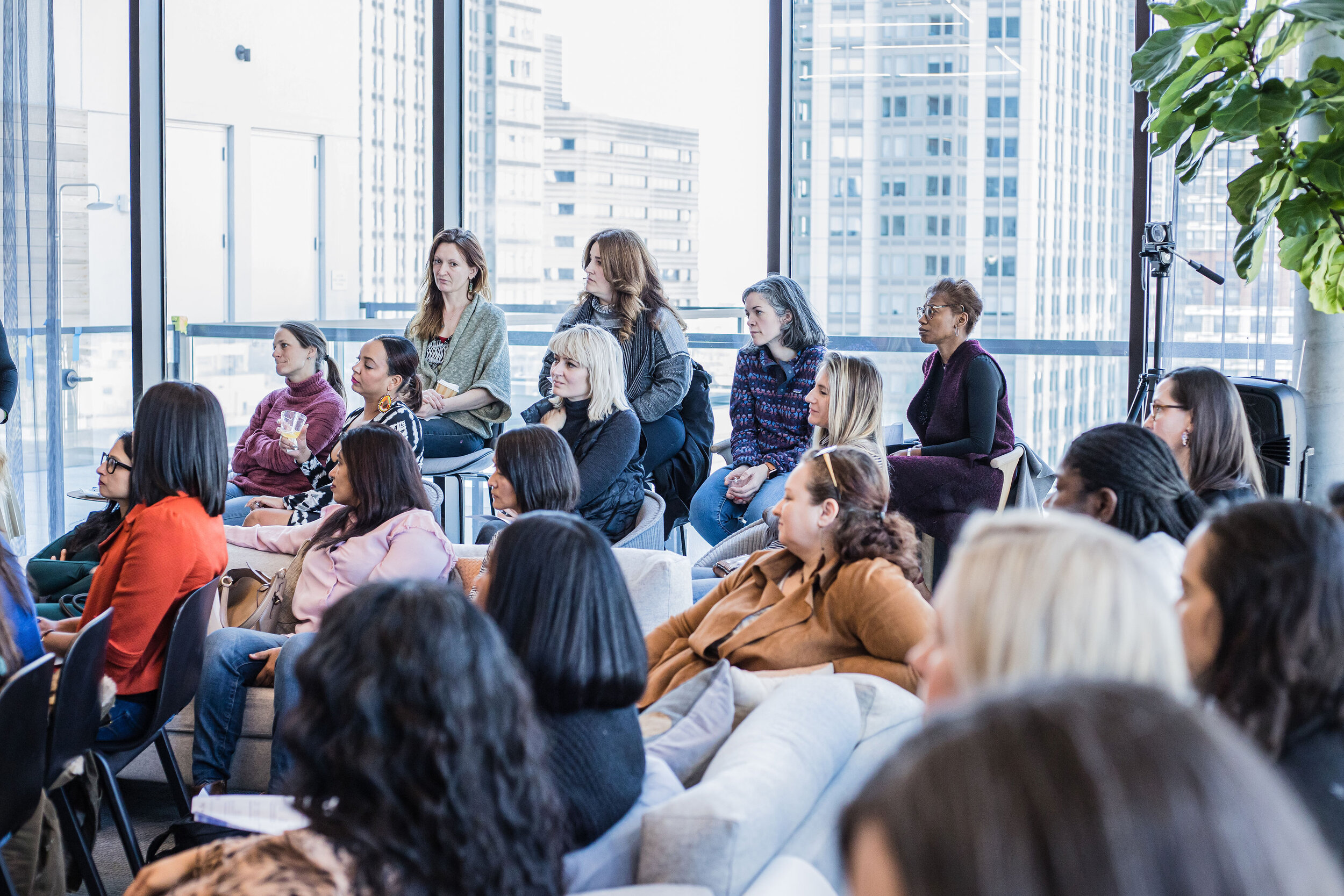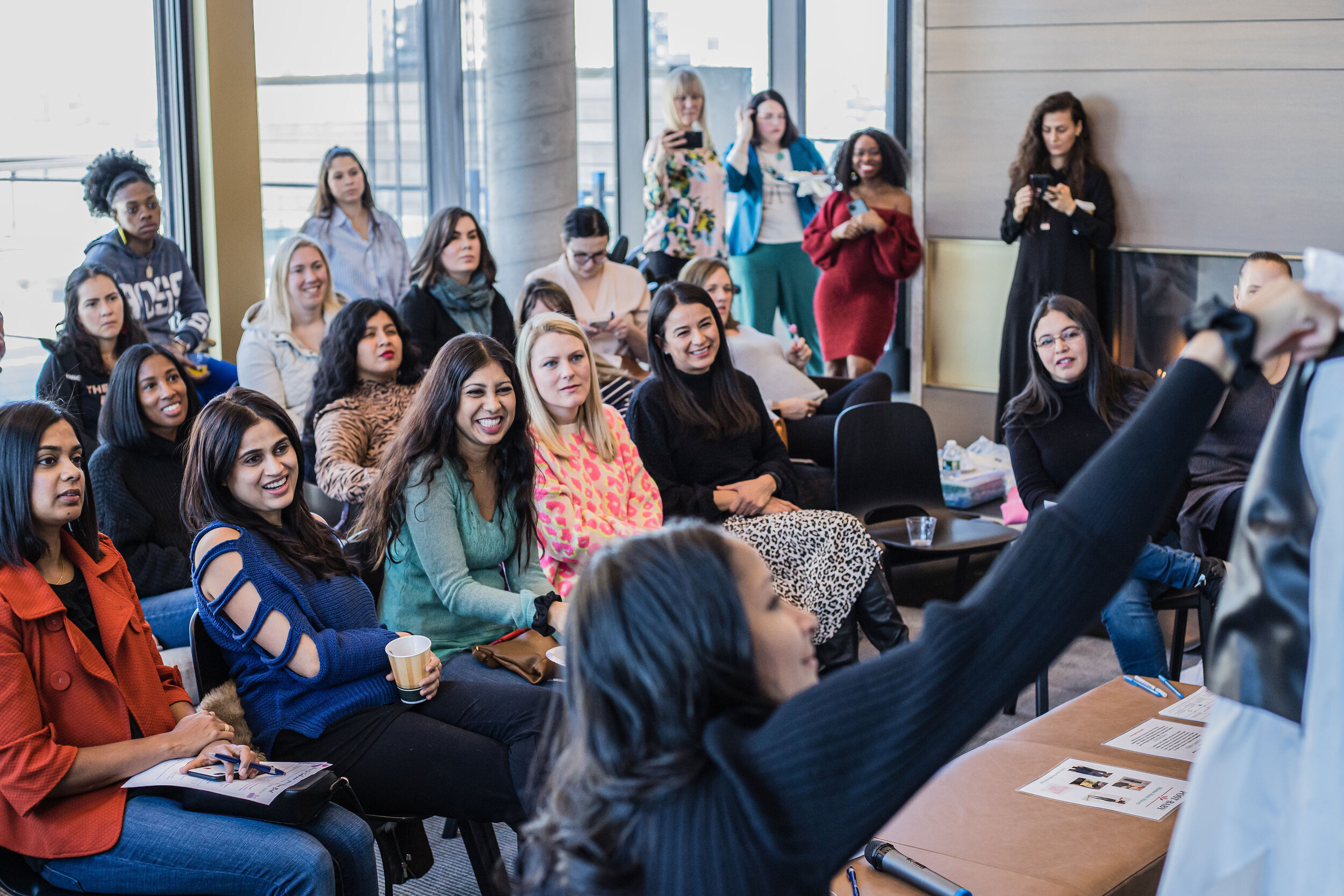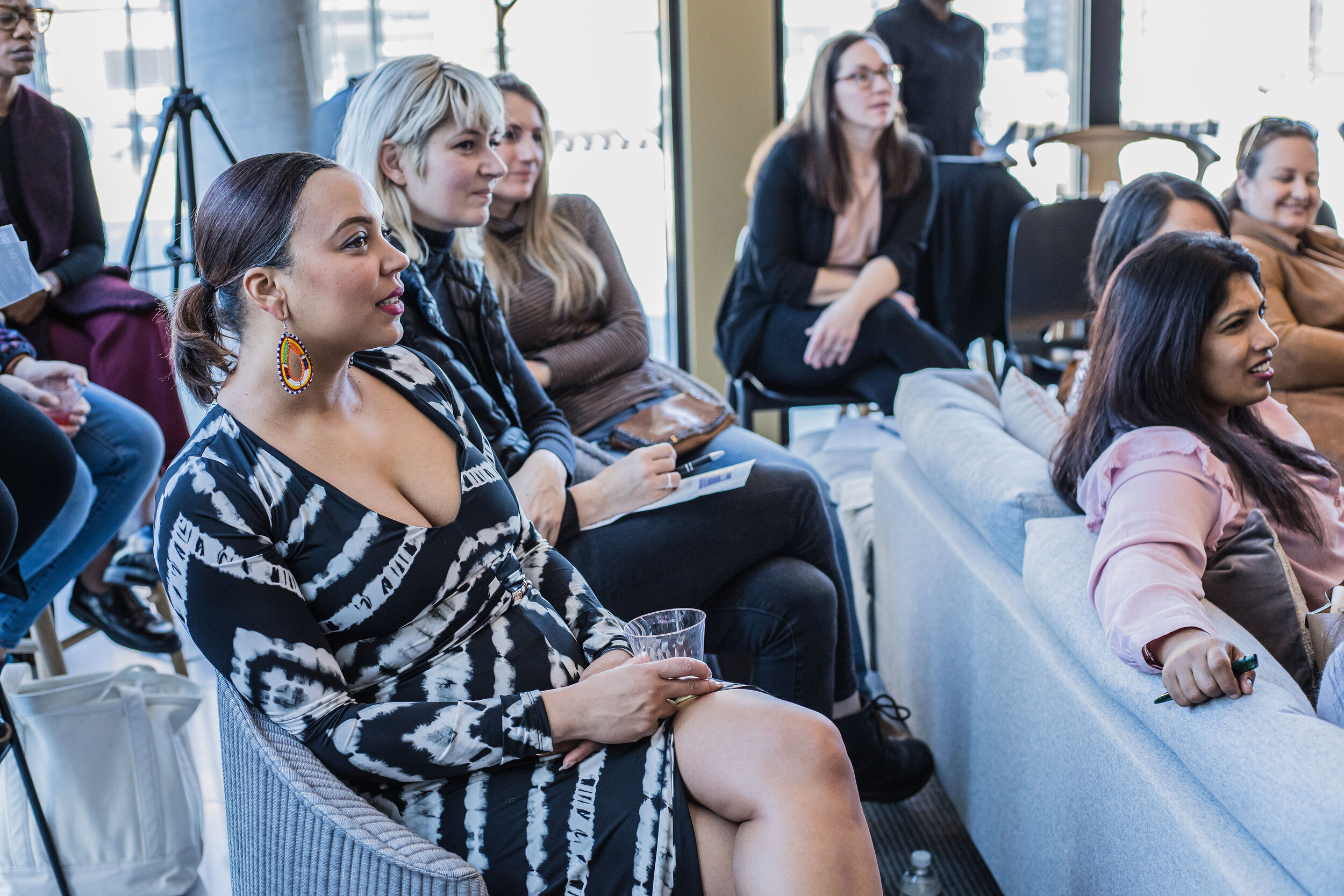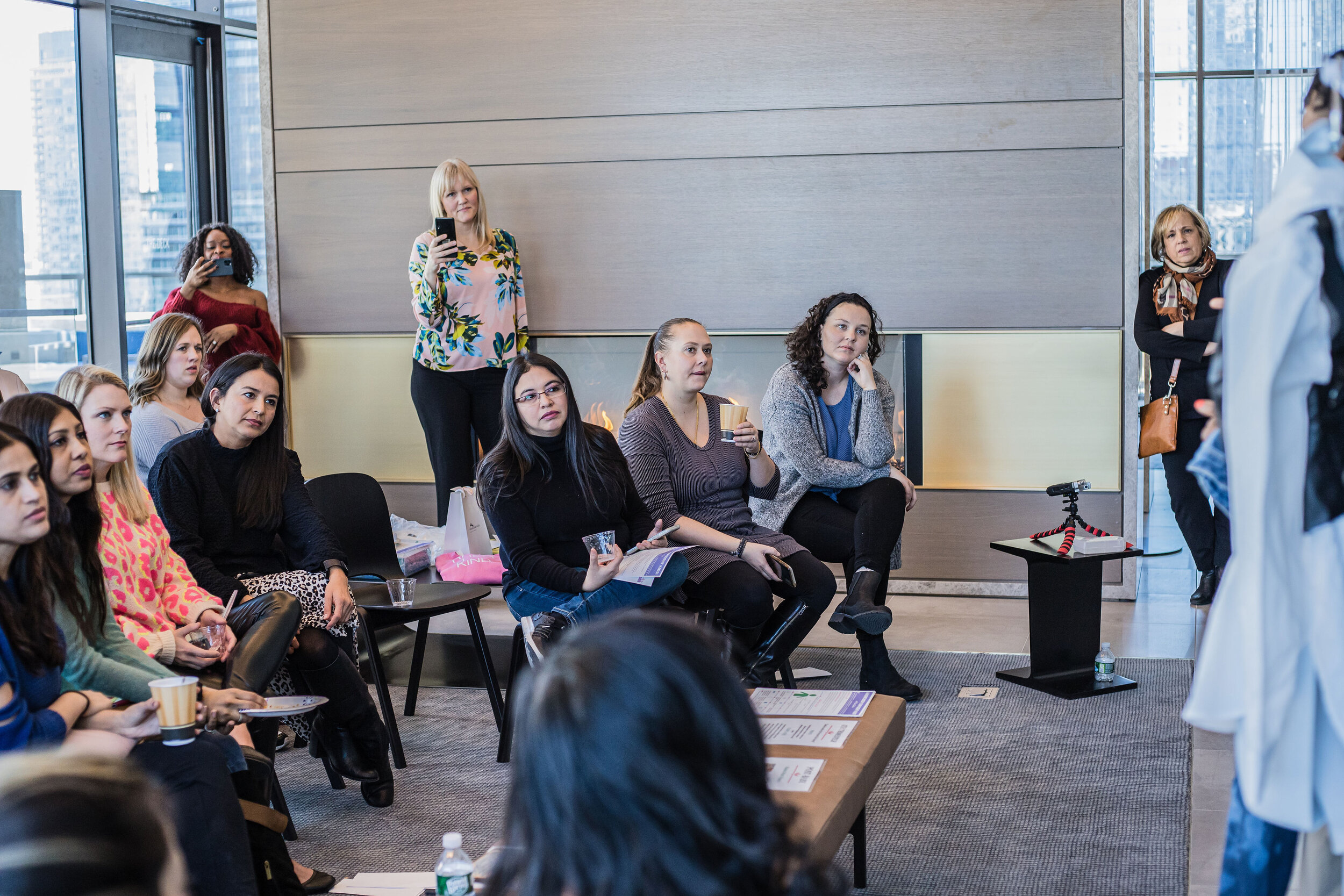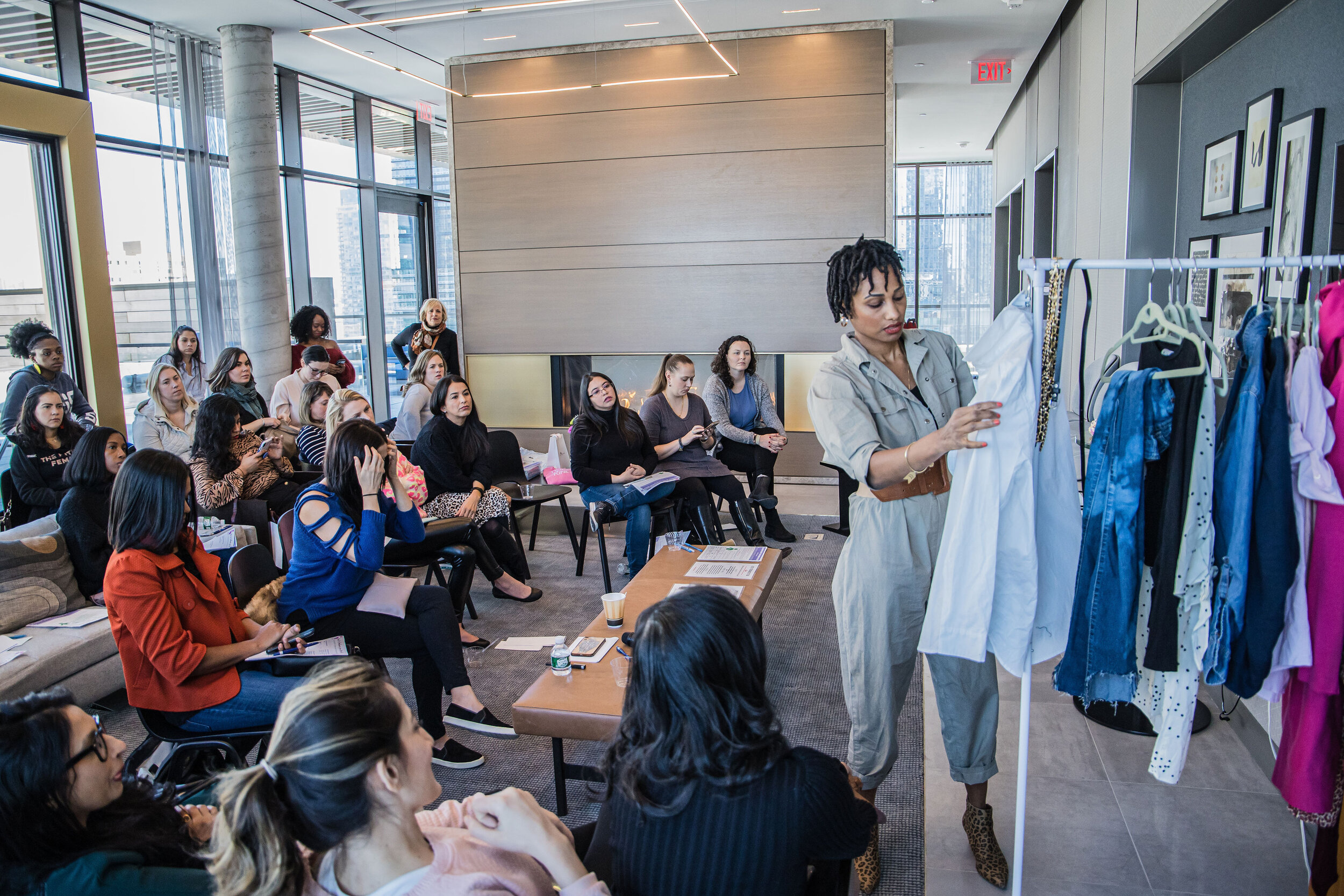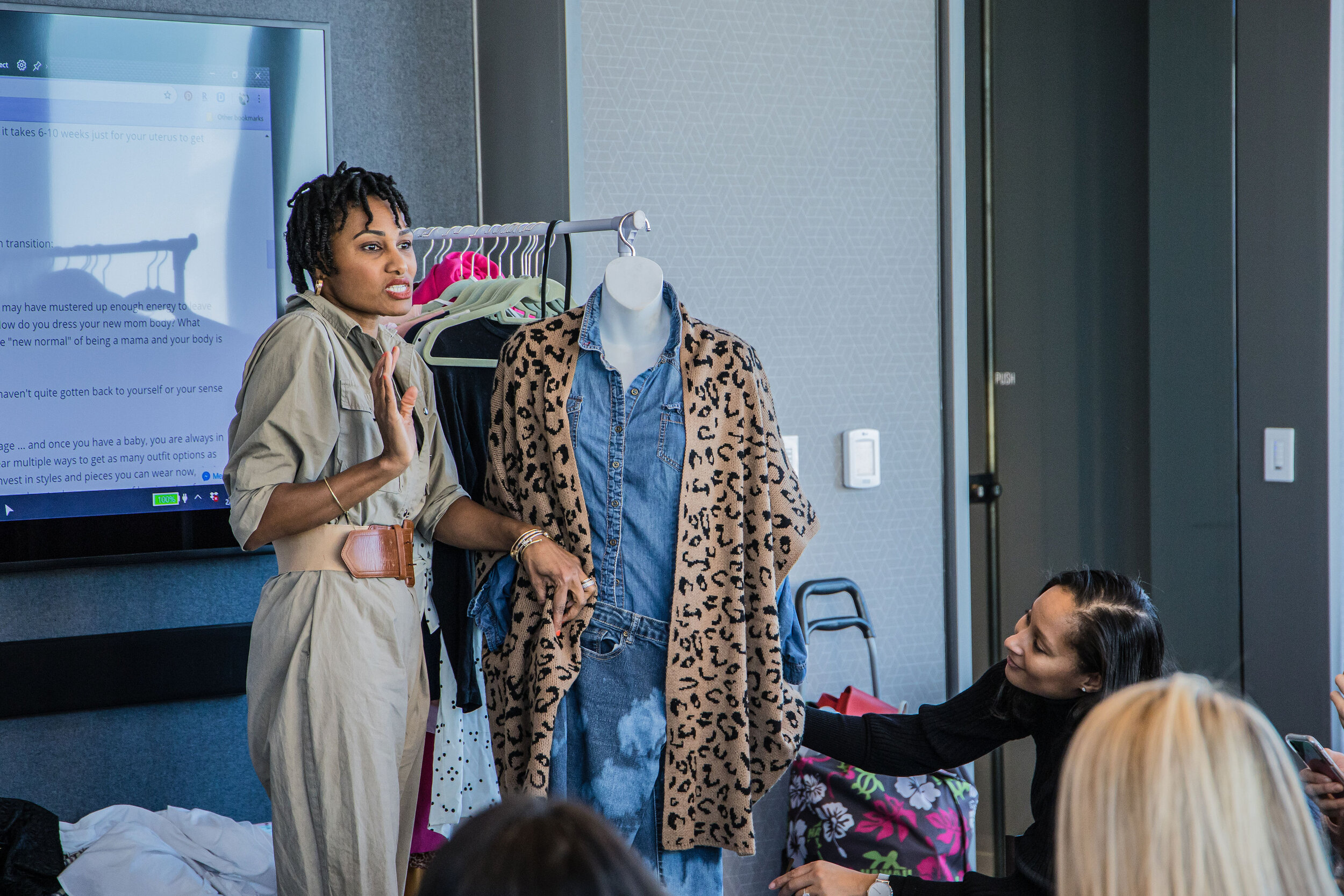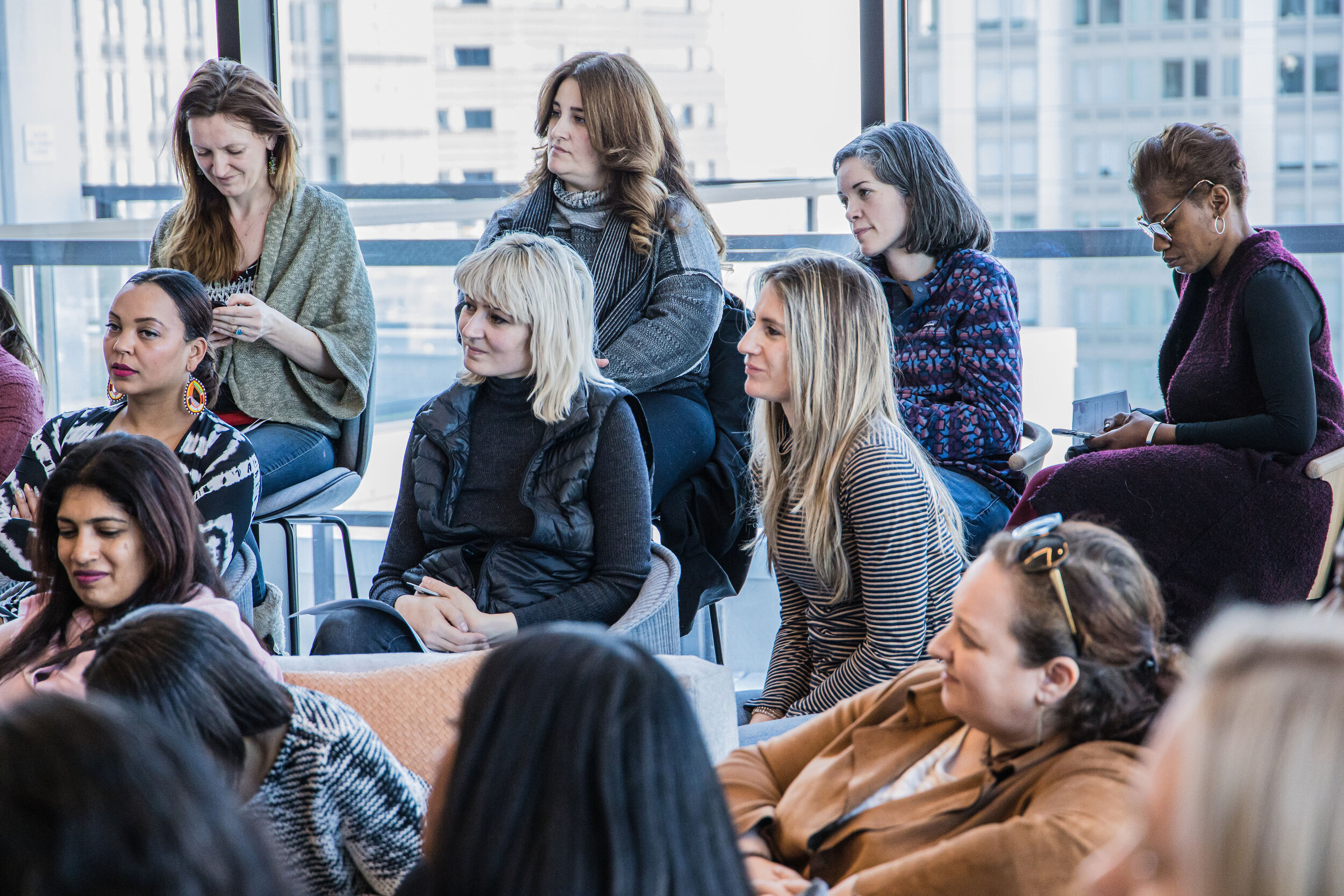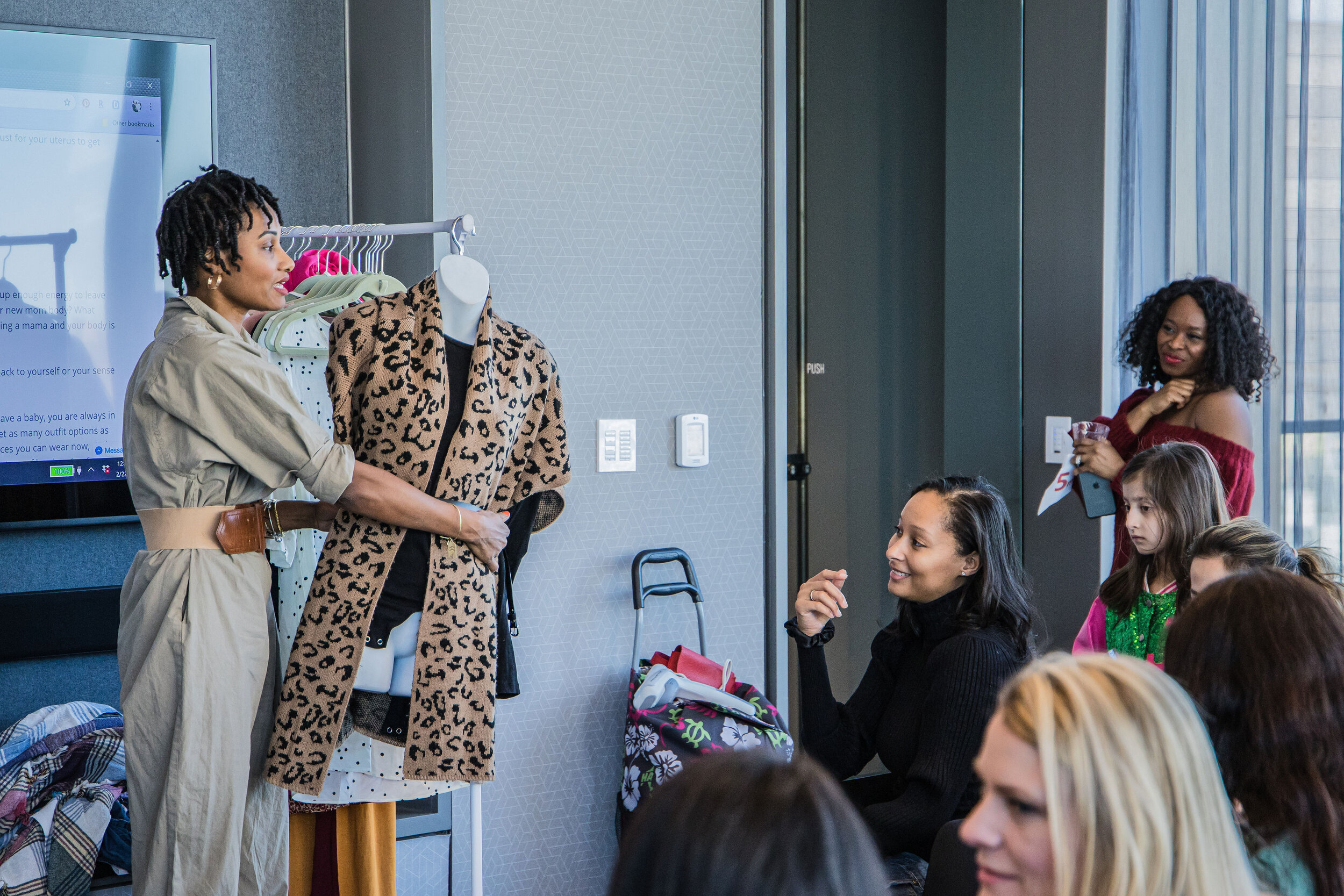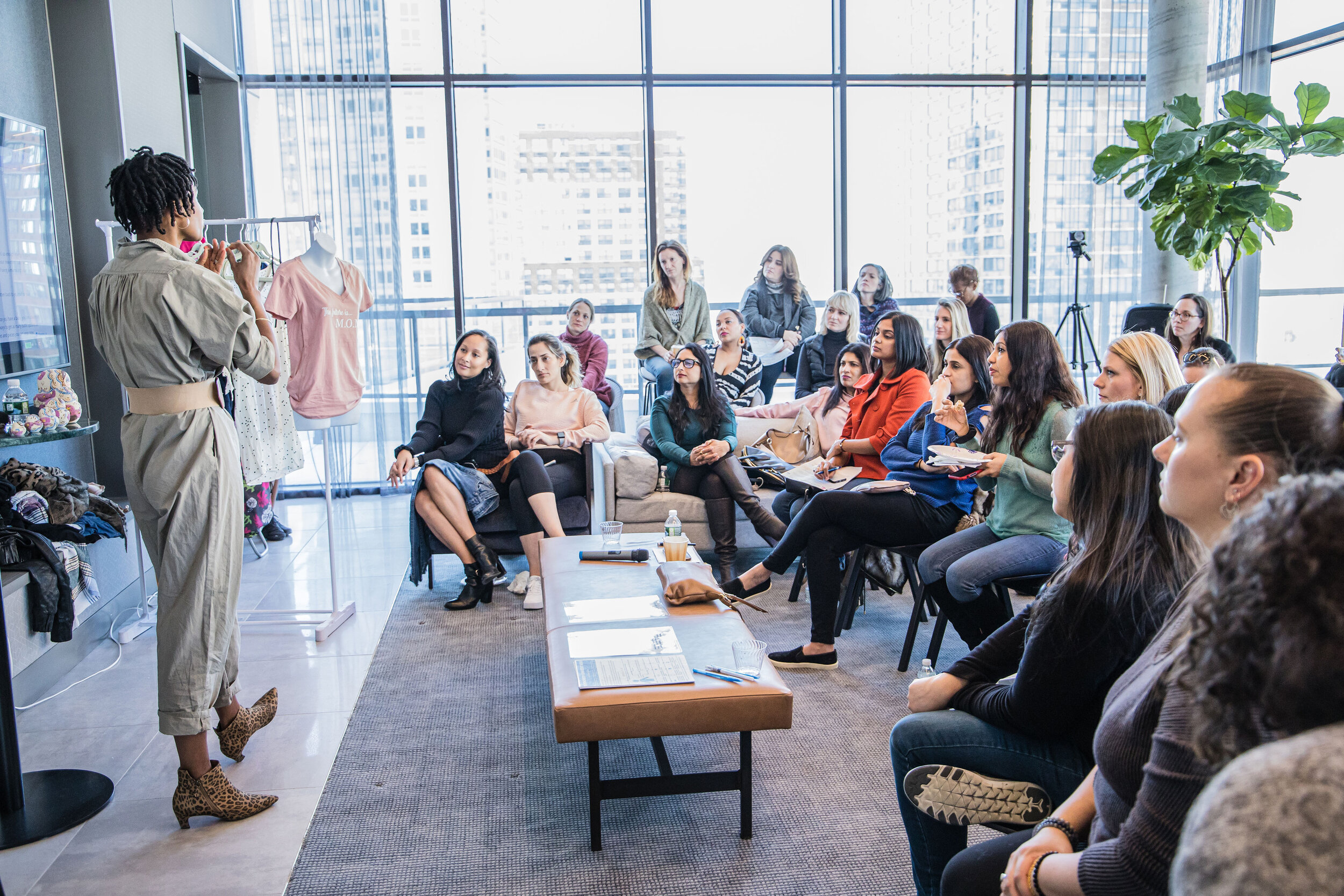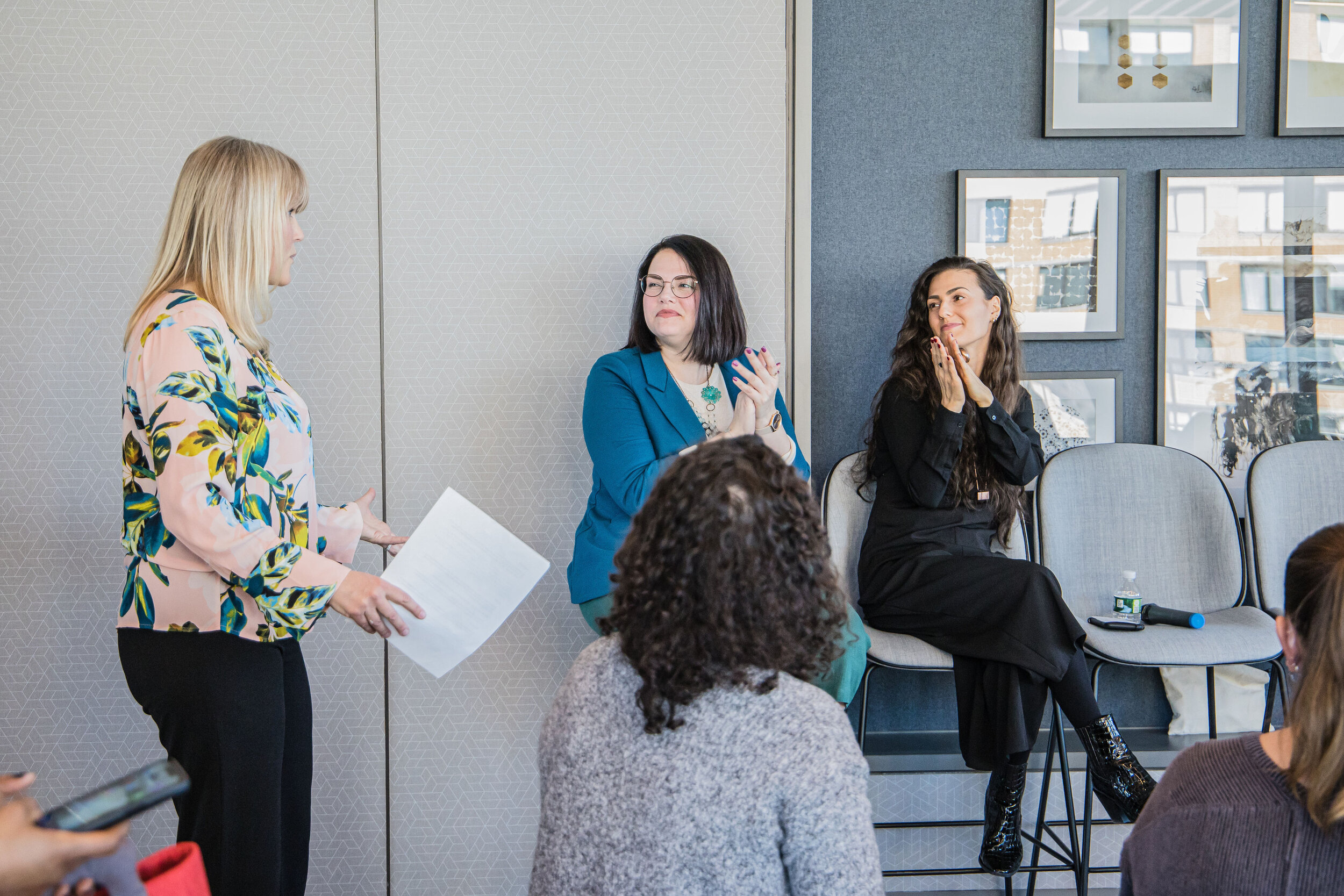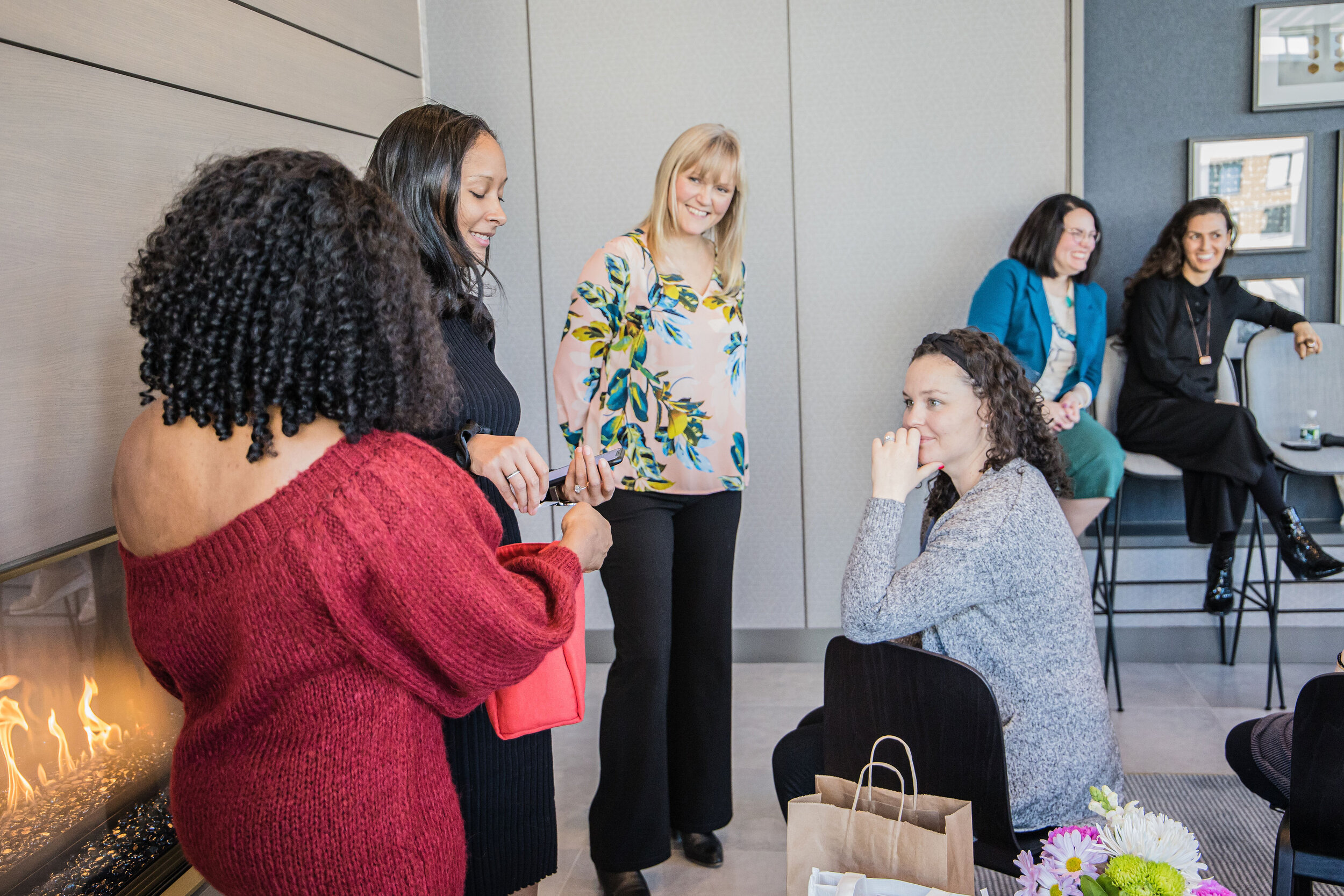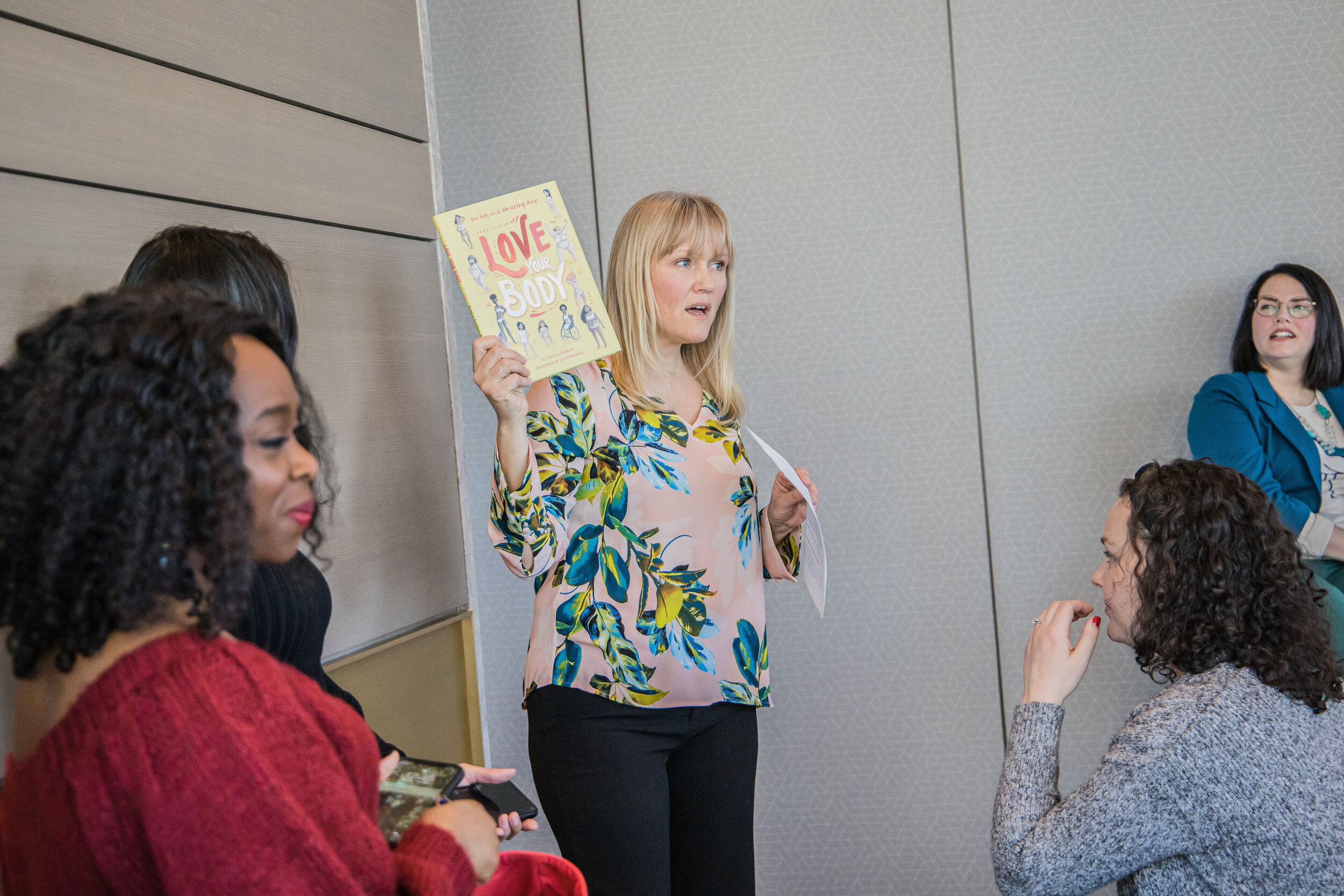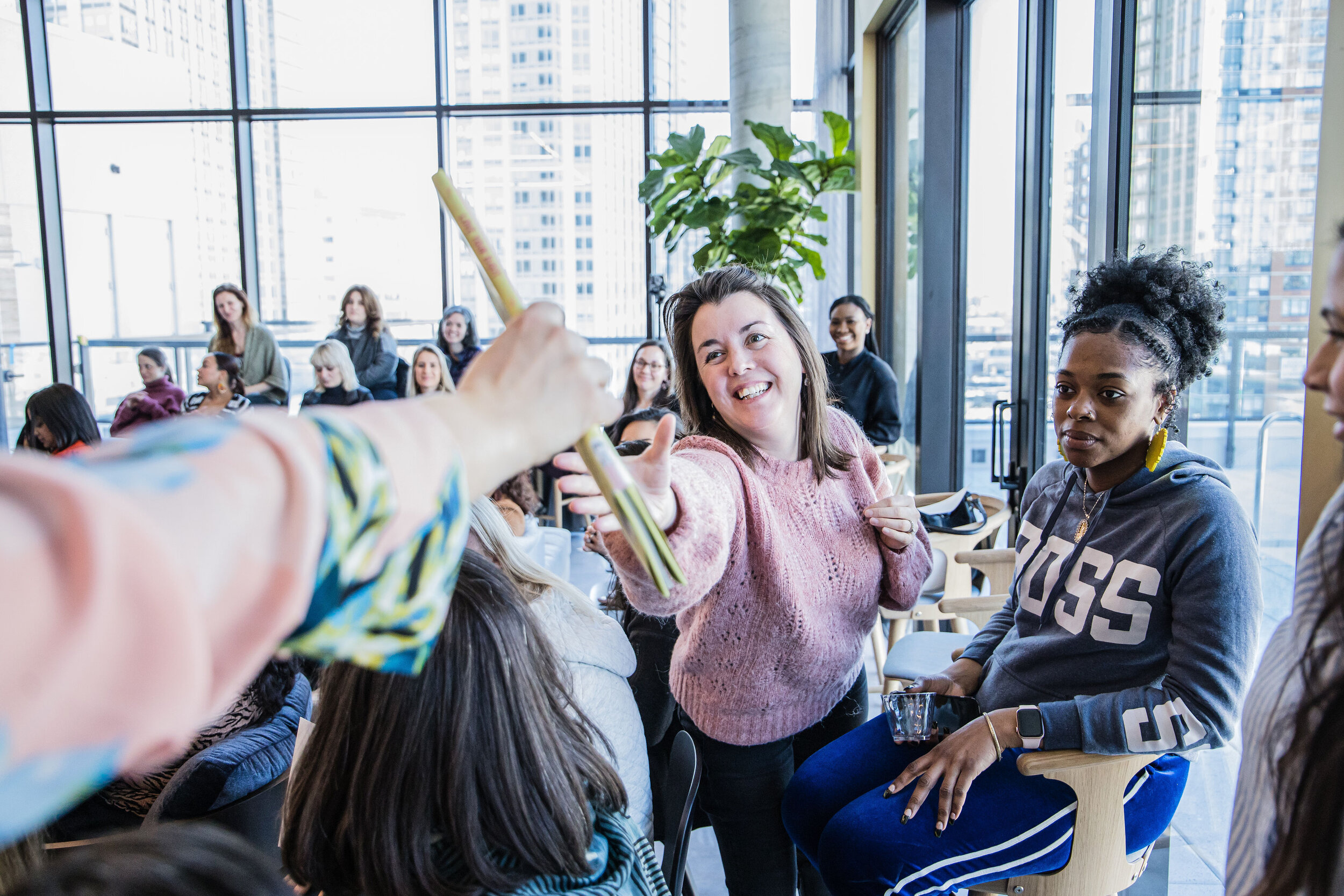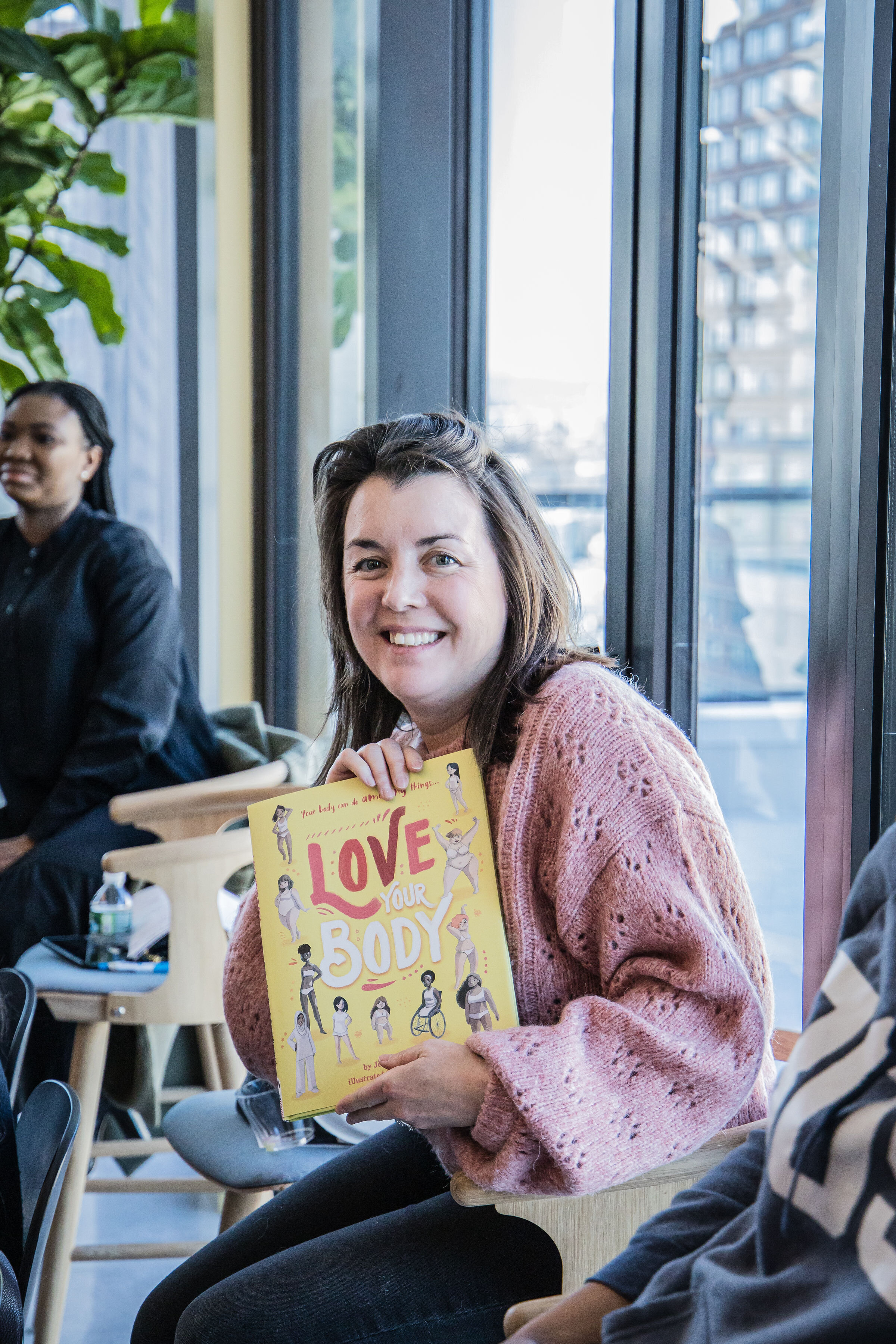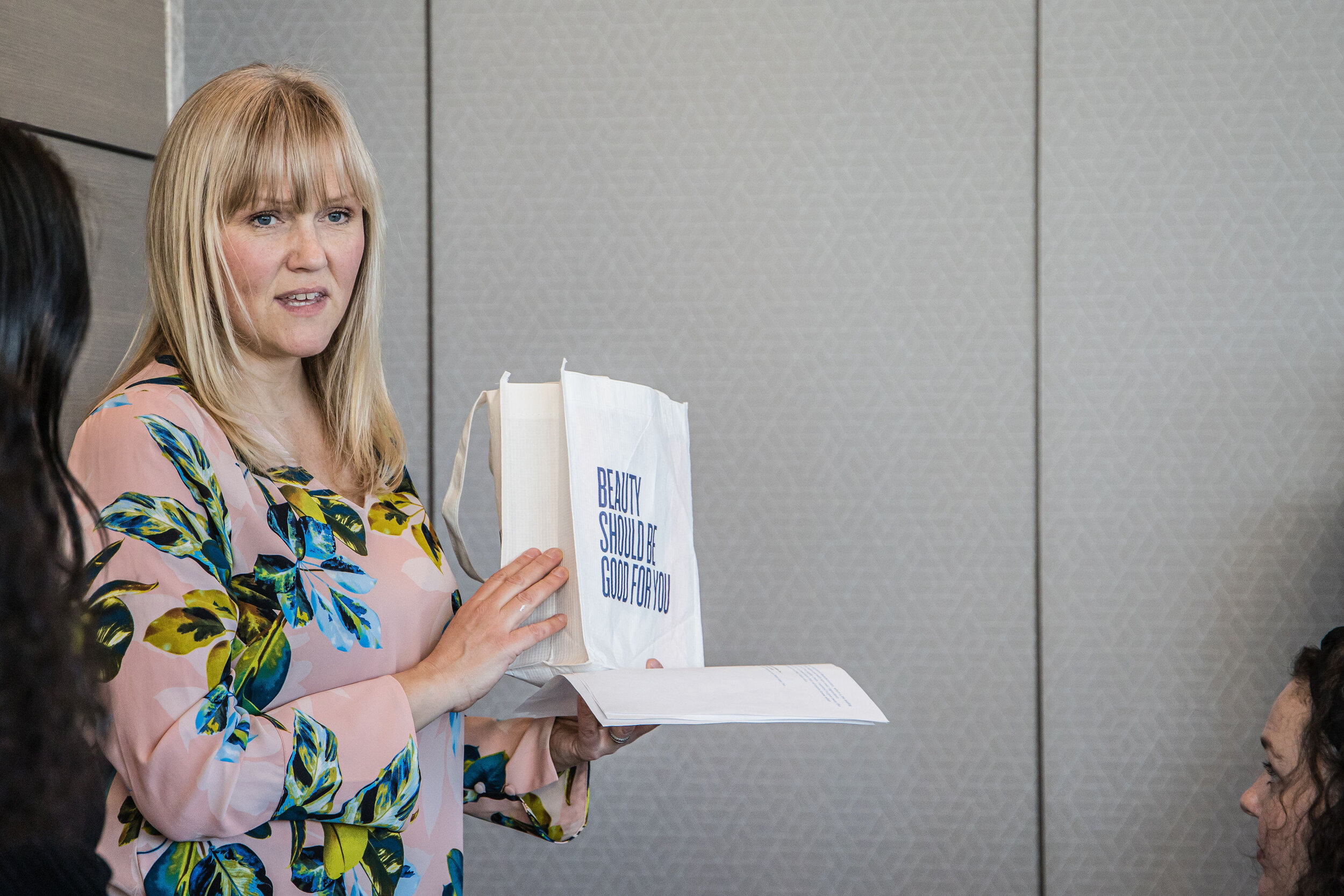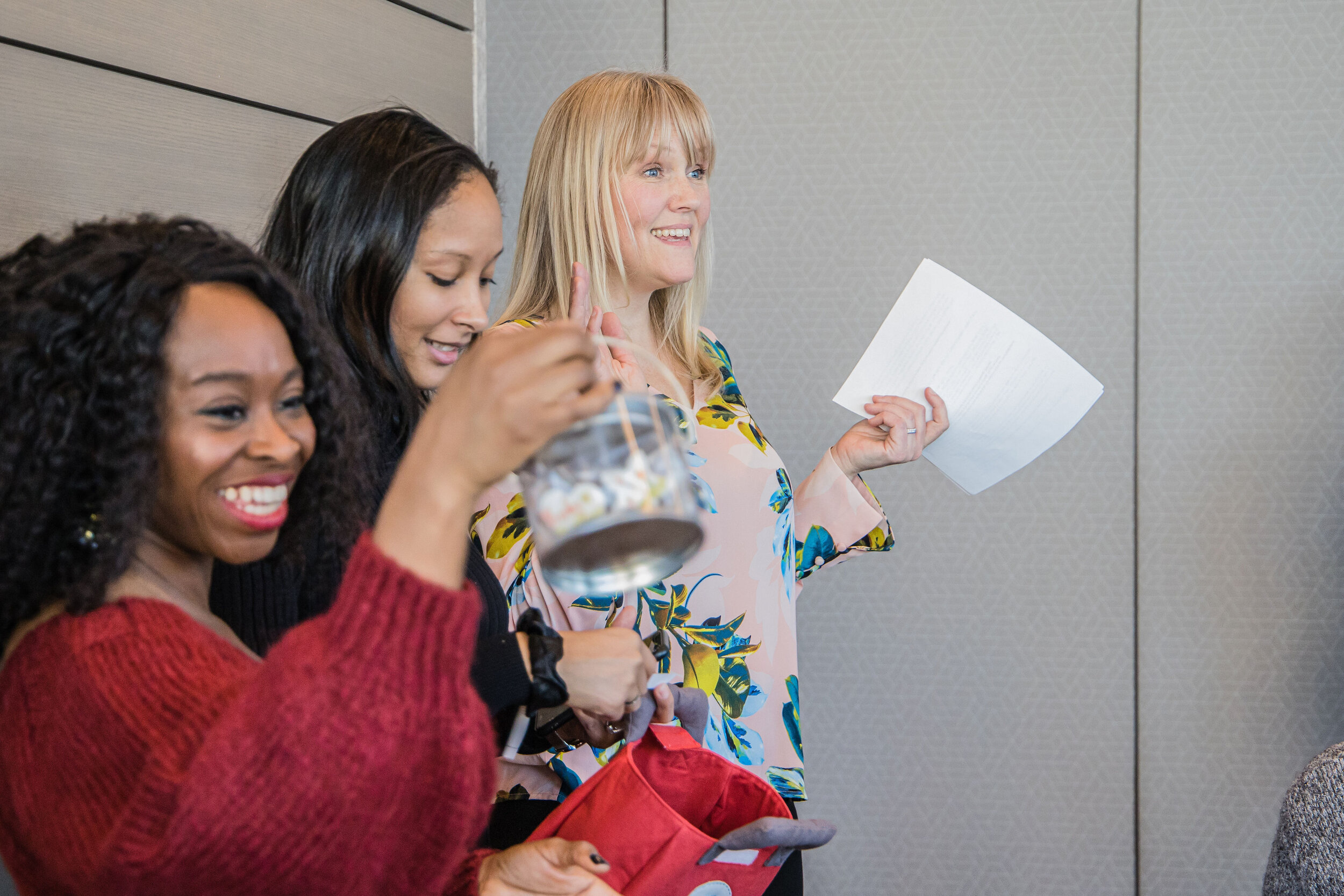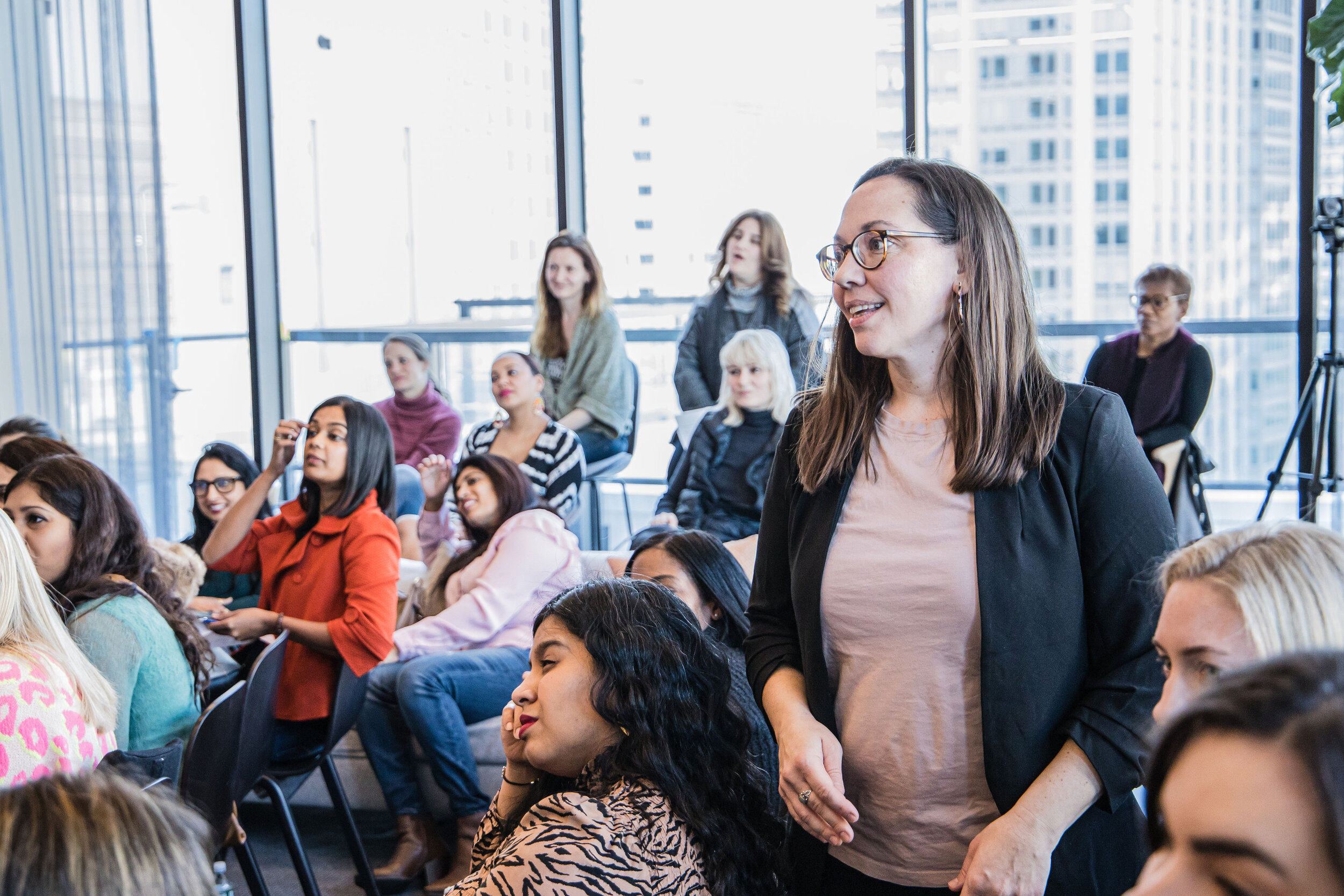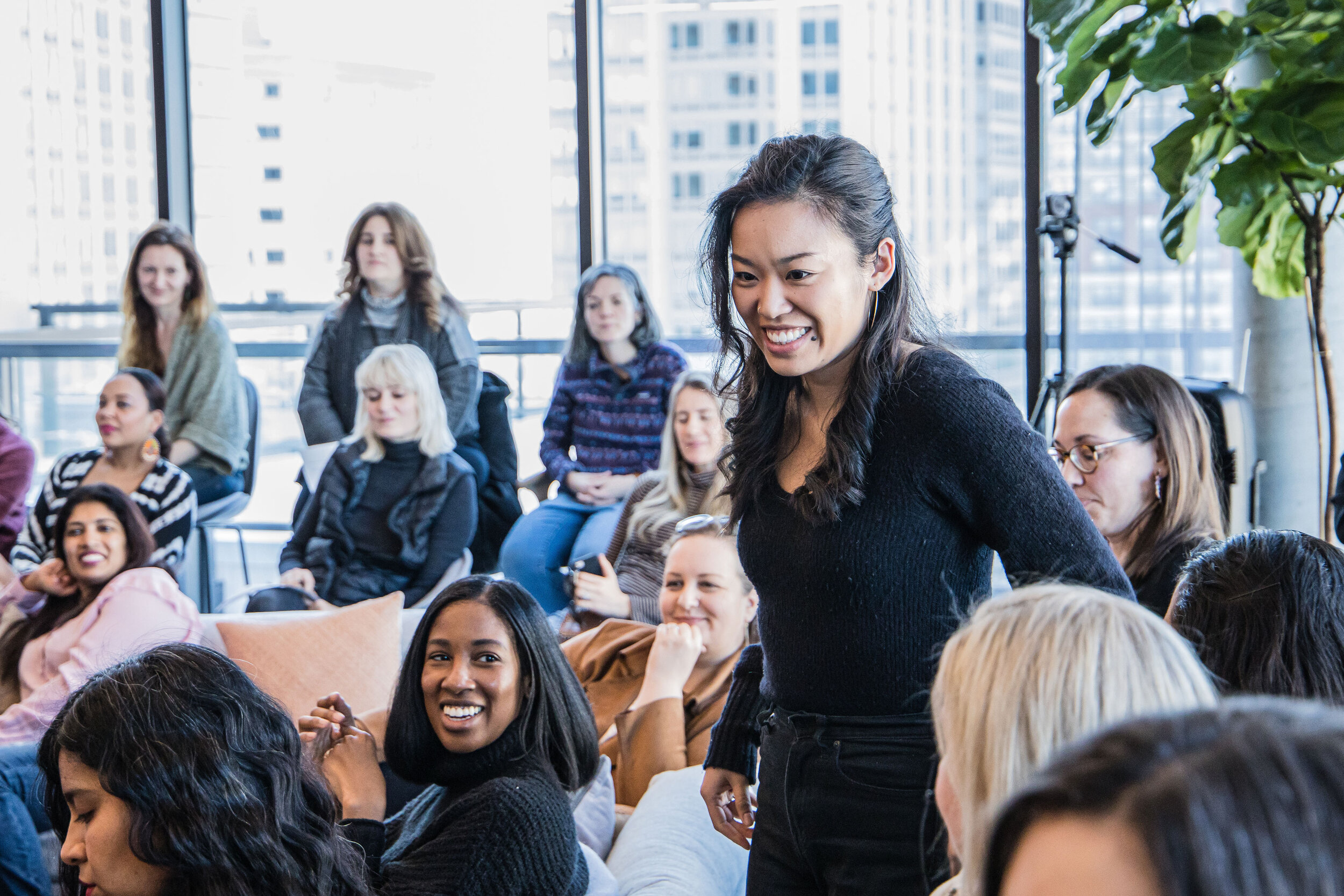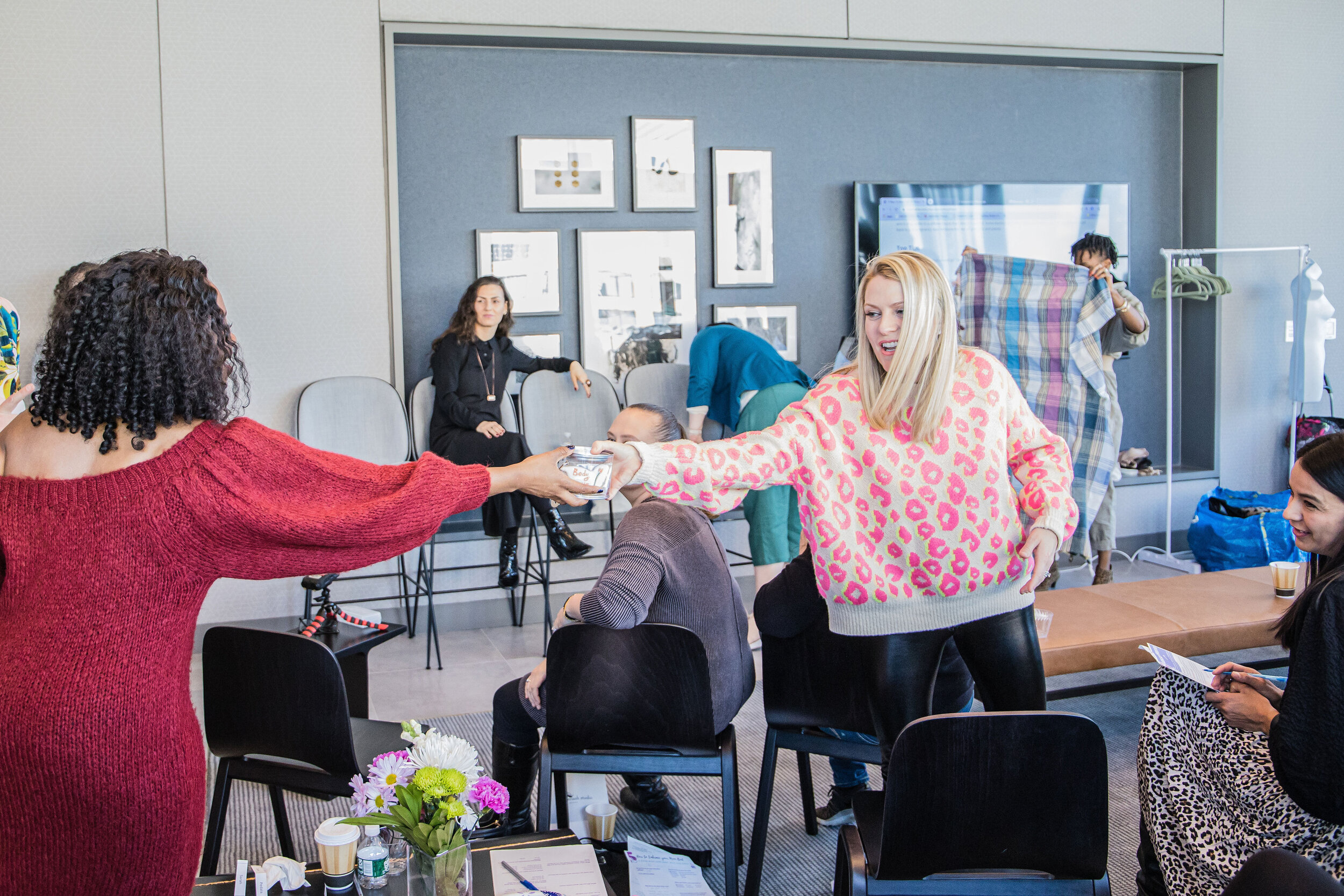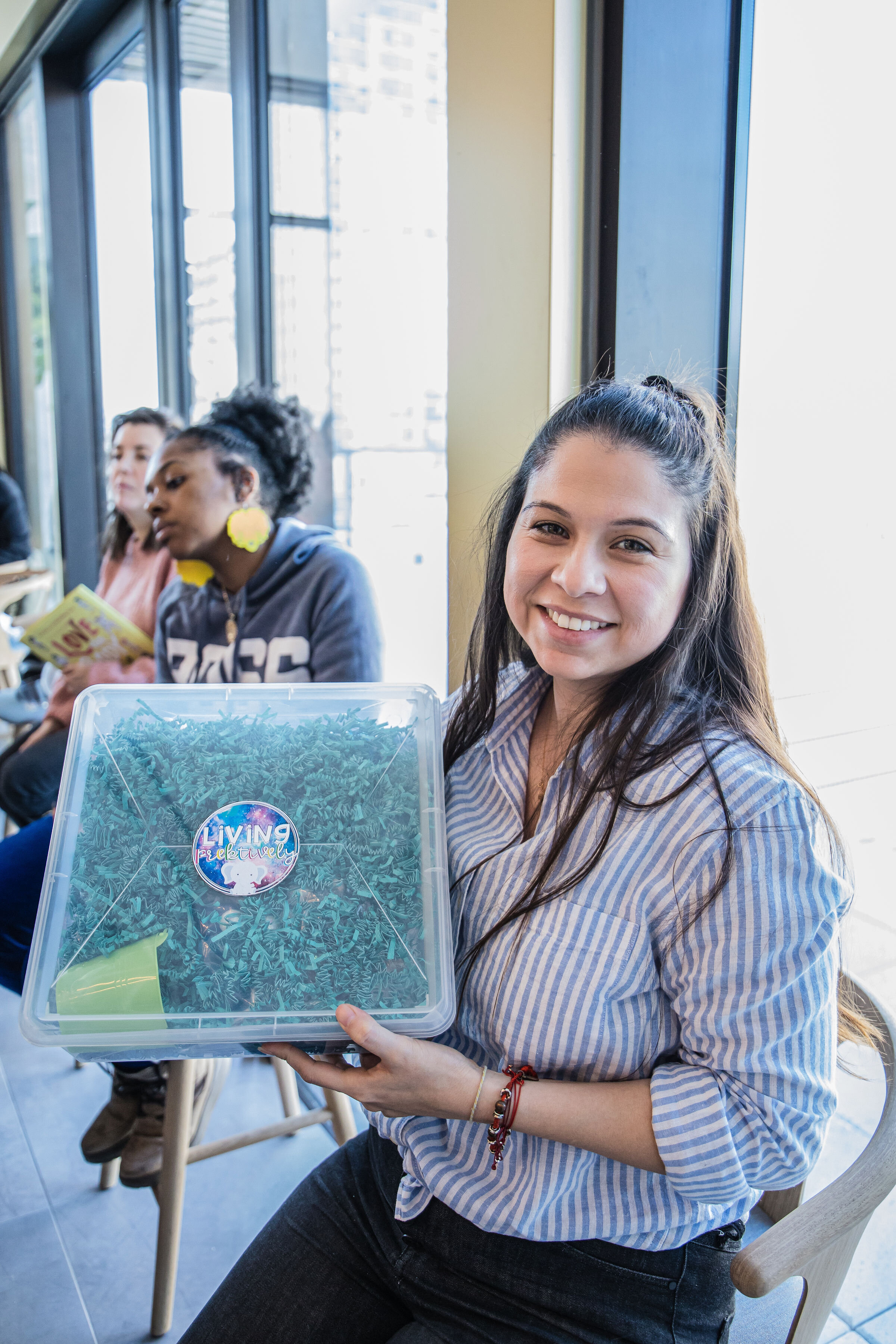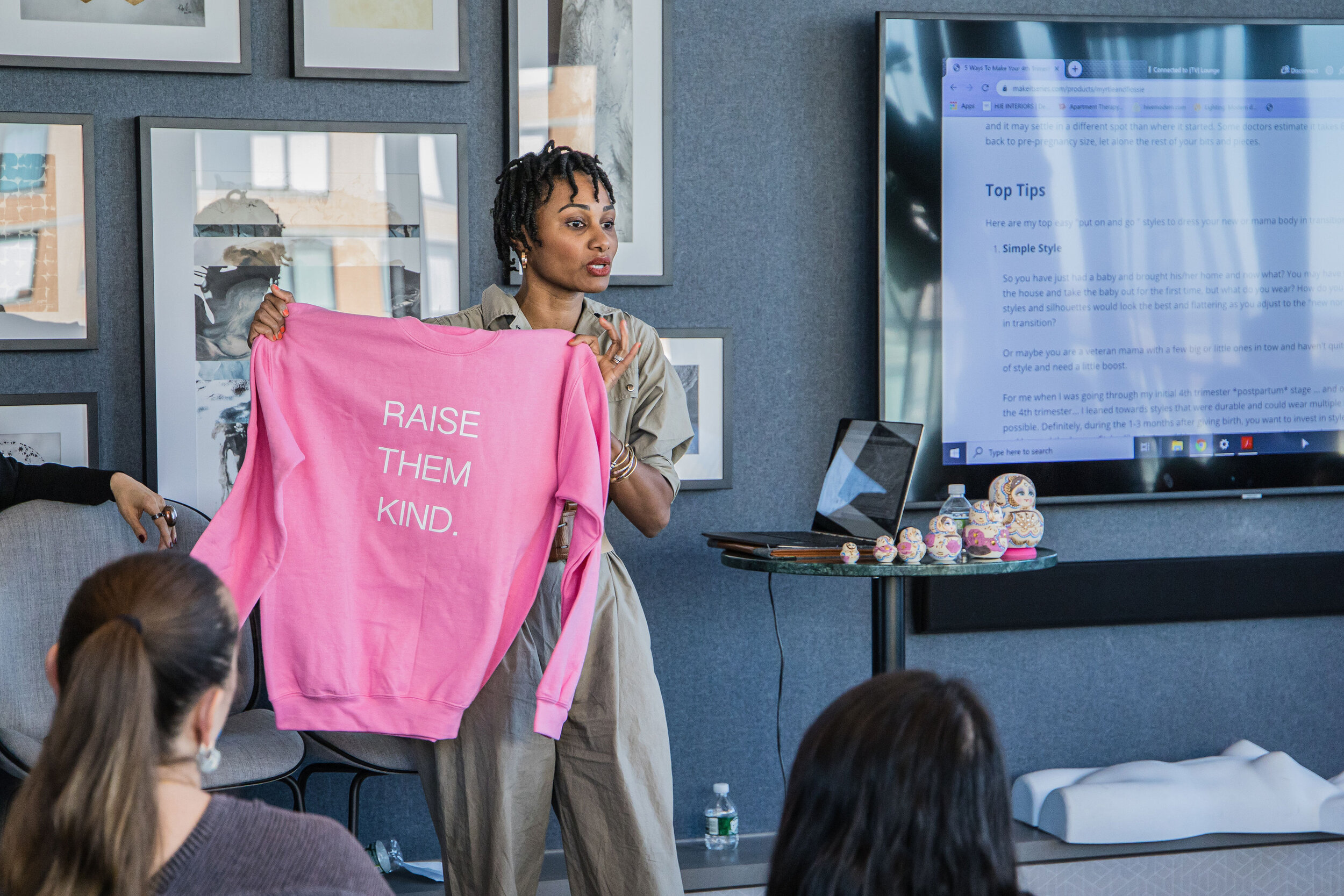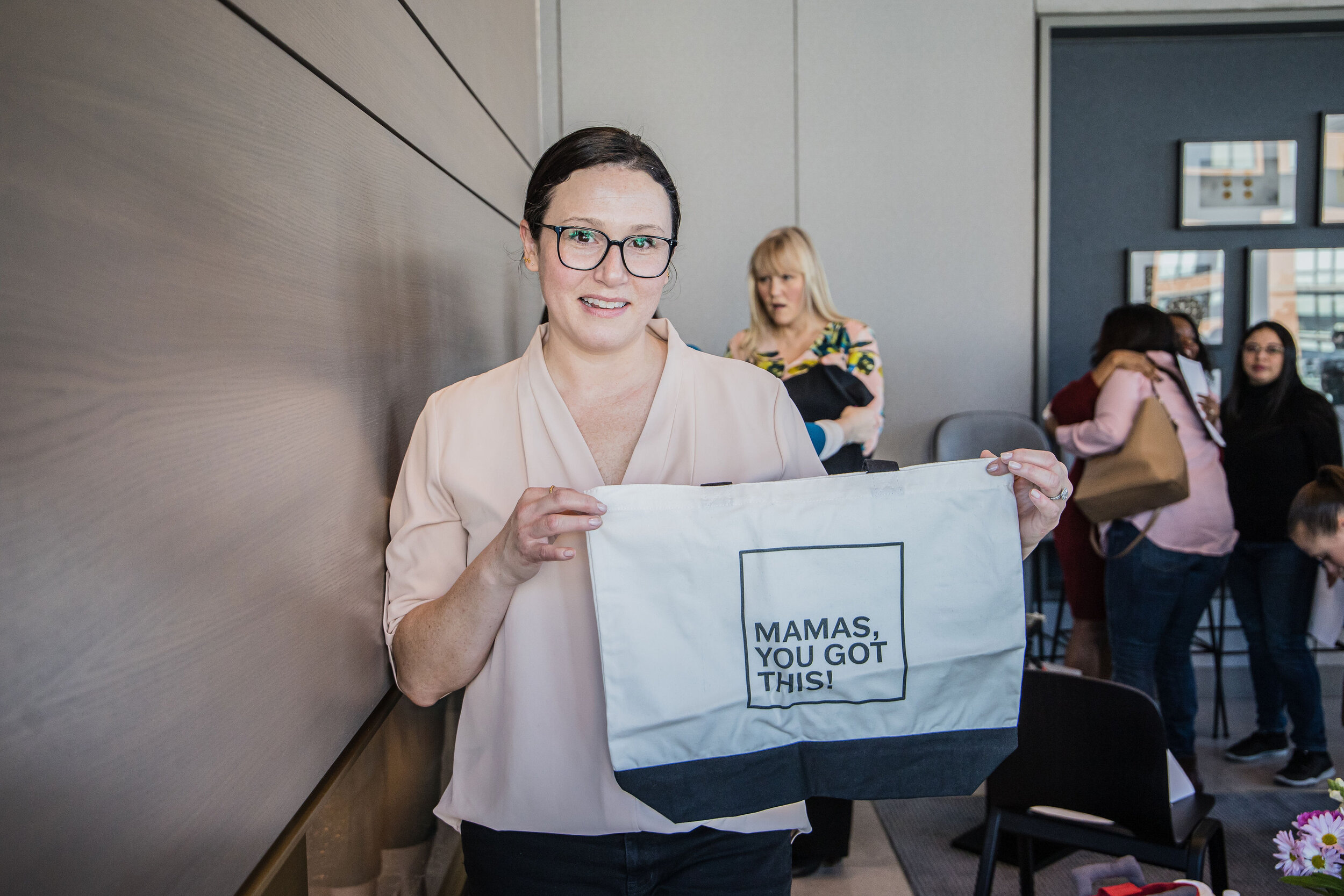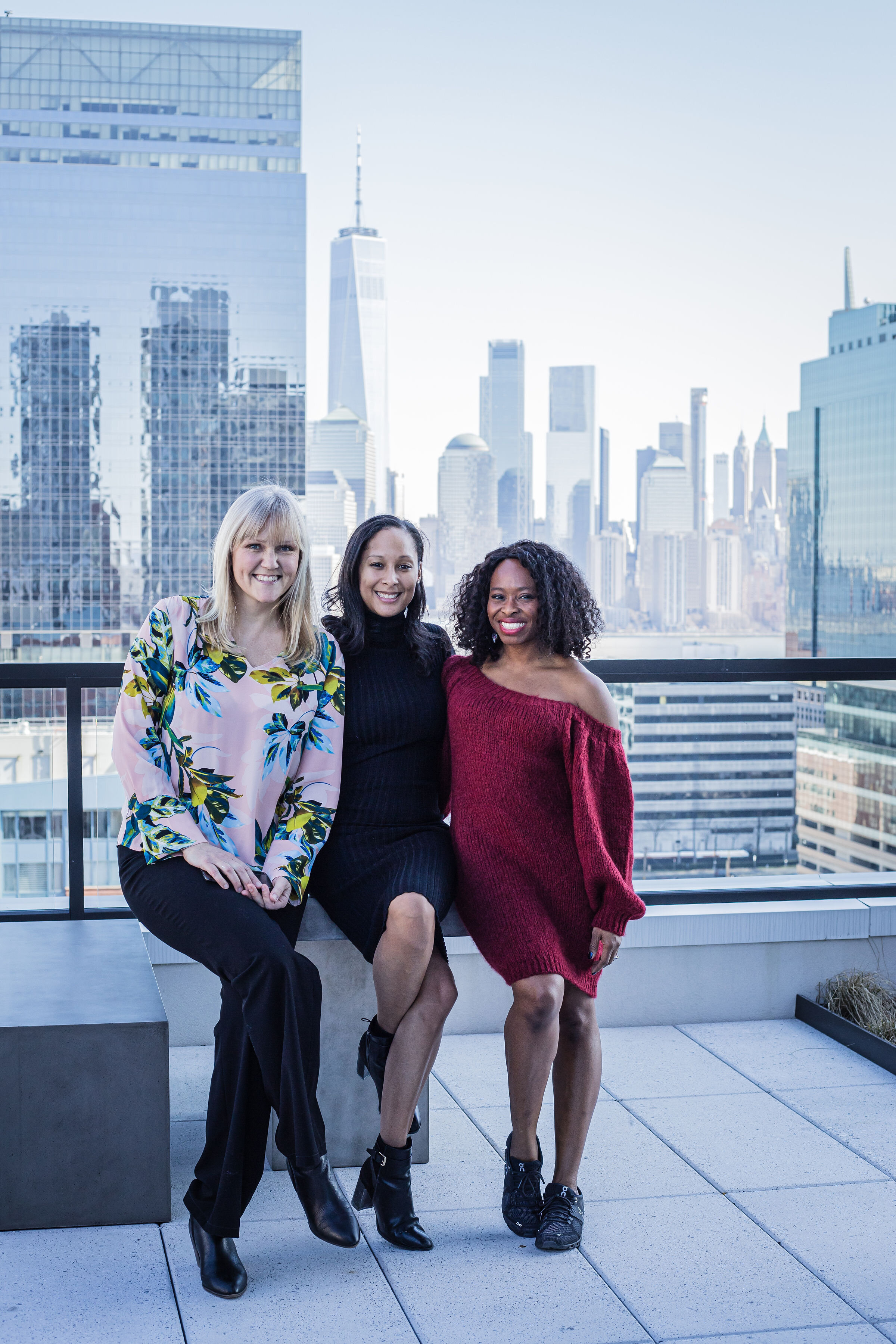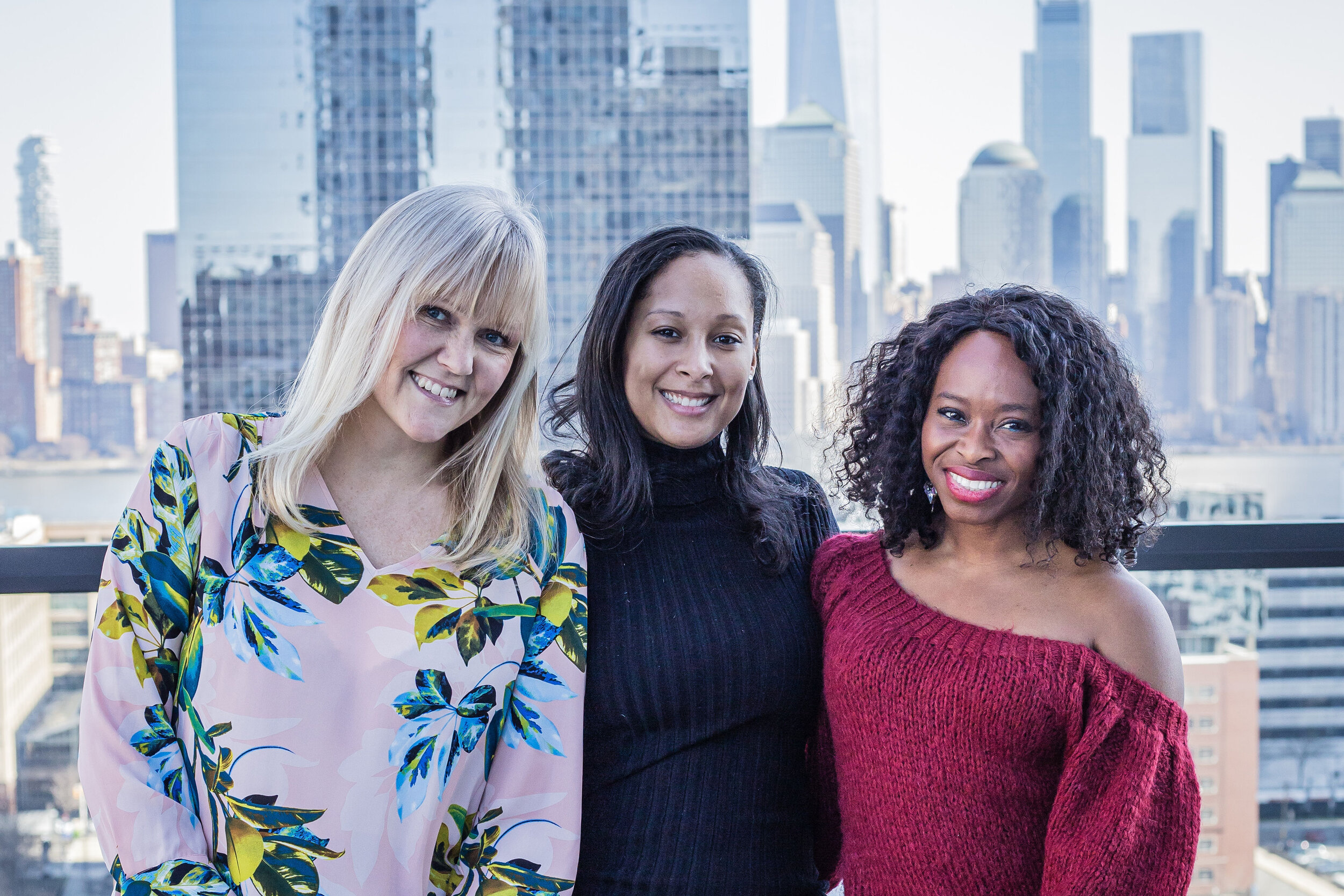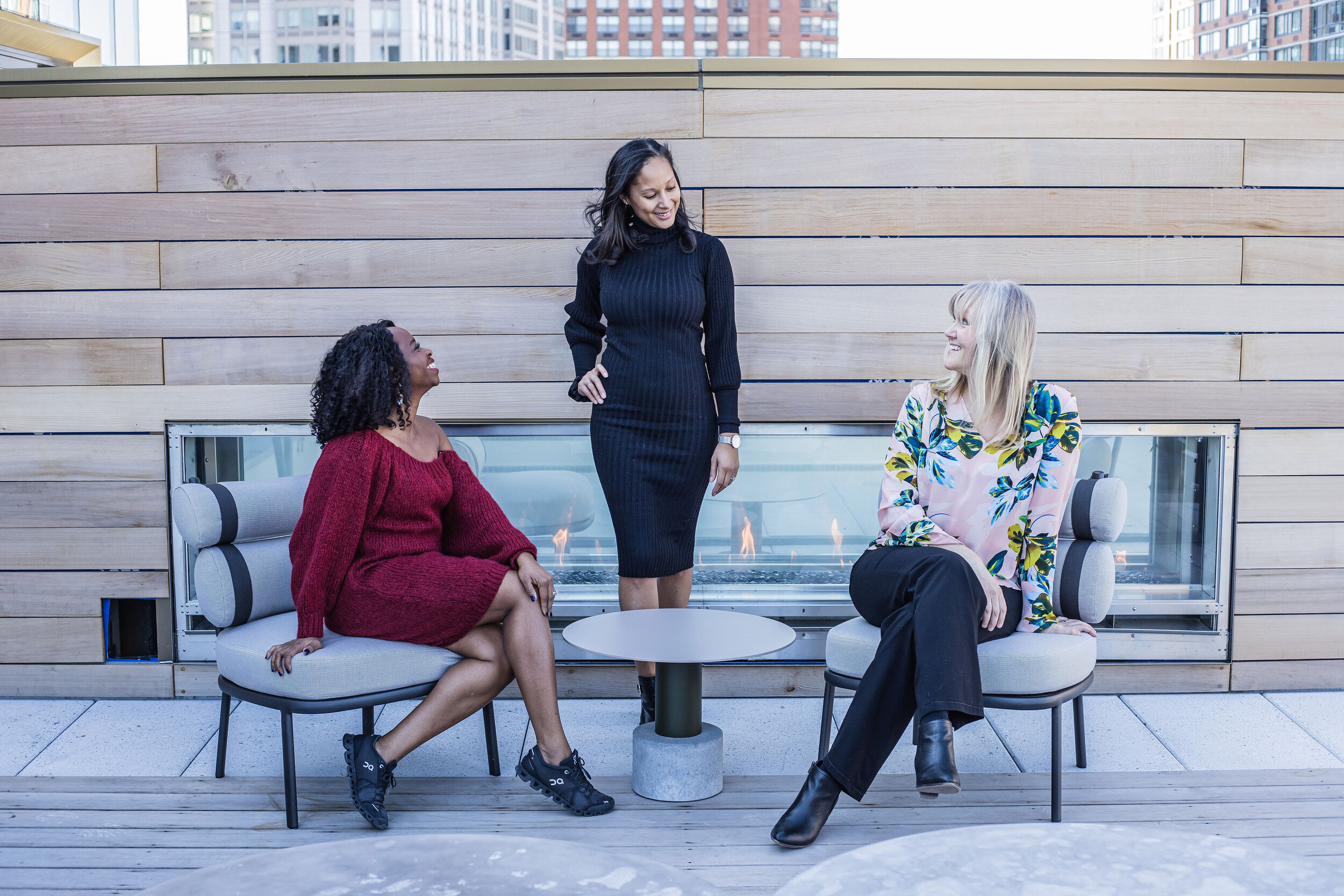Embrace Your Mom Bod and Raise Body-Confident Kids
“It’s your perception of your weight that dictates how you feel about yourself. Not your weight itself.”
-Isabel Foxen Duke
We live in a world that celebrates thin bodies while shaming people that are not. Health and wellbeing have taken a back seat to a diet culture that is toxic to everyone. Diet culture marginalizes the vast majority of American women as 67% of us are, in fact, a size 14 or above. Understanding how to develop a positive body image is essential for you and for all members of your family.”
So, together with our sister organization, Mamas, You Got This!, we set out to challenge the status quo.
On February 22, a gorgeous Saturday morning, dozens of moms converged on the beautiful rooftop lounge at The Lively in Jersey City to participate in our body acceptance workshop:
“How to embrace your Mom Bod and raise body-confident kids.”
“Let’s free ourselves from the comparison game and let’s all step into our own power”
Mia O’Malley
Our guest host Mia O’Malley, an influencer and advocate for plus-size mamas, set the stage with a beautiful introduction. She shared a painful memory from her wedding. She had worked so hard to slim down, but she still wasn’t happy. All she could think about was that she hadn’t done enough, that she should have lost more weight. Despite being the smallest size she had ever been, she wasn’t fully present on the most important day of her life.
Mia’s message to the audience was loud and clear: “We have to separate size from self-worth. Body goals are a constantly moving target, and you will feel like you never arrive at your goal. It is like setting yourself up for failure”. She continued – “There is no ideal mom bod; there is no ideal body. Stop feeling ashamed, and you will start treating yourself better. You simply cannot hate yourself into something you are going to love.”
Becoming a mother shifted things for Mia; her thought process changed. “My weight gain postpartum doesn’t make me feel like a failure any more. I’ve never felt more professionally fulfilled, never felt more loved, more secure, more connected to other people. These are now the real measures of my success; these are now my goals.”
As the measure of her worth changed, she found her voice and became an advocate for plus-size moms. “The inclusion of bodies like mine, in media and society at large, is critical to eliminating the fallacy of the ideal body - for us all. Bodies like mine are worthy of representation, and so are all of yours.
Mia’s final words were compelling: “Let’s free ourselves from the comparison game, and let’s all step into our own power.”
Be inspired by Mia O’Malley @miaomalley and @plussizebabywearing on Instagram and Facebook.
Segment 1: Embracing your Mom Bod
“You’re not going to love your body all the time. The goal is to get to a place of neutrality, respect, appreciation, and compassion.”
Stephanie Roman
Stephanie Roman, Body Acceptance Coach, and Certified Health Coach led the first set of the workshop. Stephanie, a self-proclaimed dieter since the age of 11, knows the importance of combating poor body image first hand.
“It was always a goal of mine to be a certain size, to shrink myself, to pursue weight loss at any cost. After 25 years, I finally learned a different way to live. Through appreciation, acceptance, and respect, I learned how body diversity is a real thing - just as we’re not the same height, have the same hair color etc., we don’t all have the same body size. We all look different. That was transformational.”
Stephanie’s mission today is to help and support other women to accept themselves and live their lives fully, precisely how they are right now.
What contributes to our body image?
According to Stephanie, the following factors shape the way we view our bodies.
1. Early programming: Parents and caregivers who tell us, or model for us, how we should feel about our bodies.
2. Media and culture: The unrealistic beauty ideals that place value only on physical traits, especially for women telling them that the most important thing they can offer to the world is their appearance.
All of the above gets assimilated into our own belief system and contributes to our perception of ourselves and others. The good news is that as adults we can reject and deprogram these beliefs.
Stephanie also explained that numerous triggers can cause poor body image, including:
- pregnancy/postpartum
- getting married
- getting divorced
- chronic Illness causing weight loss or weight gain
- abuse or bullying
Negative body image can have devastating effects such as:
- low self-esteem
- social anxiety
- lack of self-worth
- self-consciousness in intimate relationships.
Negative body image may also lead to more severe issues such as:
- depression
- eating disorders
- obsessive exercise.
What is body acceptance?
“To accept is to acknowledge that our life/bodies etc. will not always act according to our plan… and often do not. Body acceptance has little to do with what we like or do not like, but rather is a deep acknowledgment of what IS - irrespective of our feelings about it.” Isabel Foxen Duke.
Stephanie explained that acceptance is being able to observe without judgment. “You’re not going to love your body all the time. The goal is to get to a place of neutrality, respect, appreciation, and compassion.” She also emphasized the importance of appreciating all the things your body can do, what its functionality is for you, and how it brings richness to your life.
Her last reminder to the audience was; “What you offer to the world is so much more than your body. Your body is going to keep changing, it won’t stay as it is now, keep that in mind.”
To find out more about Stephanie Roman, please visit www.stephanie-roman.com and follow her on Instagram and Facebook @sromancoaching .
Segment 2. Raising Body-Confident Kids
“
view children as their own beings, deserving of love regardless of what their bodies look like
.”
Dana Suchow
After Stephanie, Dana Suchow took the stage. Dana is an educator, coach, and award-winning speaker. She coaches parents, teachers, and caregivers on how to teach children self-worth and body-confidence.
Dana remembers growing up believing her worth was in her physical appearance. “My caregiver’s trauma from being bullied was transferred on to me.” There was a constant focus on her skin, which for Dana quickly came to encompass her whole body.
When she coaches clients, Dana asks if they can remember where their body hatred started. More often than not, there is a childhood trauma lurking in the past. A parent, another family member, teacher, or coach, said something about their bodies that triggered a feeling of not being good enough.
“In society at large, there seems to be this idea that if we shame children, their bodies will somehow change. Instead, it will make them hate themselves, hate their bodies. Shame can result in fear of being seen, of not being accepted, not being loved or fear of being bullied, and ostracized. We must be careful with the messages we send to children because shame doesn’t work. You can’t say, I hate you body, then say, work for me, be good for me. I’ve never yelled at a plant and not watered it and expected it to bloom. If you don’t take care of it in a loving way, it’s not going to be there for you in the long run.”
Dana emphasized how important it is to “view children as their own beings, deserving of love regardless of what their bodies look like.”
What is Diet Culture?
In Dana’s words, “Diet culture is a system that demonizes plus-size people. It tells us that the only way to be loved, accepted, and respected is if you are thin or on a path towards weight loss or changing your body.”
The advertising industry perpetuates these messages every day. In commercials and on magazine covers, we are reminded that we have to lose weight to be worthy of love and acceptance. The truth is 95% of diets fail, and the majority of women and men who manage to lose weight gain it back within 5years. The chance of a woman classified as obese achieving a normal weight is a mere 0,8%. These statistics show that diets don’t work. Even Jenny Craig, founder of a $300 million diet empire, once said - “Self-love is the only weight loss aid that works in the long run”.
Dana talked about the effects of diet culture, and they are dire:
· 80 % of teen girls are unhappy with their bodies!
· 8 out of 10 teens avoid events because they are dissatisfied with how they look.
· 65% of girls and women have eating disorders or disordered eating.
Dana always urges parents to eat and enjoy meals together with their children. She said, “If you serve pasta to your kids and all you eat is steamed vegetables, they will think there’s something wrong with the food they’re eating. If you eat pasta with them and show them it is a safe food, it will be ok for them to eat it too. We have to be careful about the examples we are setting at the dinner table because kids mimic what parents do.”
To prevent the next generation from falling victim to diet culture and eating disorders, Dana shared the following guidelines for parents to keep in mind when little ears are listening;
· Don’t talk bad about your body
· Don’t talk about diets and going to the gym to lose weight
· Don’t talk bad about food.
Dana is a big proponent of teaching children intuitive eating. If they learn how to listen to their bodies, listen to their hunger cues they will make food choices without experiencing guilt, respect fullness and enjoy the pleasure of eating.
And, If your child comes home and says, I am fat, I hate my body, give them the language to express what has happened to them. If they internalize their emotions, they are more likely to take out their anger, sadness, and frustration on their bodies.
Dana’s final and most important message was – “ Compliment your child’s humanity, kindness, and ingenuity instead of their body, and always remind them that you love them unconditionally no matter what their body looks like.”
For more resources, information and how to work with Dana Suchow, please visit www.dana.suchow.dom and @danasuchow on IG and Facebook.
Segment 3. Fashion in the 4th Trimester.
“Any size pre-baby is going to be different post-baby. Your body is constantly changing. It is what it is, embrace it!”
Nia Reid-Allen
Nia Reid-Allen, our last speaker of the morning, is a stylist, fashion entrepreneur, doula, and former model. Nia remembers being teased by her family for being too skinny. As a young woman, she became a model and worked in the fashion industry for 20 years. After becoming a mother, Nia noticed her body transform, and for her, larger breasts and wider hips were welcome. As her body changed, her taste and priorities changed. She realized she needed more from clothes than stylish designs; she wanted them to be functional for her new lifestyle. Speaking to other mamas in her community, she found that she wasn’t alone. And so she launched Myrtle & Flossie, a functional 4th-trimester lifestyle brand with a mission to help moms style their post-baby bodies and provide them with information and products that make the transitions of motherhood smooth and fun. Nia’s mantra: “If you look good, you feel good, and if you feel good, you feel empowered.”
Nia explained: “Any size pre-baby is going to be different post-baby. Some people gain weight, and some lose it all. Your body is constantly changing. It is what it is, embrace it!”. She is a firm believer that fashion is not just for your 20s and 30s. It shouldn’t stop because you become a mom. And, you can be fashionable and beautiful in your 40s and beyond, even with your little ones in tow.
Nia proceeded to give our mamas some styling tips; it was the highlight of the day. More often than not, moms struggle with how to dress stylish and feel good when nothing seems to fit.
Fashion, fit and function are the pillars of Nia’s brand. Fashion has to be comfortable, easy, and functional. Nia calls it “easy fashion',” styles that are simple, that you can grab and go, and that are both fashionable and functional in your life as a mom.
Nia's advice is to have in your wardrobe five essential pieces that you can layer, dress up, dress down from day to night. Have fun with adding prints and colors to your basics. For example, everyone needs a white button-down shirt; it looks great with denim, slacks , or patterned leggings. It is also functional for breastfeeding moms and allows easy access if you need to pump at work. A cute tank top can be layered on top of your white button-down, and voila you have a new style. Denim, she explains, is another staple you should have in your closet; jeans come in every shape under the sun, so all you have to do is find the right fit for you. A good stretchy legging is comfortable and cute for both day and night, choose a solid black or grey or go for print. Leopard, for example, is in and now considered the new neutral. Nia recommends the leopard print on booties with denim or as a blazer, cardigan or shawl over a white shirt. Her tips were endless, fun and practical. I think we all came away with several new ideas for spring.
Nia’s parting words to the audience were to “be patient with yourself and your body as it finds its way back from the amazing journey of childbirth. It is important to feel good about how you look because when you do, tackling the day will be much easier”.
If you want to connect with Nia Reid-Allen you can find her on Instagram, Facebook and Etsy @myrtleandfloosie. A new website is under construction so stay tuned.
Thank you!
This was a long recap, but there was too much useful information to cut it down. If you made it this far - thank you for reading.
Last but not least, thank you to all of our speakers, our mama tribe, and everyone that made this fantastic event happen!
Please sign up for news and information about upcoming events below!

